April 30, 2021:
Northeast Syria’s pandemic response in jeopardy as cases rise, charity warns
April 6, 2021:
With North and East Syria recording its all-time highest Coronavirus rates, a new quarantine is underway in Heseke, Qamishlo, and Raqqa until 12 April. Only health care facilities and shops covering basic needs will remain open.
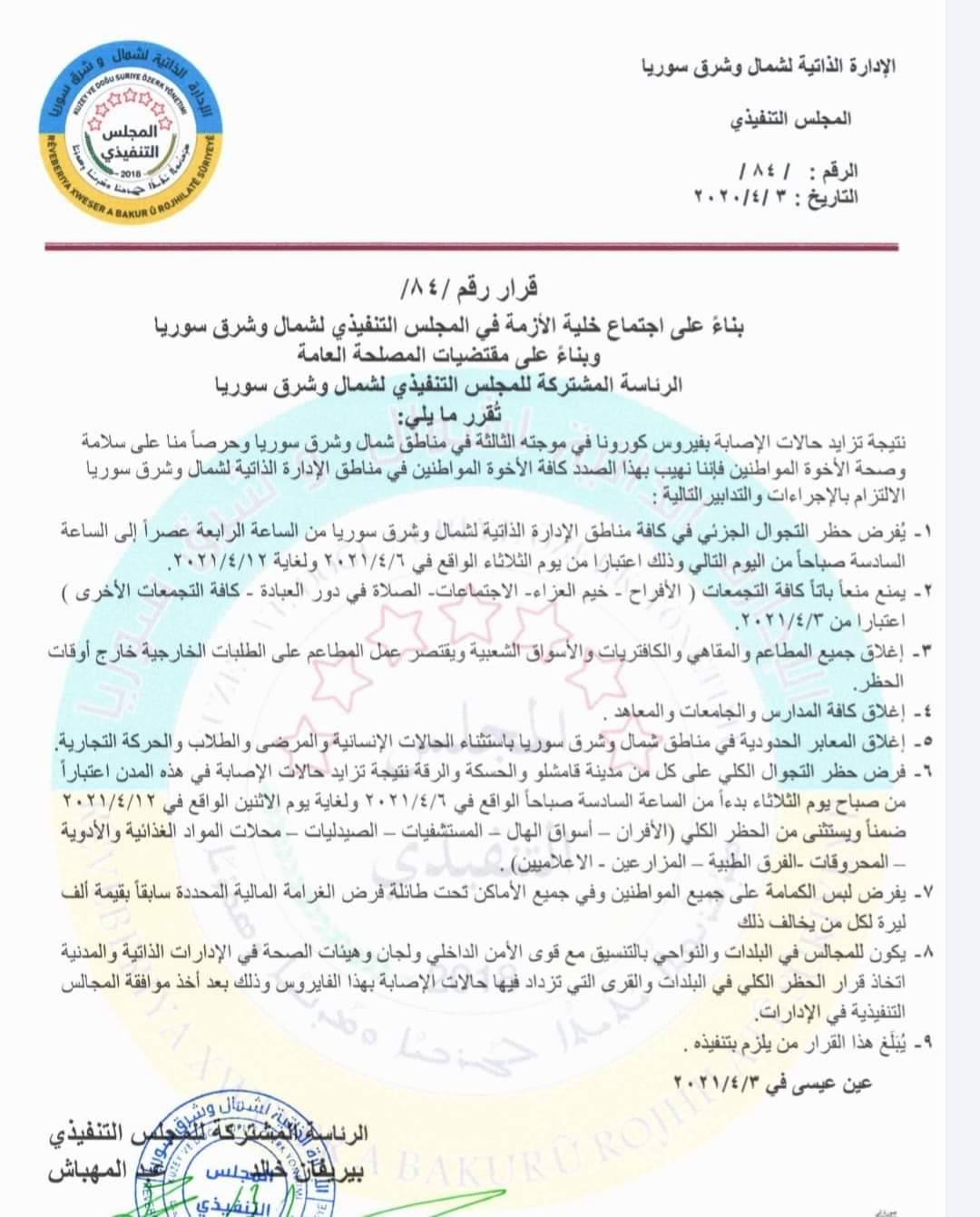
September 9:
‘The regime blockade suffocates this region’ – Health worker on coronavirus crisis in Shehba region
August 31:
‘A ticking time bomb’: COVID-19 spike catches northeast Syria unprepared
August 28:
COVID-19 cases increasingly rapidly in northeast Syria
August 27:
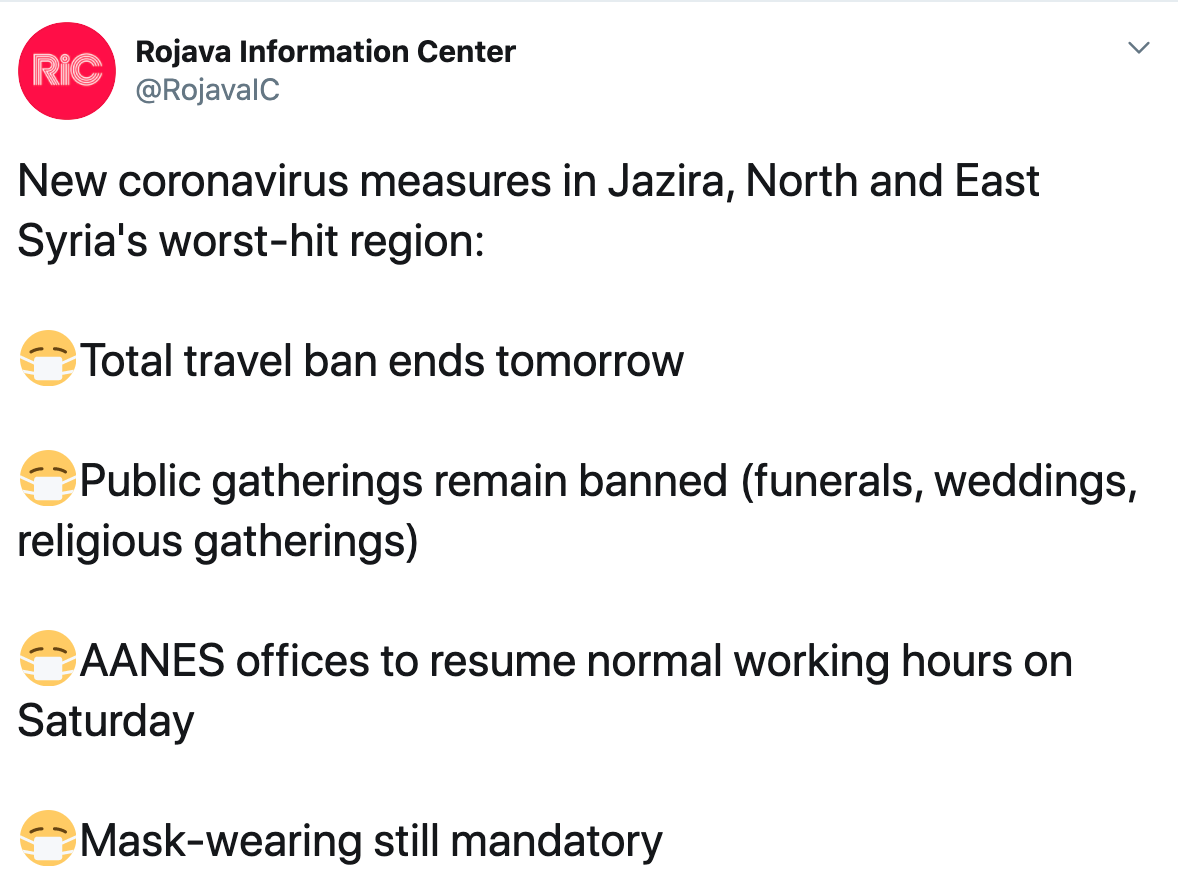
August 16:
As confirmed coronavirus cases in North and East Syria pass 200 – with anecdotal evidence suggesting many more may be infected – the AANES makes it compulsory to wear masks out of doors
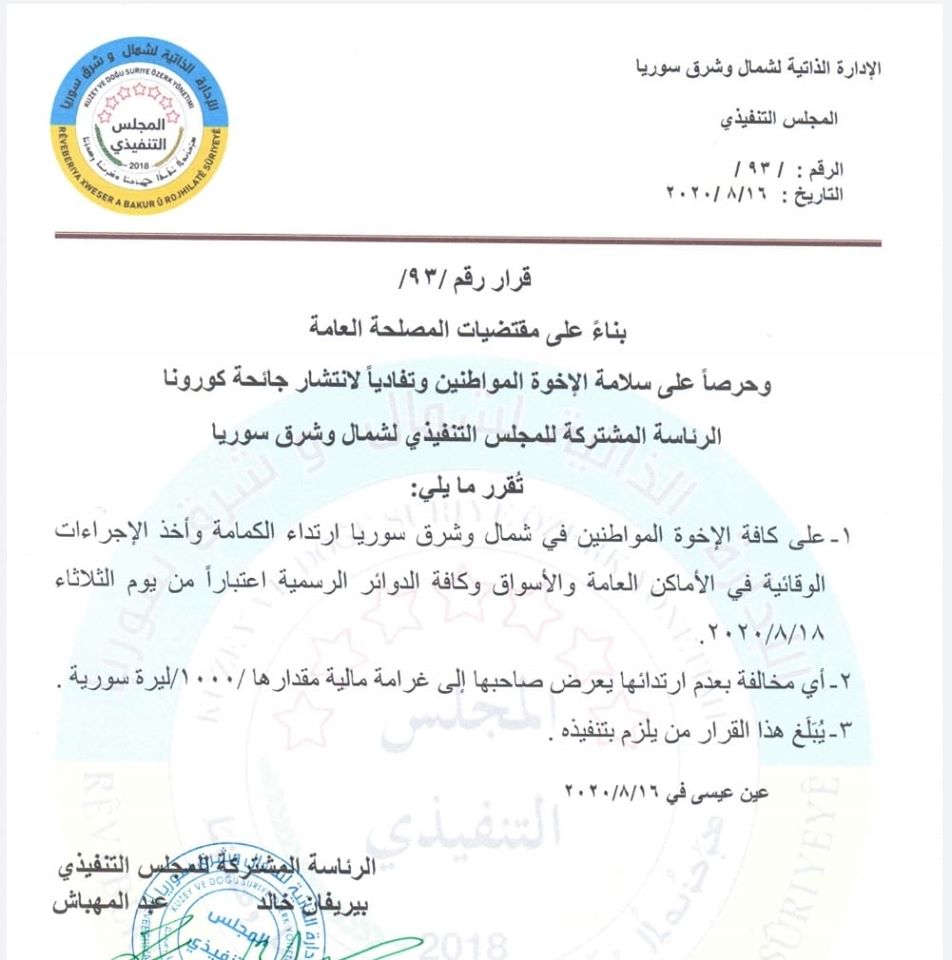
August 15:
Coronavirus in North and East Syria – week ending 15 August
August 13:
Syrian government-held Qamishli airport: epicenter to coronavirus outbreak in northeast Syria
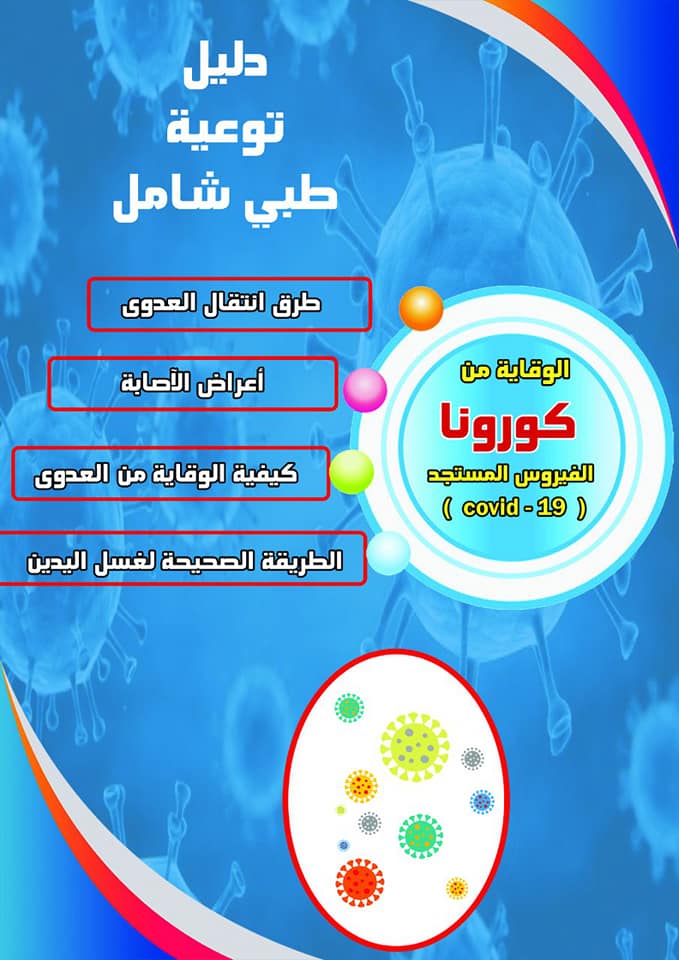
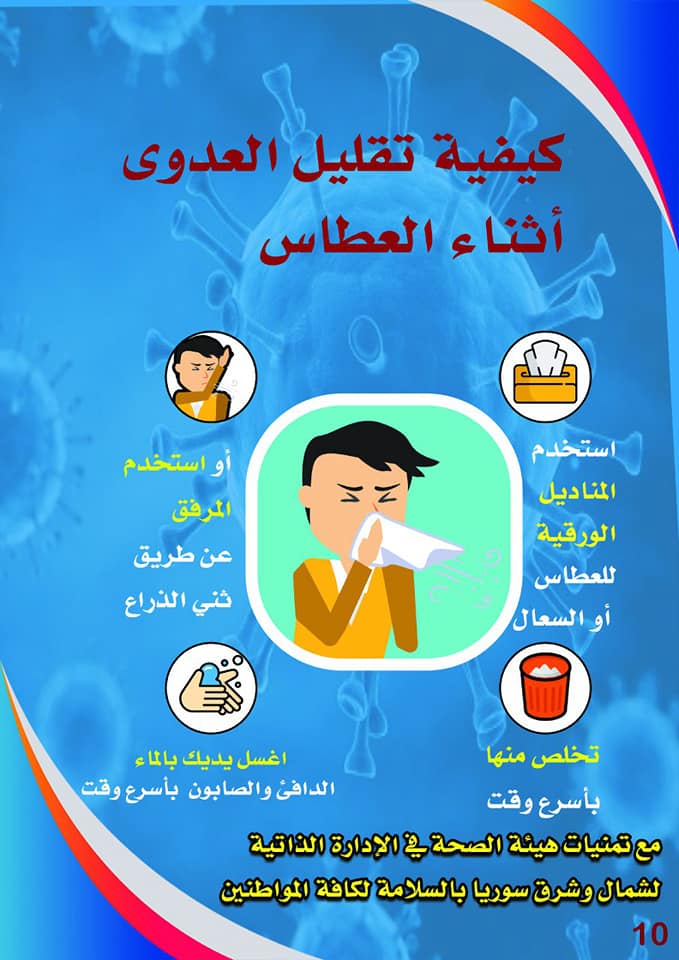
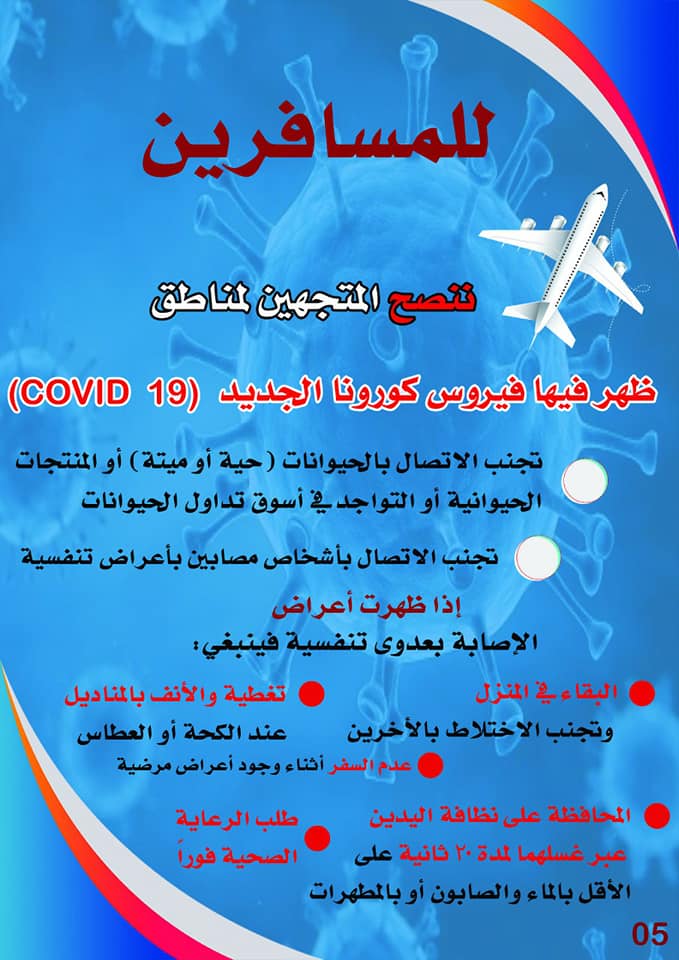
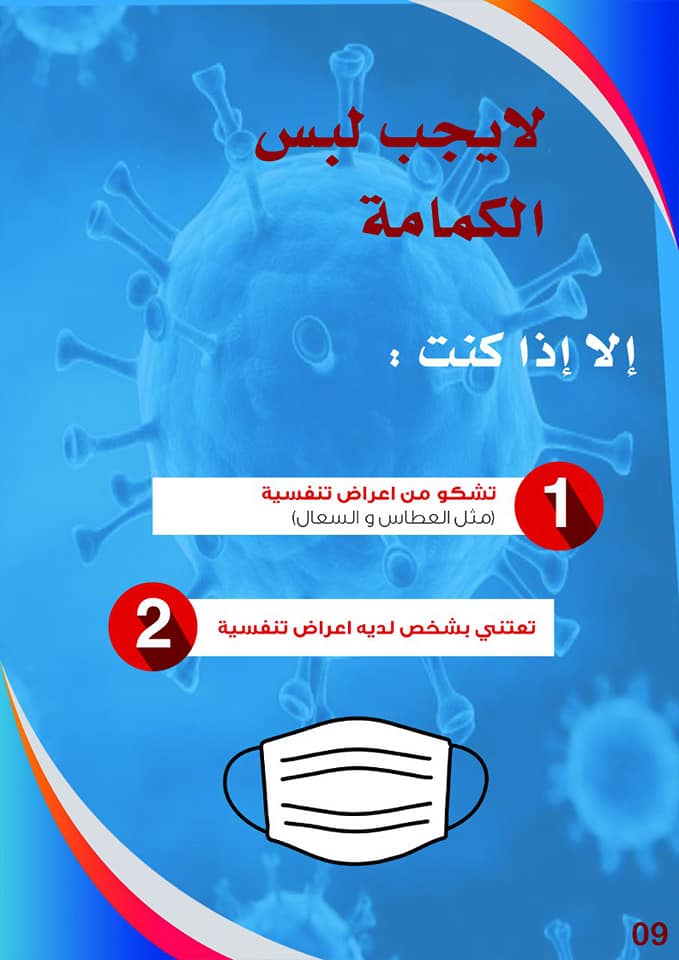
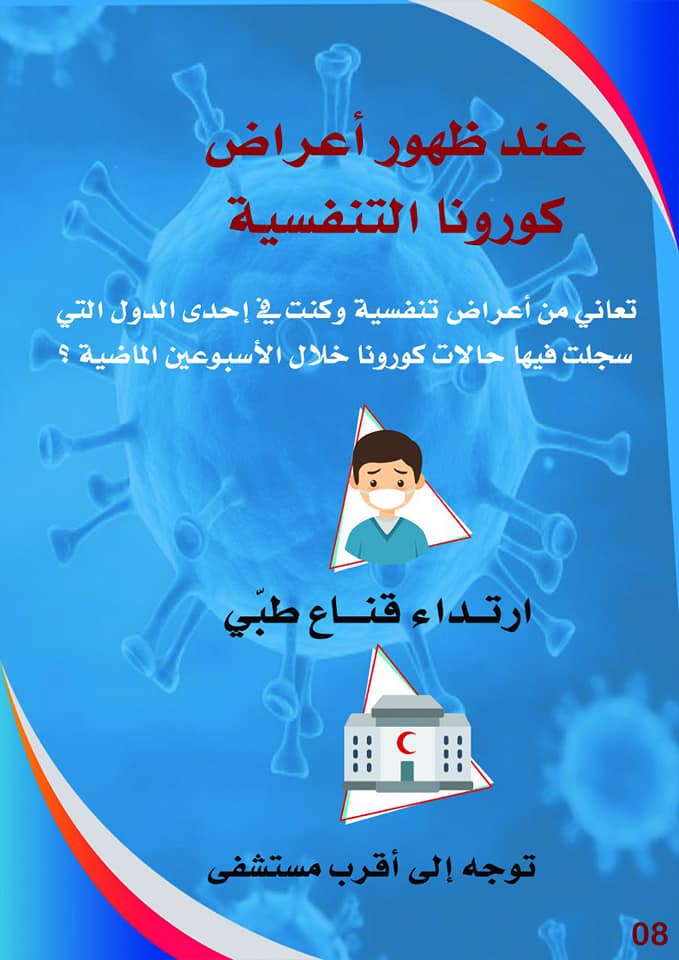
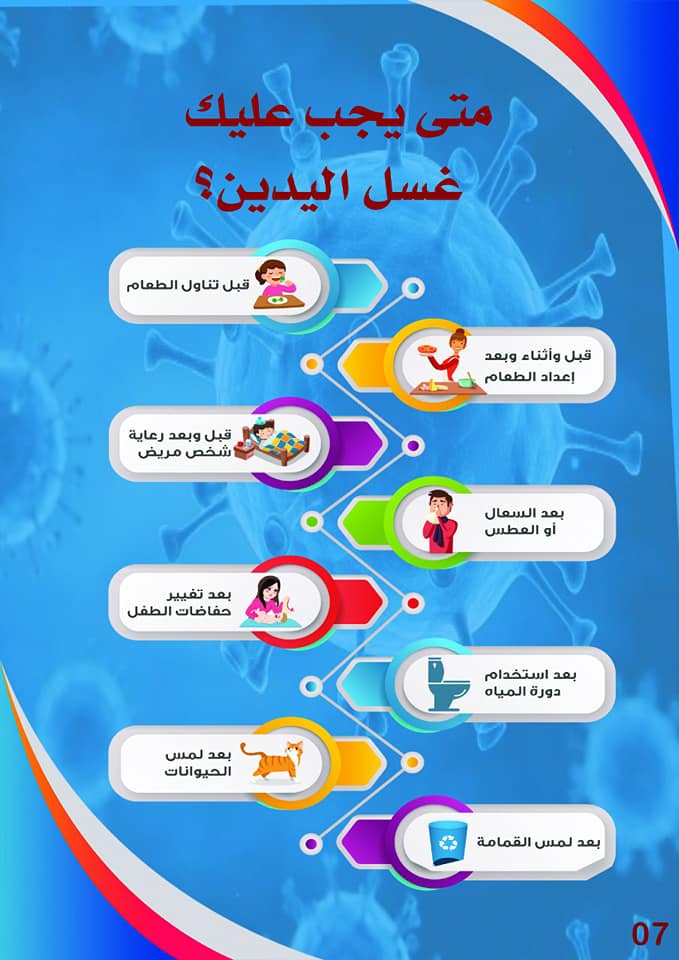
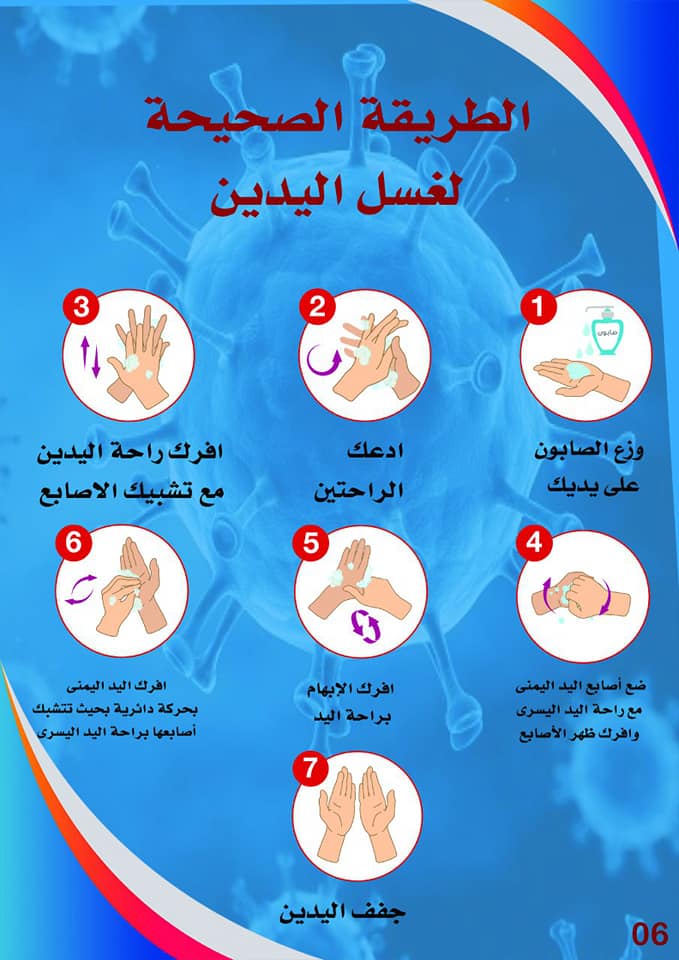
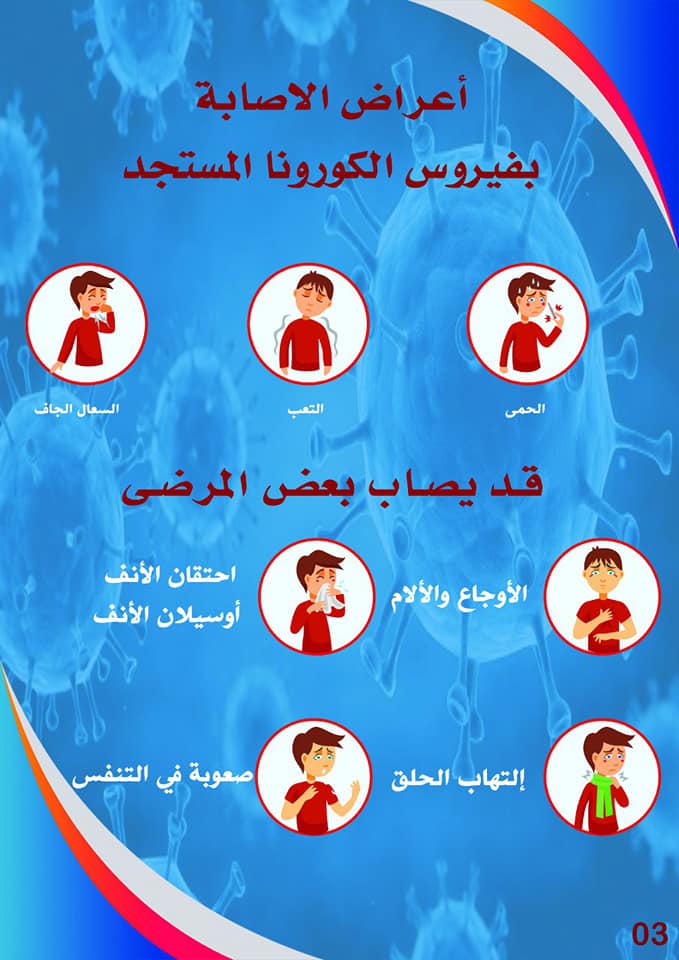
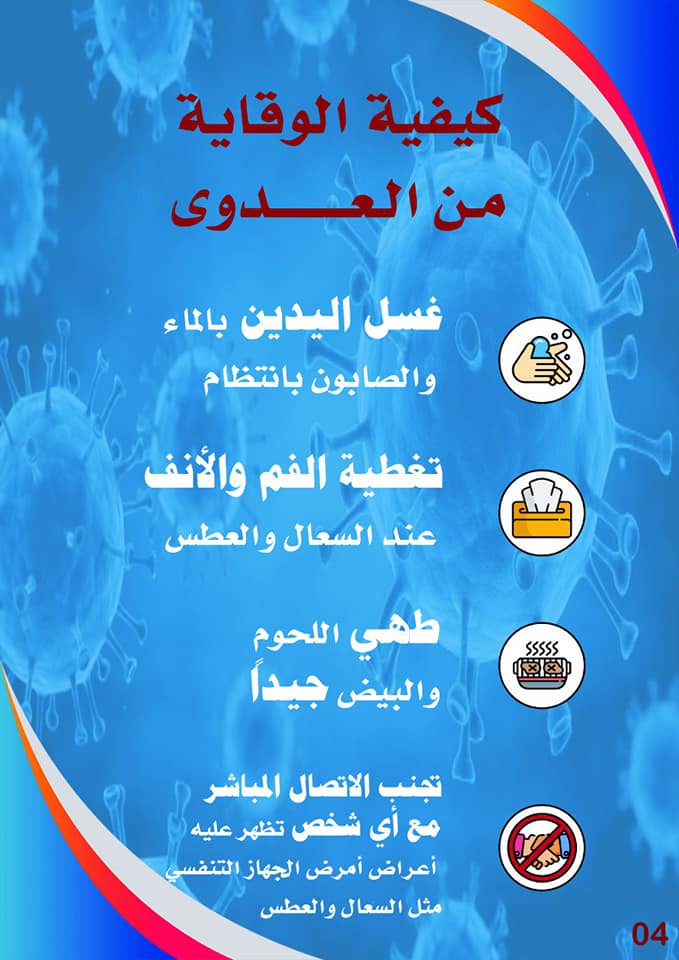
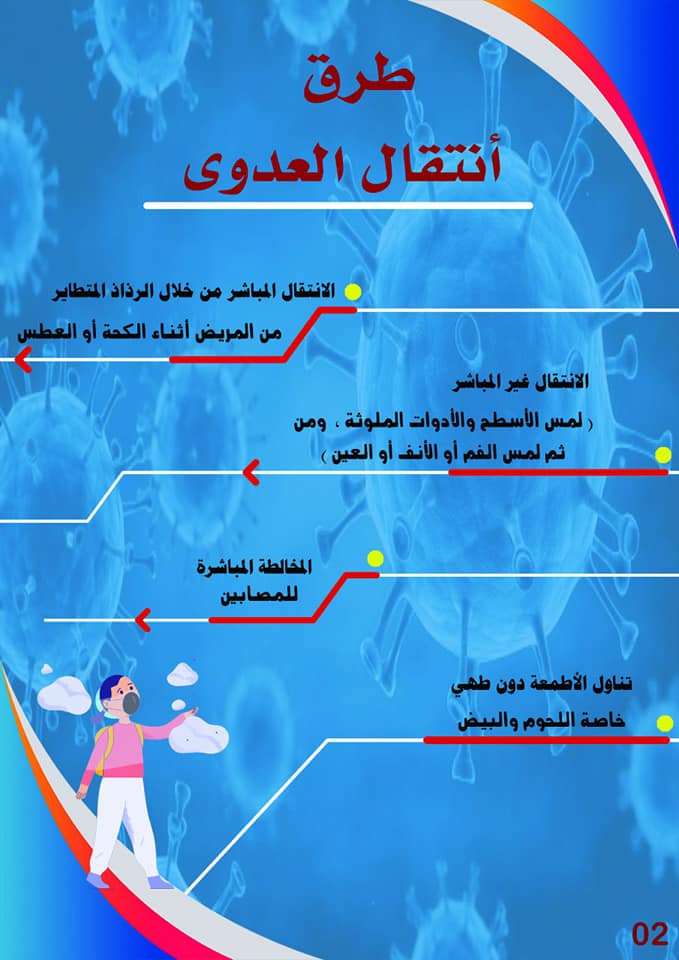
August 10:
First Case of Coronavirus Appears Among Residents of Syrian Al Hol Camp
First COVID-19 case among residents reported in Syrian IS camp
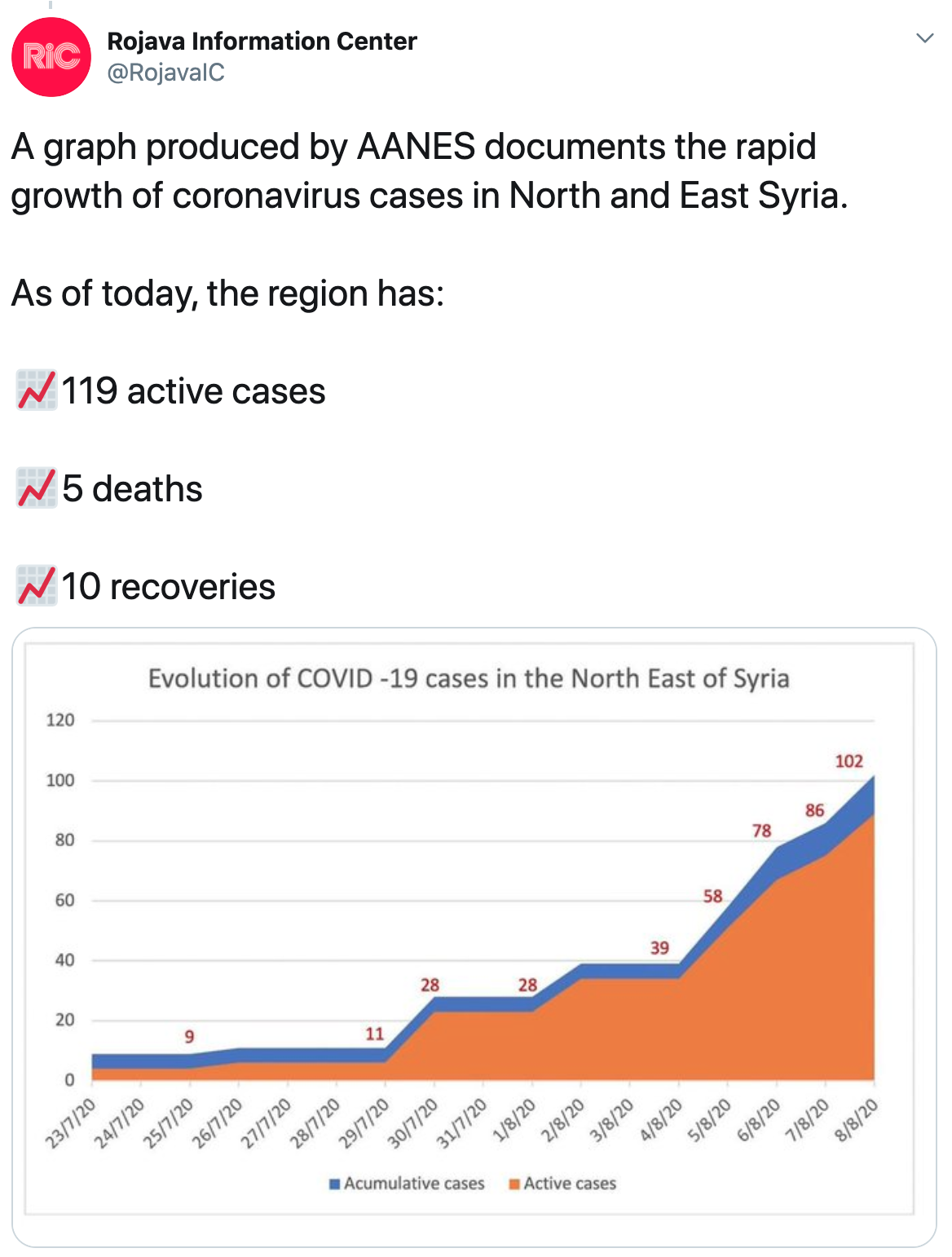
August 7:
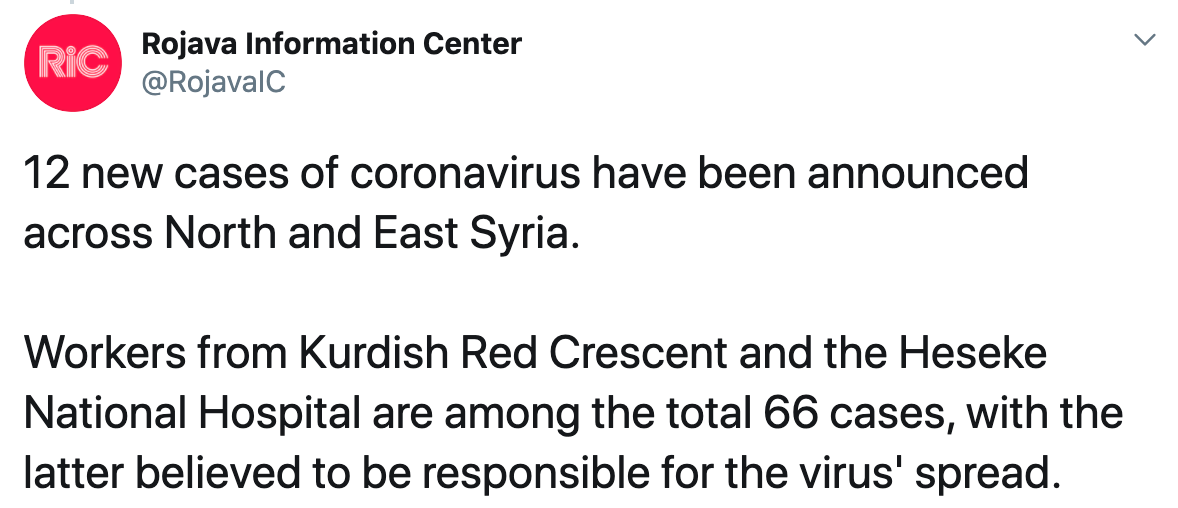
كورونا في الرقّة وسط وضعٍ اقتصاديّ متردّي
August 6:
Overcrowding at bakeries in al-Raqqa city amid “Coronavirus” crisis
Deir Ezzor areas register new Covid-19 cases, including Shia family
Health workers in Syrian camp for ISIS families test positive for COVID-19
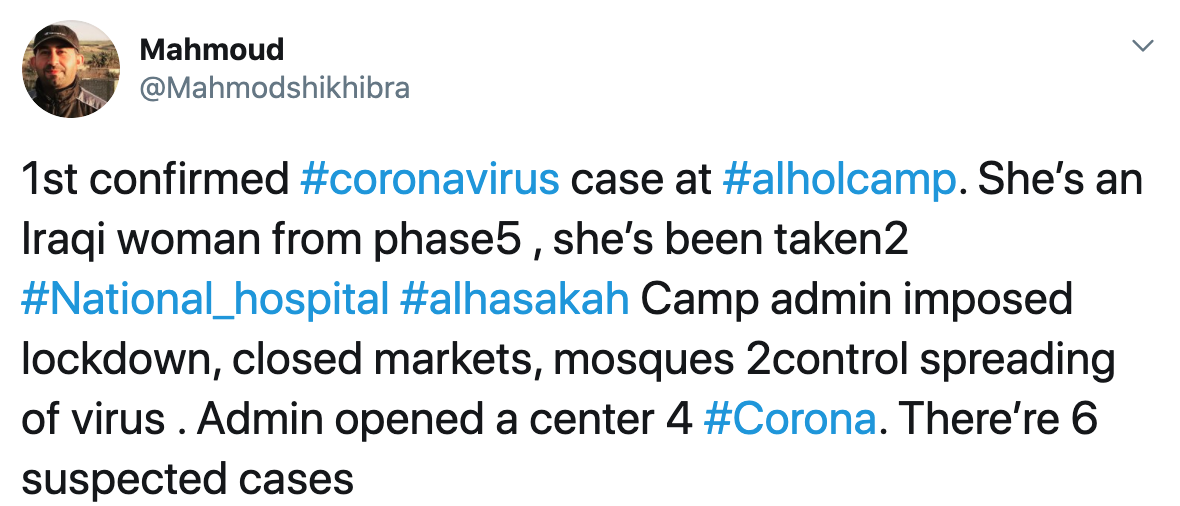
August 5:
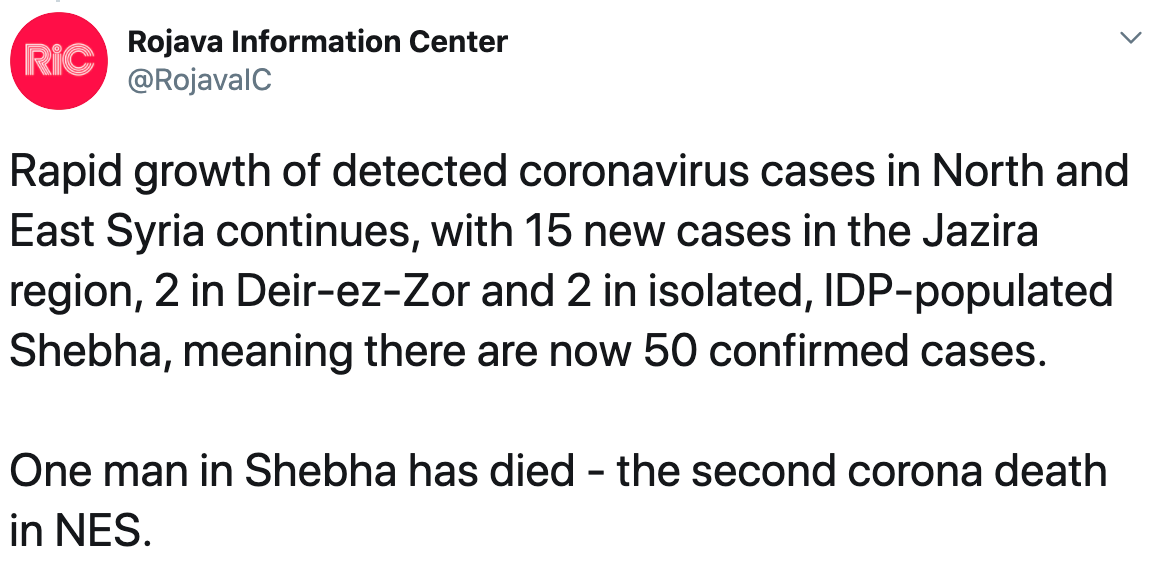
August 4:
Disinfection campaign in al-Raqqa city against COVID-19
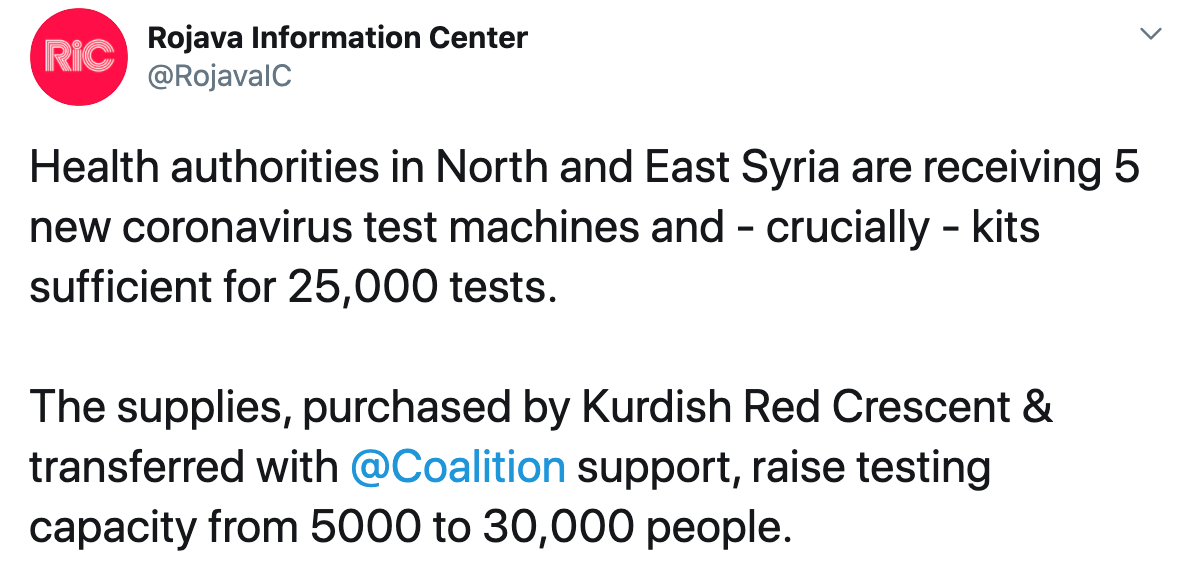
August 1:
Al-Kasra Hospital staff announces austere measures after detecting COVID-19 case
July 30:
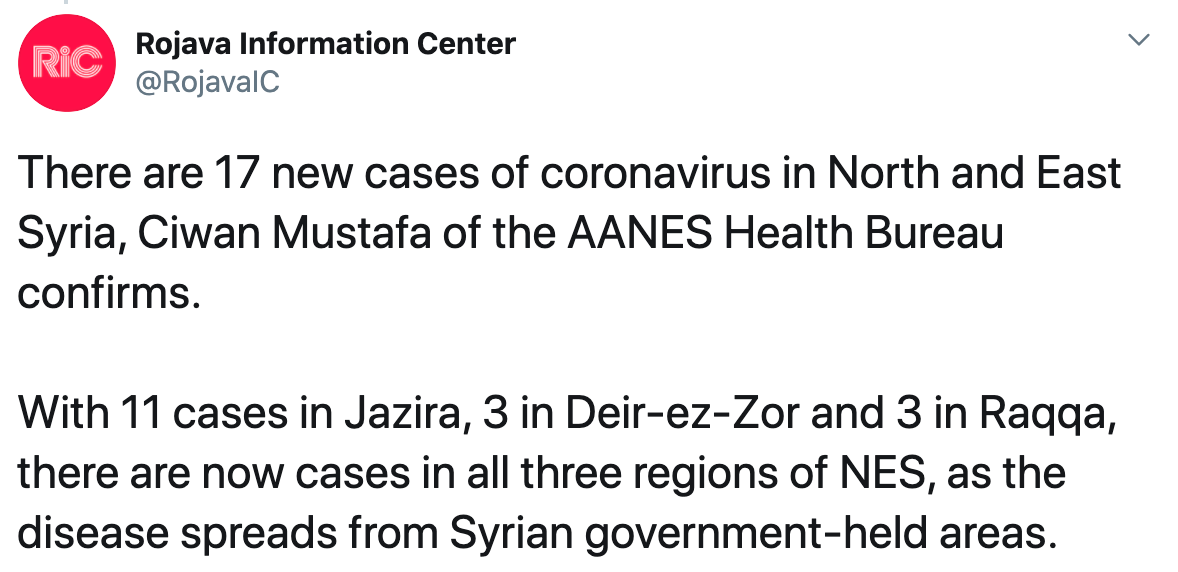
July 29:
Early Epidemiological Intervention Team registers two COVID-19 cases, Eastern Deir Ezzor
A ten-day quarantine is coming into effect following outbreaks of coronavirus across the Jazira region, the AANES has announced. Travel between Jazira and other regions of North and East Syria is restricted, a curfew is in place, and gatherings are banned.
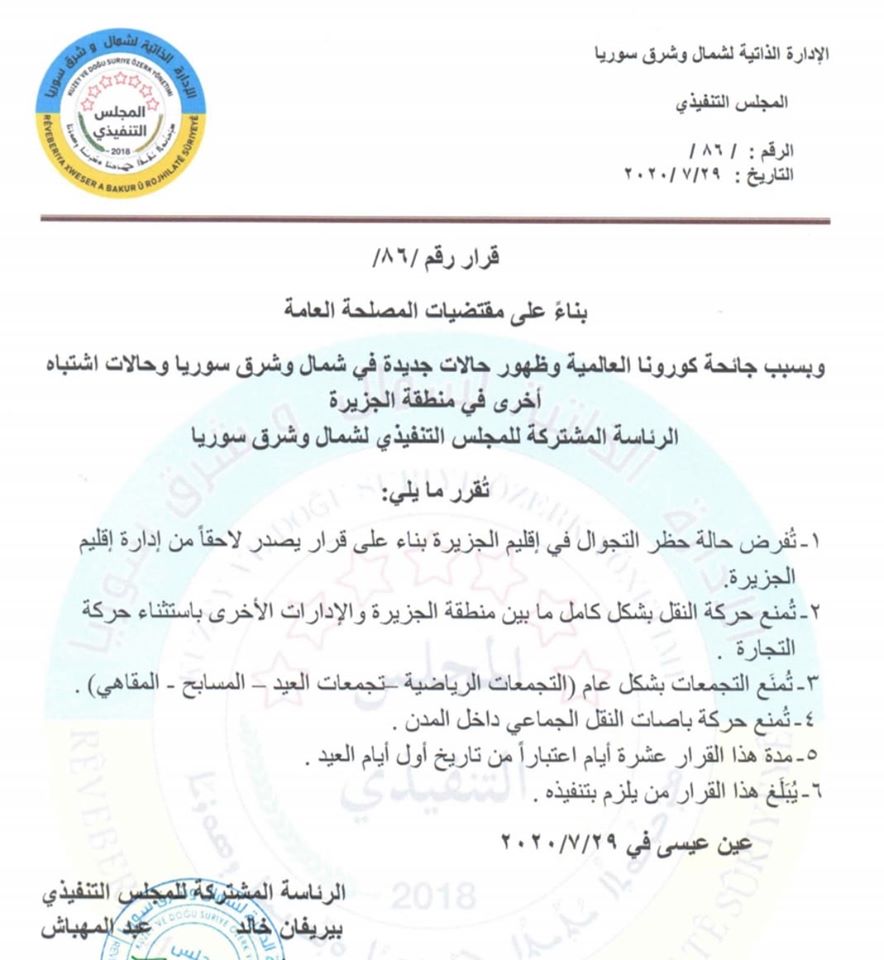
July 27:
COVID-19 Emergency Team takes austere precautionary measures in Deir Ezzor
July 26:
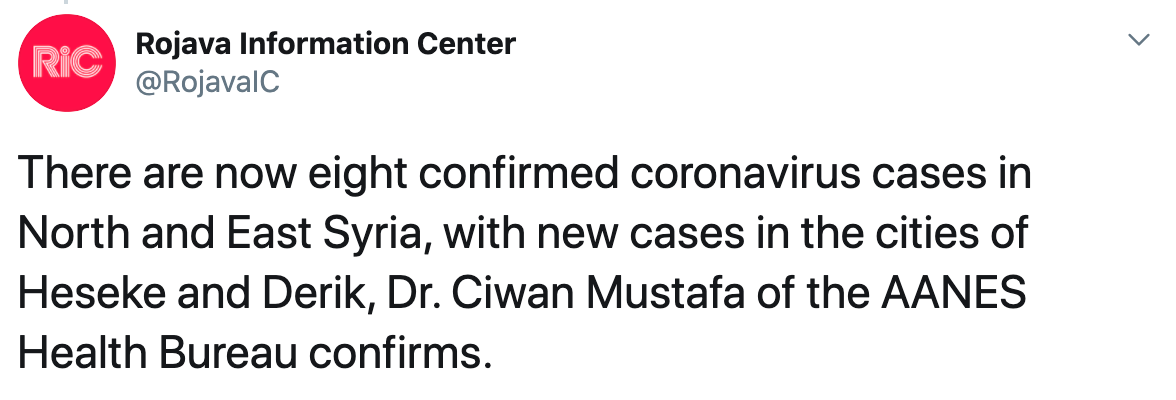
July 24:
Fears of COVID-19 outbreak in northeast Syria after 4 new cases
The Autonomous Administration of North and East Syria announces new coronavirus measures, with lockdown on the border and public gatherings, restaurants, religious gatherings, weddings, ceremonies and funerals all prohibited, but stops short of reintroducing quarantine
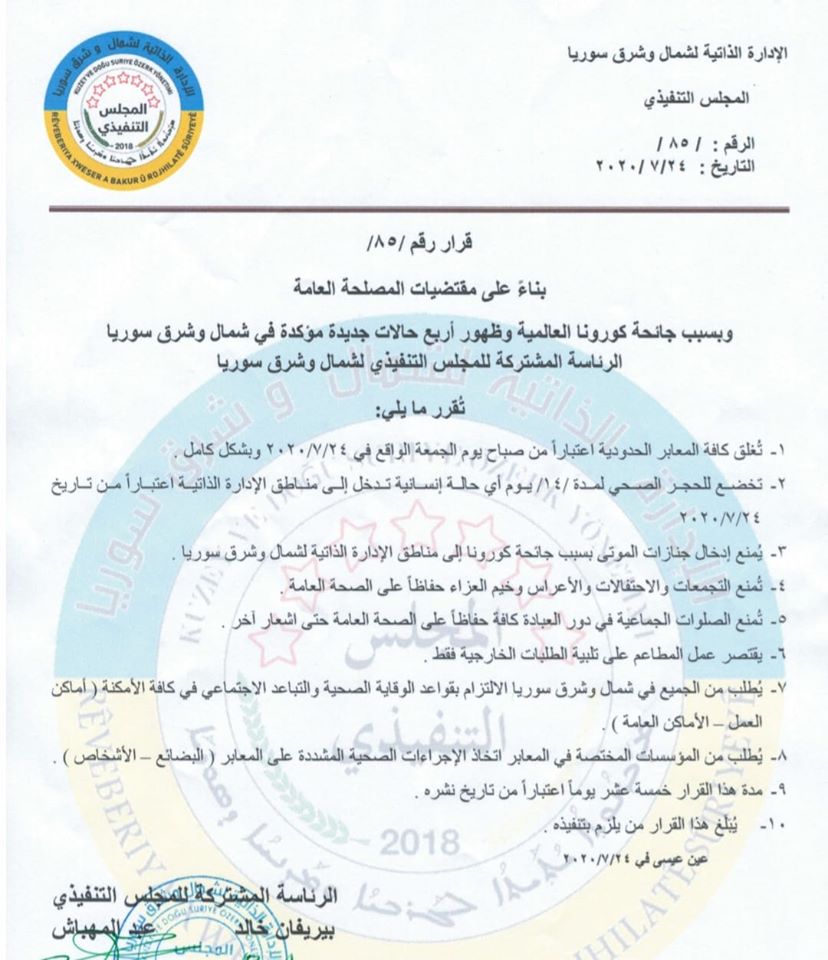
July 5:
New coronavirus preventative measures in NES: Shutdown of all border crossings from 13 July including with other areas of Syria; Humanitarian cases can cross; 14-day quarantine on arrival; Social distancing at weddings, funerals, meetings; and students may travel for exams
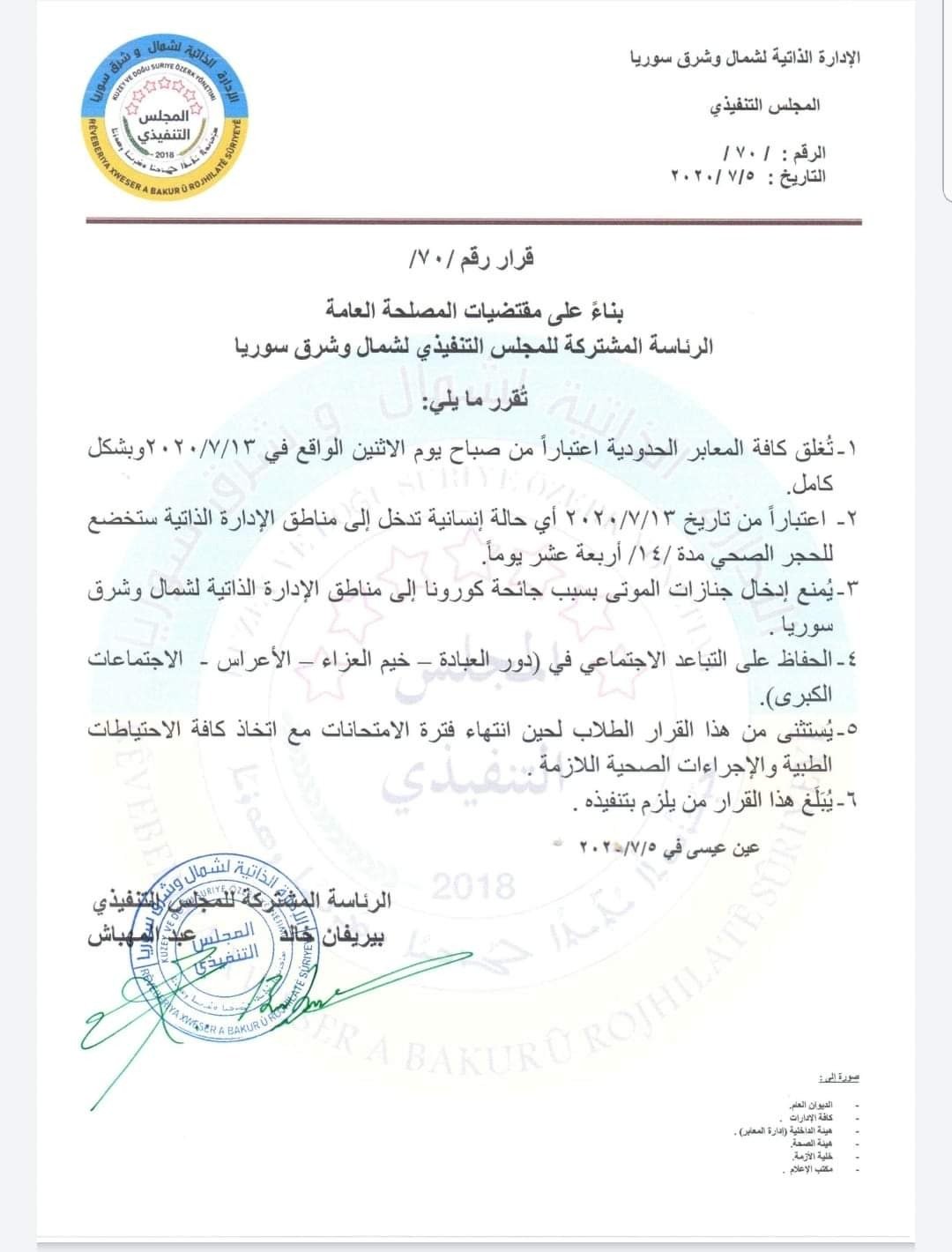
May 26:
A partial relaxation of anti-coronavirus measures has heen announced by the Autonomous Administration of North and East Syria. An overnight curfew is in place and schools and the border crossing remain closed, but civil society institutions are reopening.
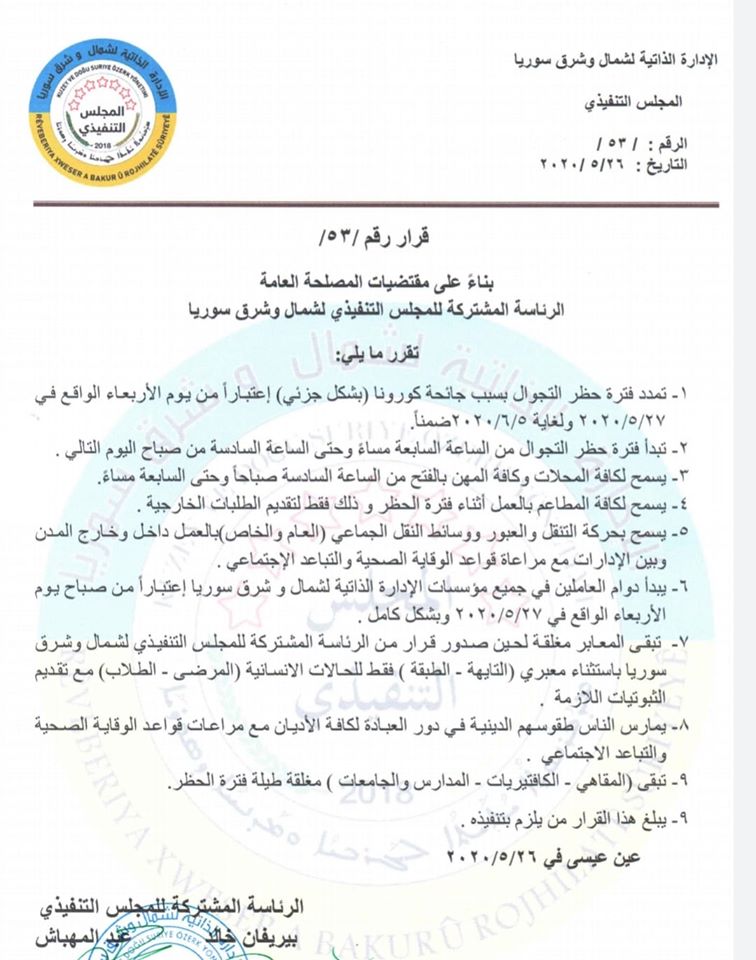
May 21:
Coronavirus risks and preventative measures in Hol camp
May 16:
IS Wives Defy Coronavirus Protective Measures in Syria’s al-Hol Camp
May 12:
Kurdish authorities in NE Syria ‘have not received’ new WHO coronavirus aid: health official
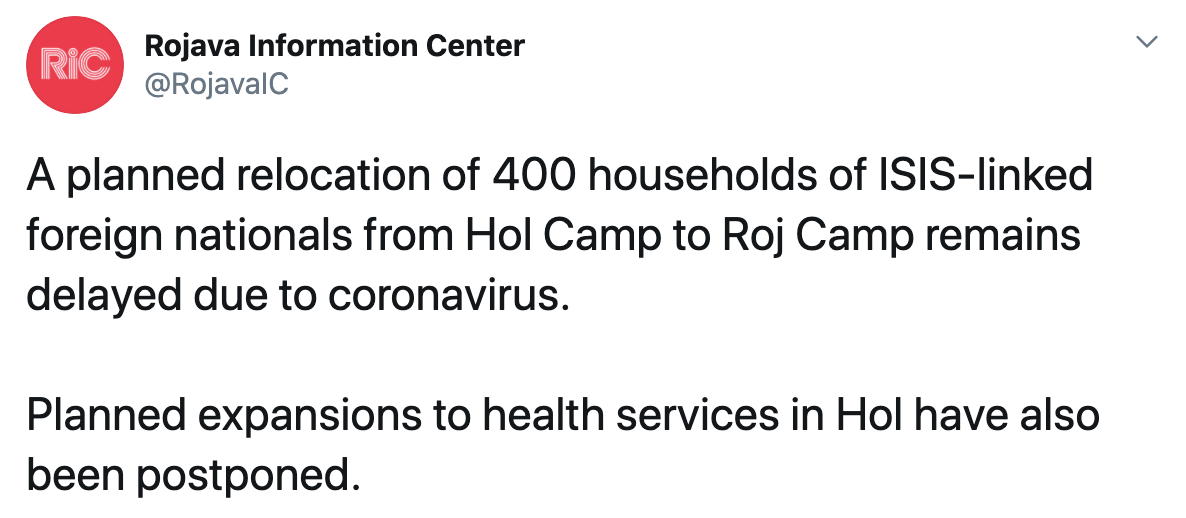
May 11:
Coronavirus, war prompts northeast Syrian schools to go online
The Joint Presidency of the Executive Council in northeastern Syria has issued a decision to extend the curfew imposed to prevent the spread of Corona pandemic, starting from Tuesday 5/12/2020 to the end of Eid al-Fitr holiday
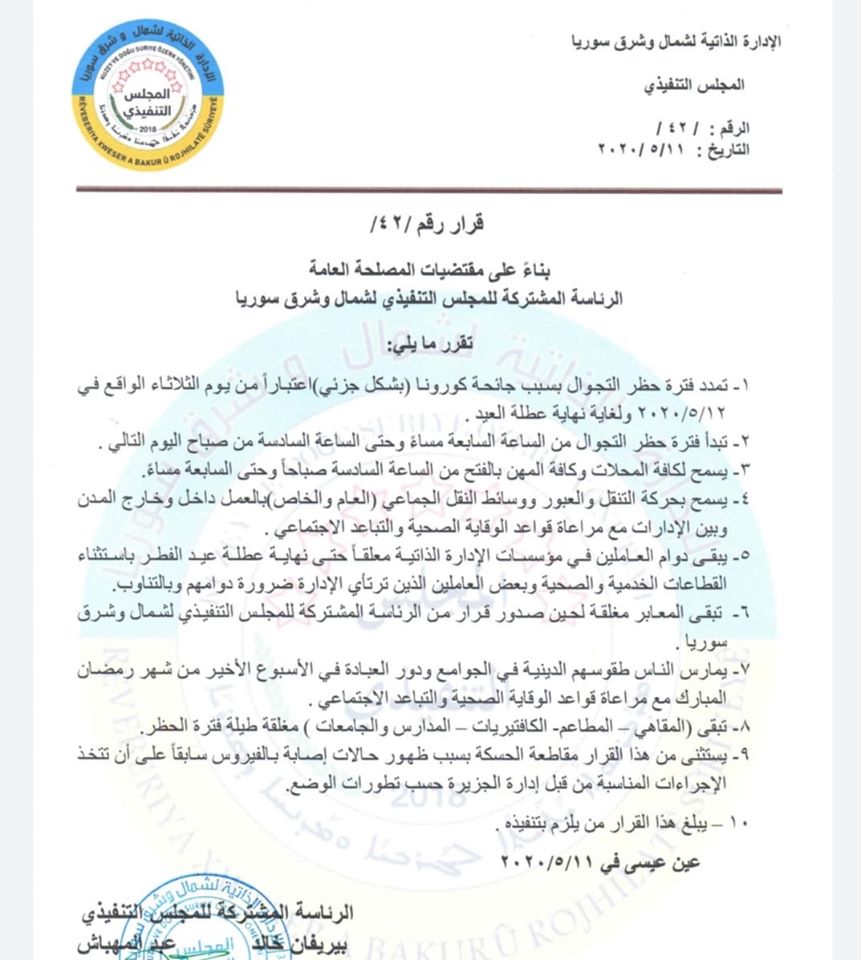
May 10:
May 7:
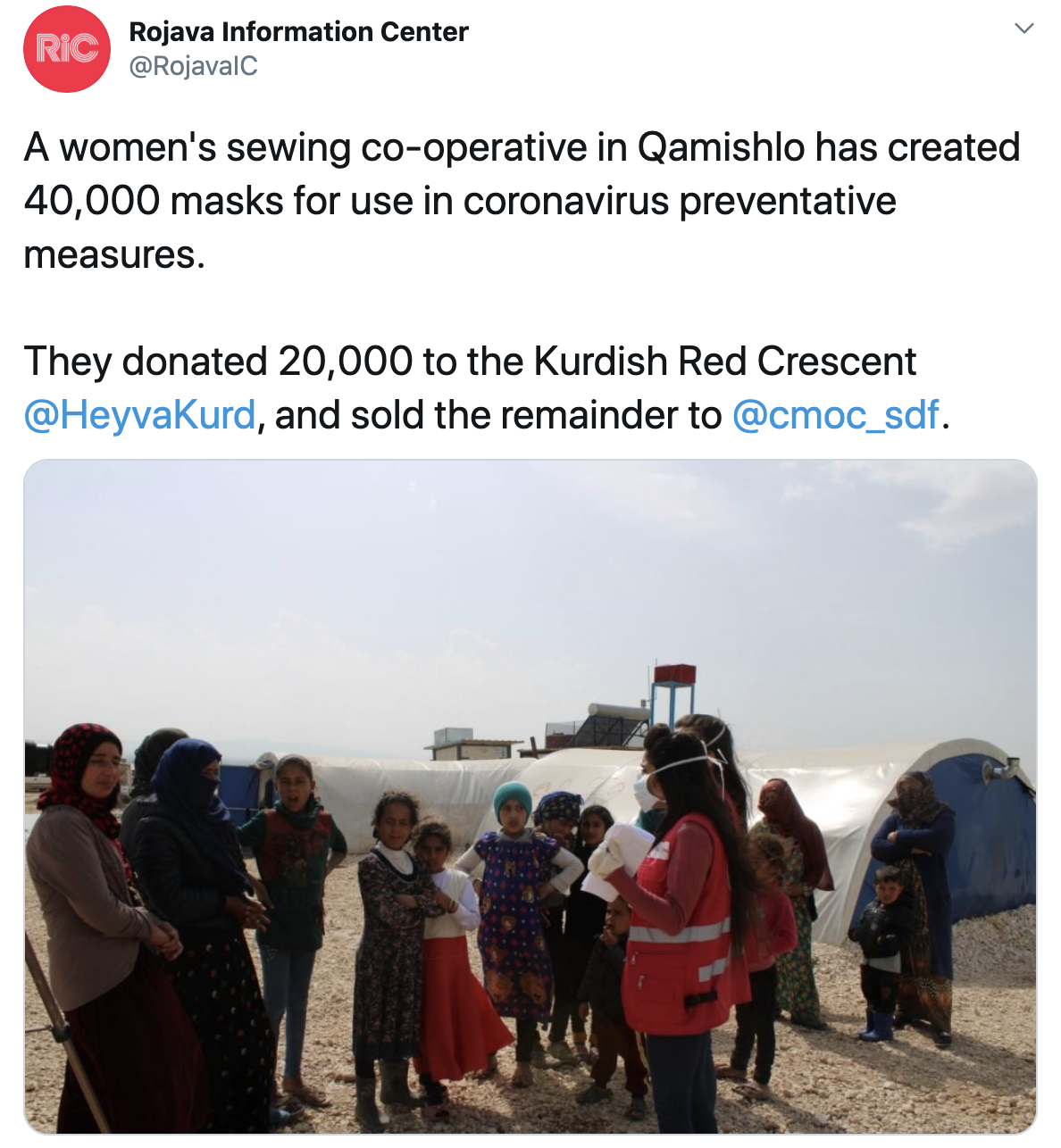
May 6:
Rojin Ahmed, spokesperson for the Health Bureau of AANES: “”We have set up corona quarantine centers, awareness campaigns, health teams, and closed our borders. Unfortunately, Damascus did not close its airport in Qamishlo to prevent travelers from coming in…”
May 5:
Overcrowded prisons and camps in northeast Syria raise fears of COVID-19 outbreak
May 4:
Coronavirus in Rojava: Facing a Pandemic Without a State
May 3:
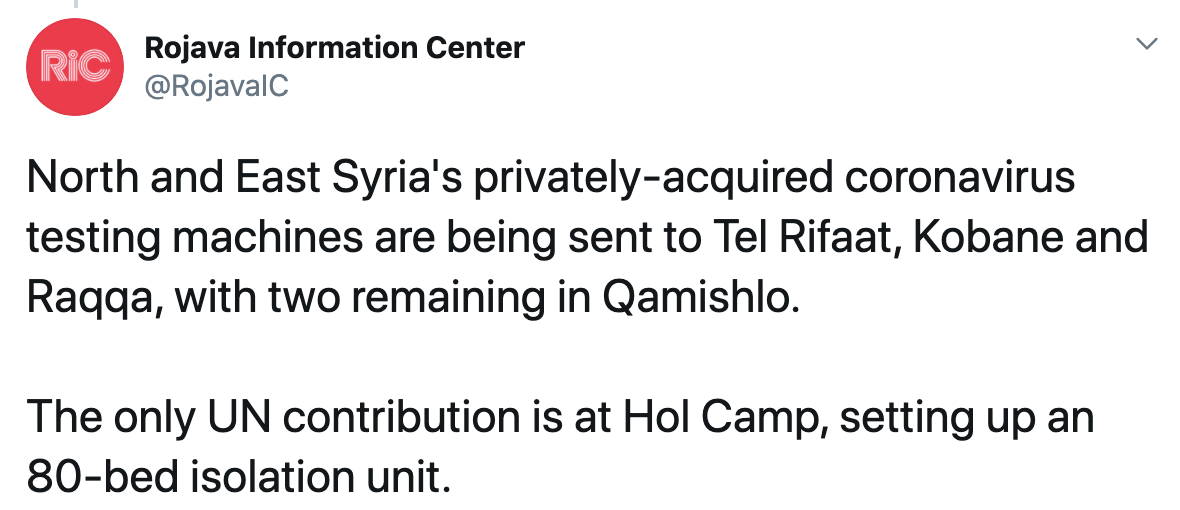
April 30:
With more coronavirus cases emerging in North and East Syria, the quarantine has been extended until 11 May, with all civilians required to remain at home from 3PM until 6AM. There will be special conditions for the city of Hasakah, the site of the first detected corona cases.
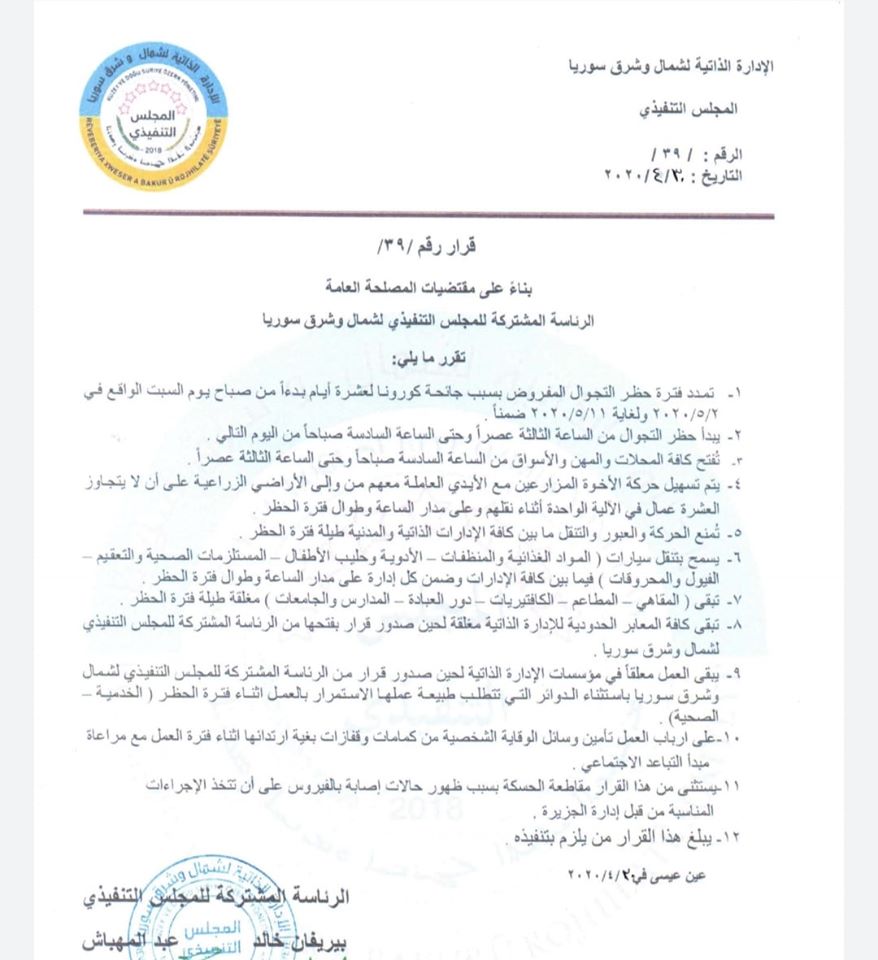
April 29:
Declaration
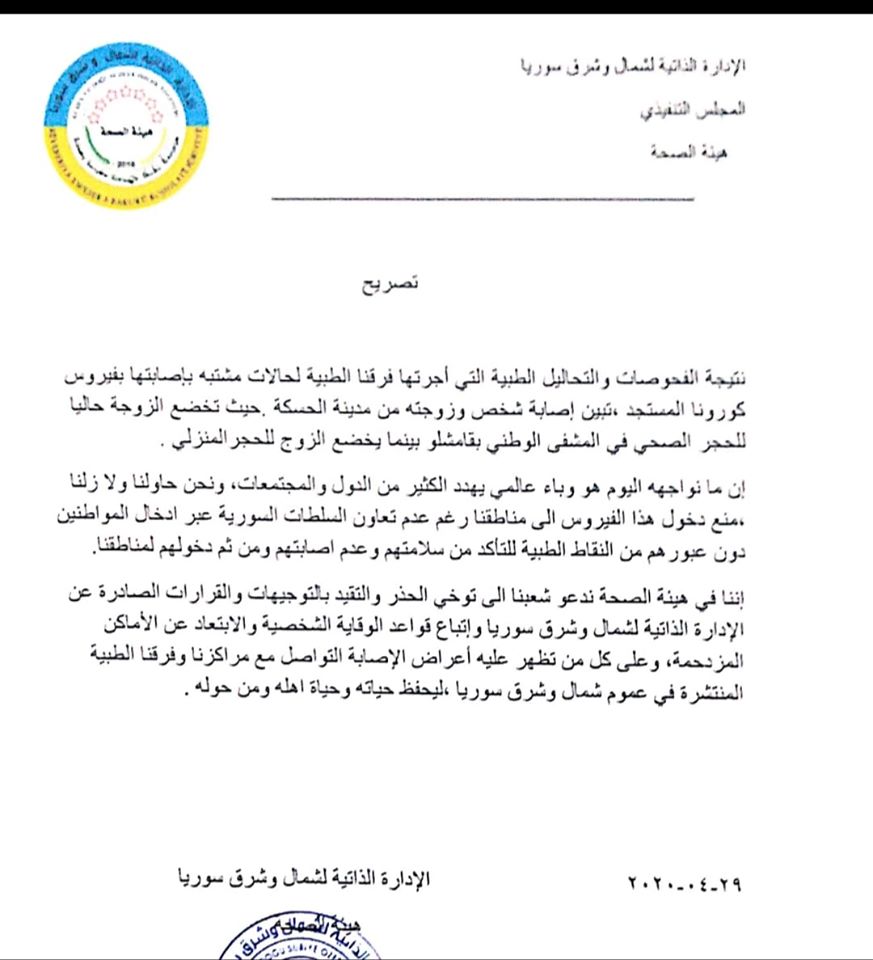
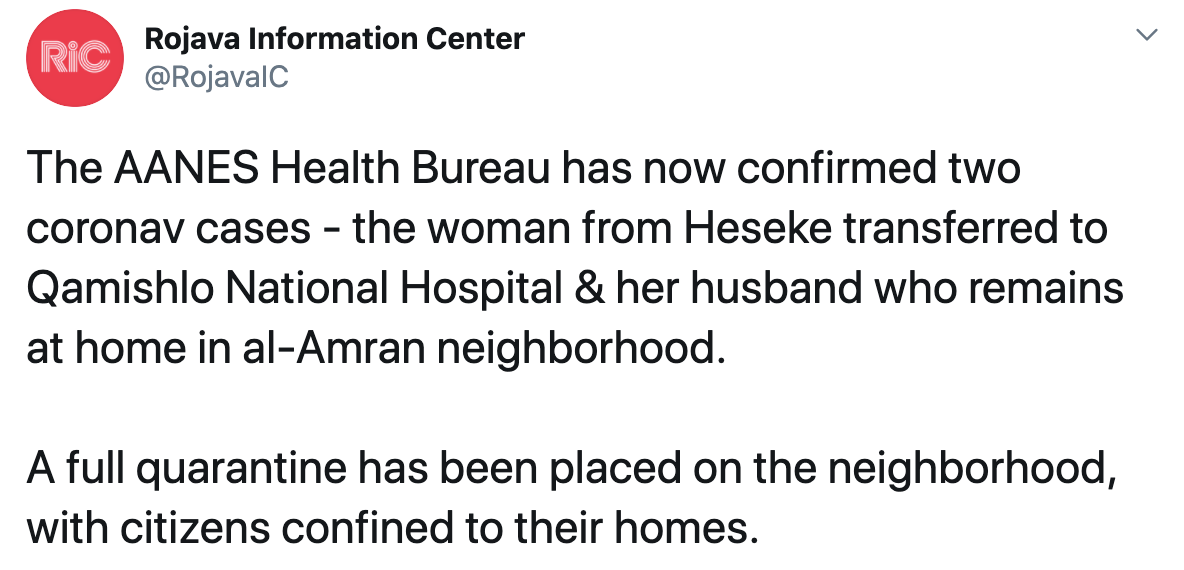
April 28:
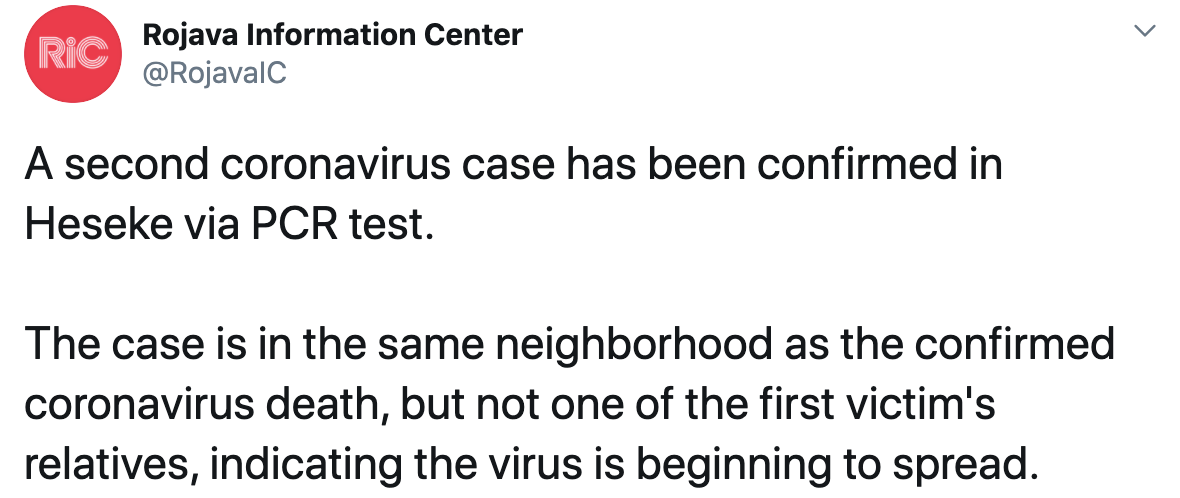
Antagonism and confusion undermine northeast Syria’s response to the coronavirus
April 26:
COVID: Syrian Facilities Holding IS Prisoners Receive Needed Supplies
April 25:
Shaykh Haytham Farhan Khalil’s (Chairman of the council of religious institutions in R’as al-Ayn) statement on the legitimacy of the suspension of Friday prayers and sermon as well as taraweeh in Ramadan due to the coronavirus pandemic
April 24:
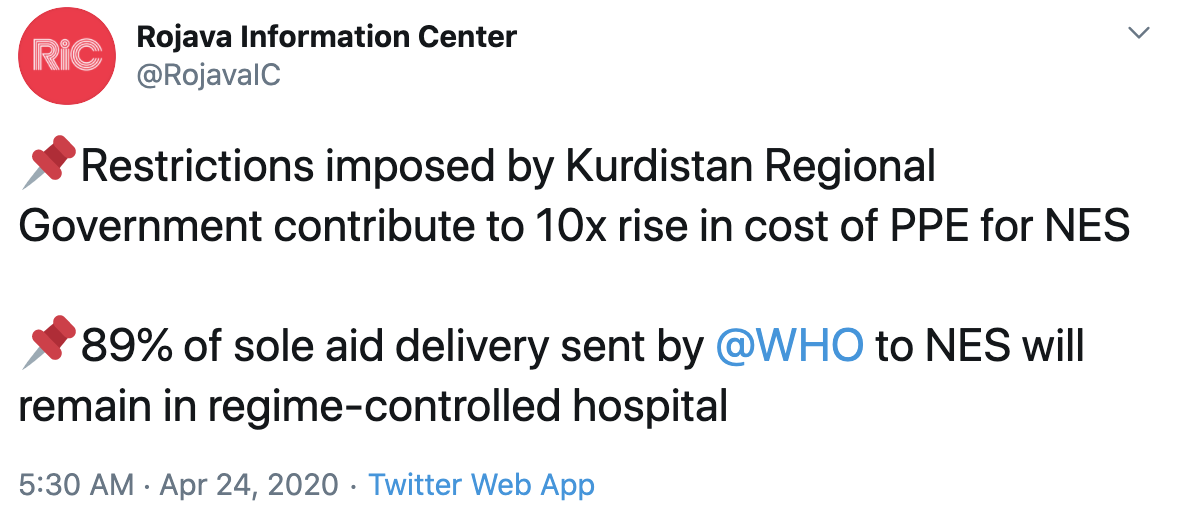
April 23:
The third stage of the curfew in northern and eastern Syria: new health centers at border crossings
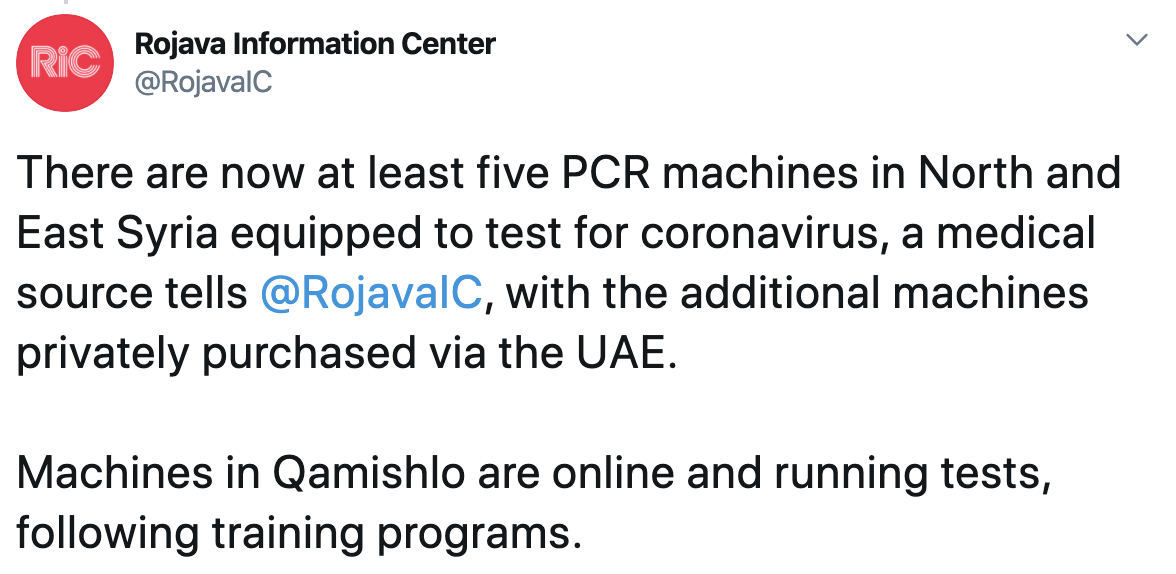
April 22:
Concerns mount over COVID-19 response in northeast Syria
Coronavirus crisis in North and East Syria: 22 April update
April 21:
Decision to extend the curfew for 10 days to 5-1-2020 to prevent the spread of the coronavirus, with conditions being relaxed to help ease the economic burden, including new exemptions for farmers and other small businesses
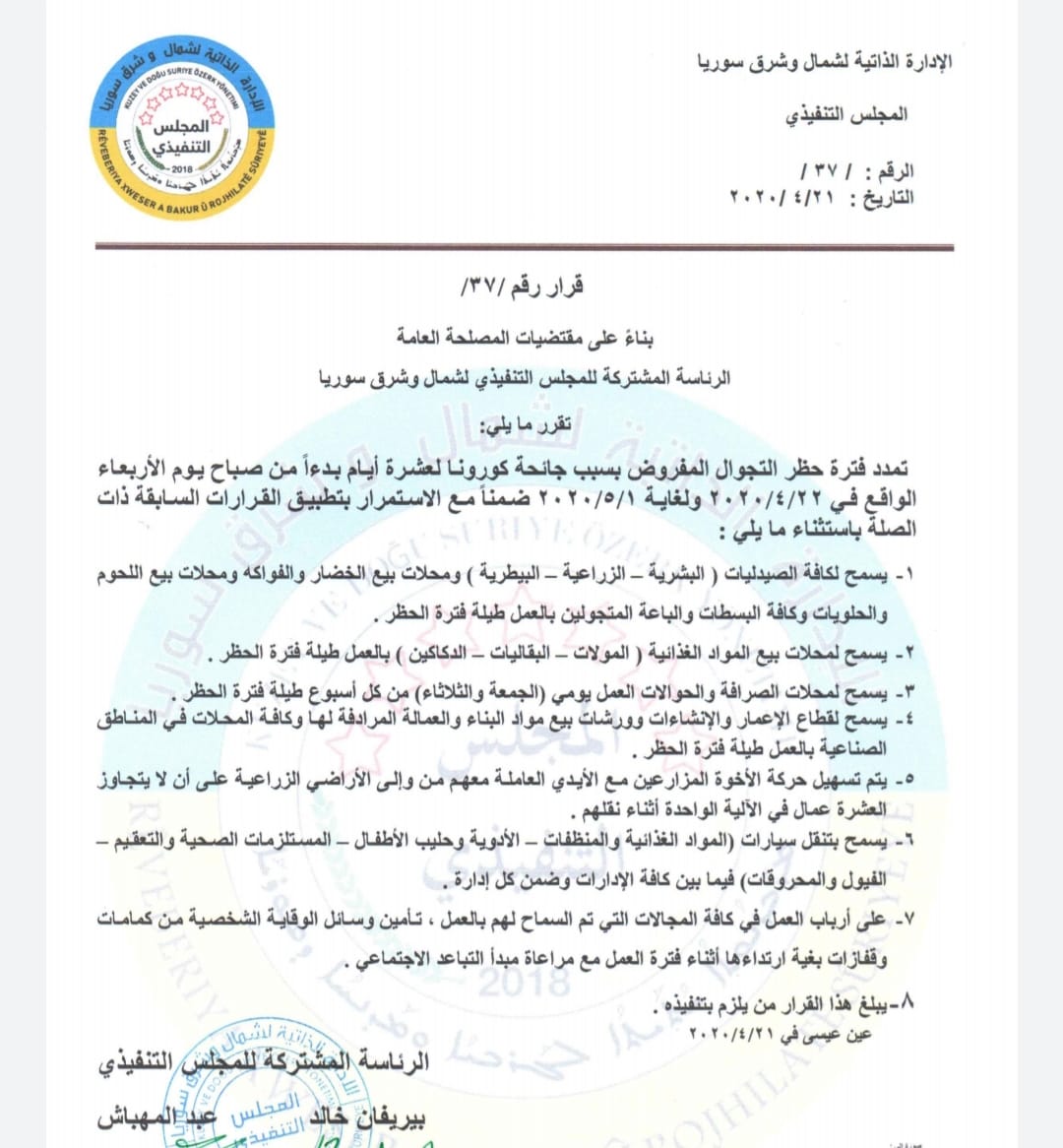
April 20:
A hospital specifically designed to receive COVID-19 patients has been opened in Hasakah. While supplies are limited, preparations are being made for the inevitable.
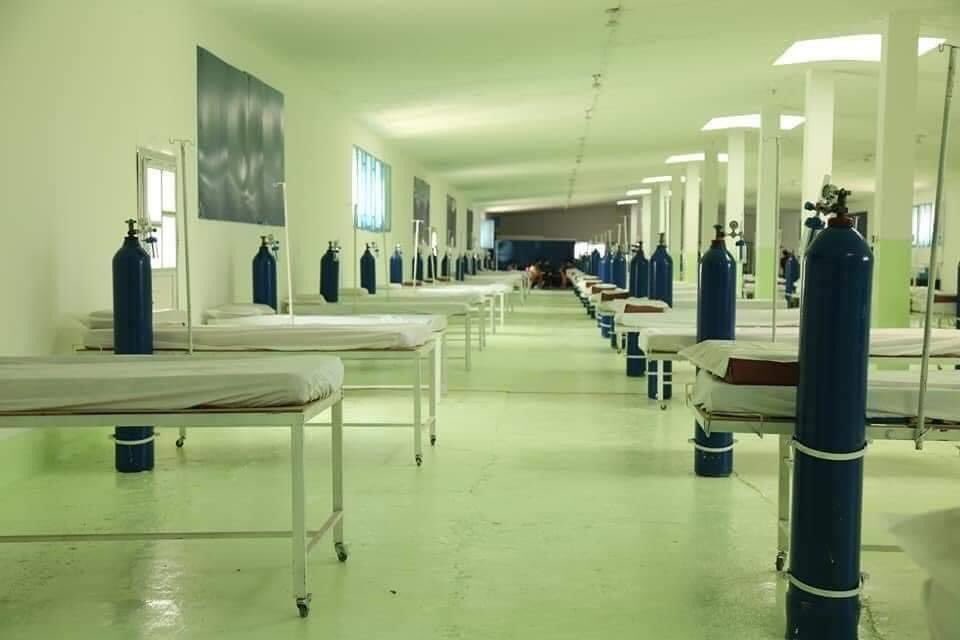
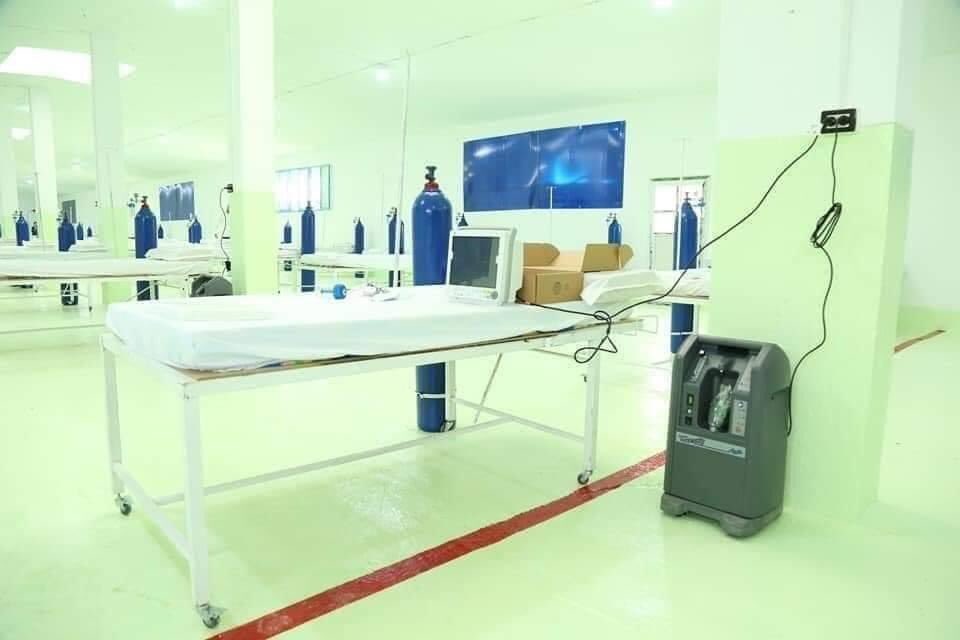
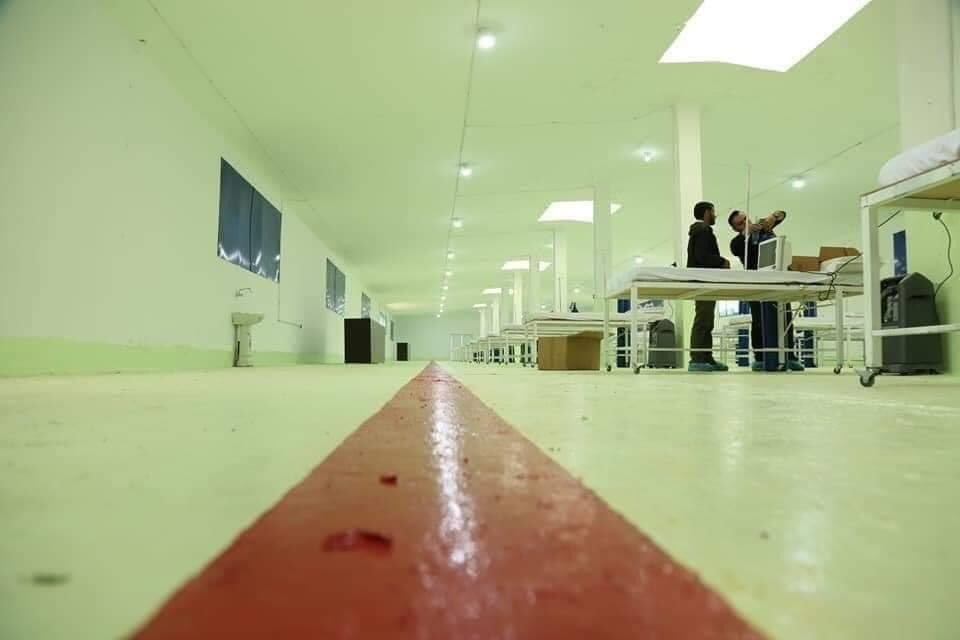
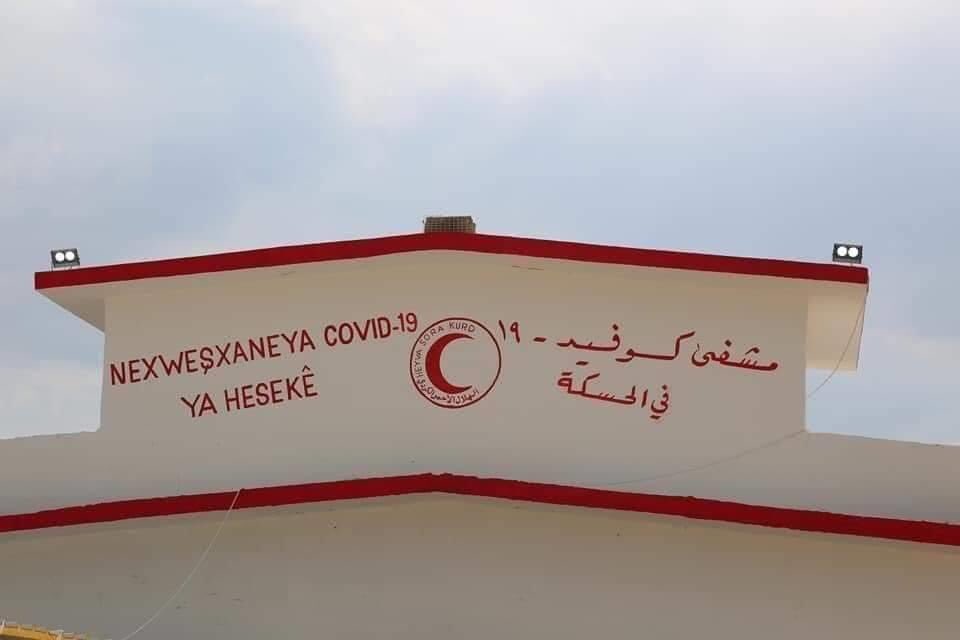
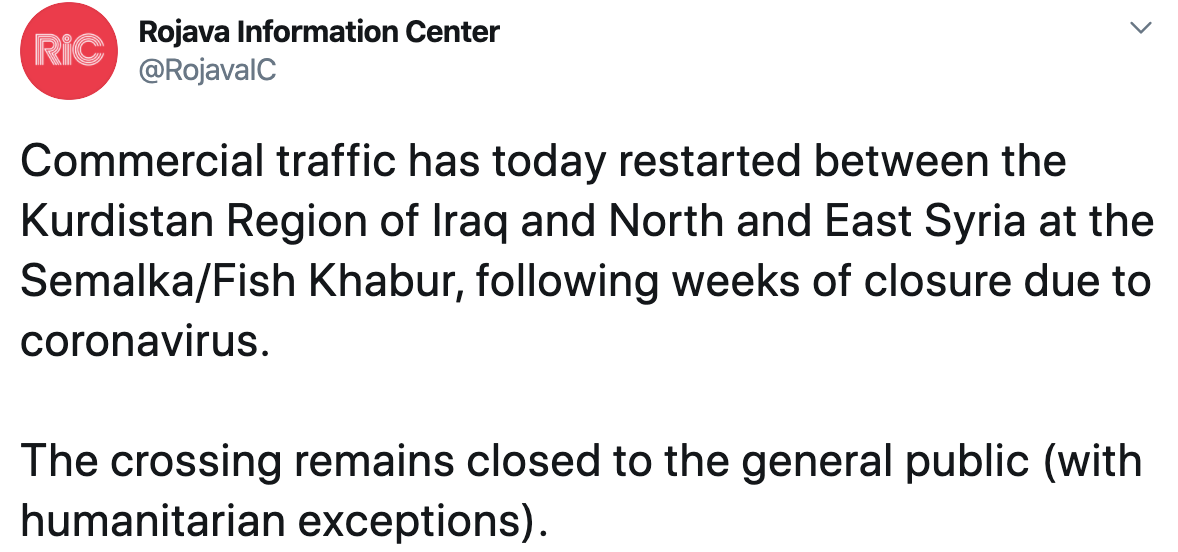
April 19:
The continuation of the ban in the city of Tabqa within the measures to combat the coronavirus
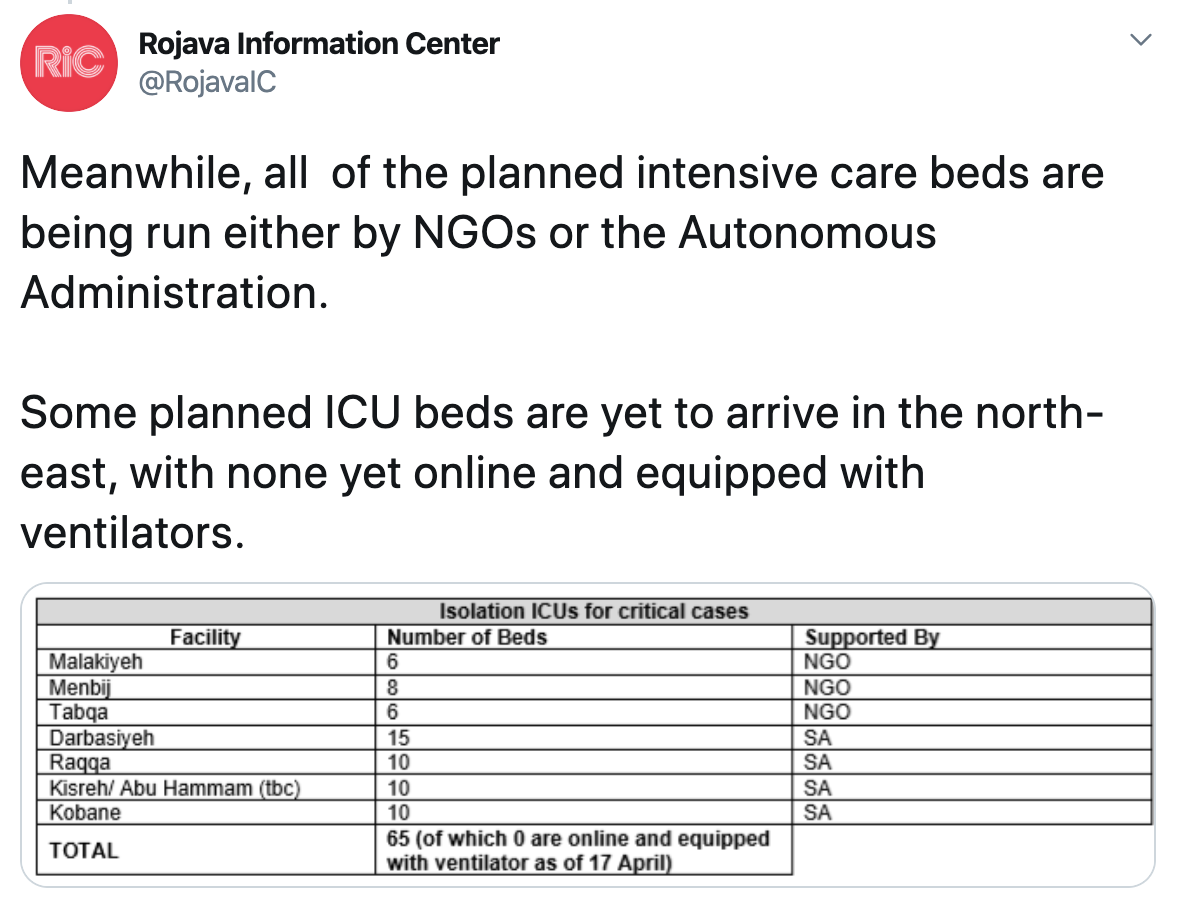
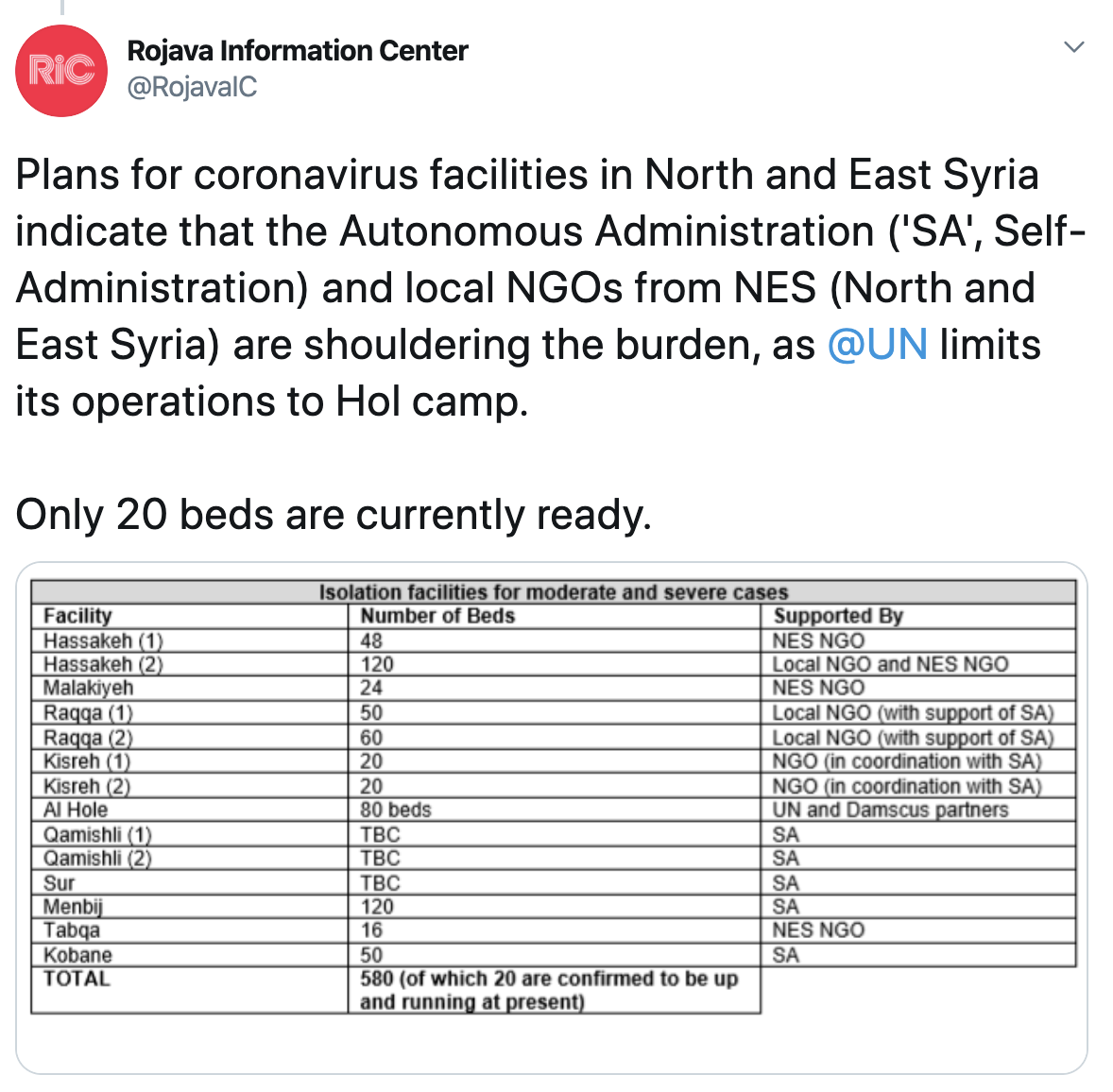
April 18:

April 17:
The Autonomous Administration of North and East Syria has confirmed their first case of COVID-19 and its first death, a 53 year old man in Hasakah
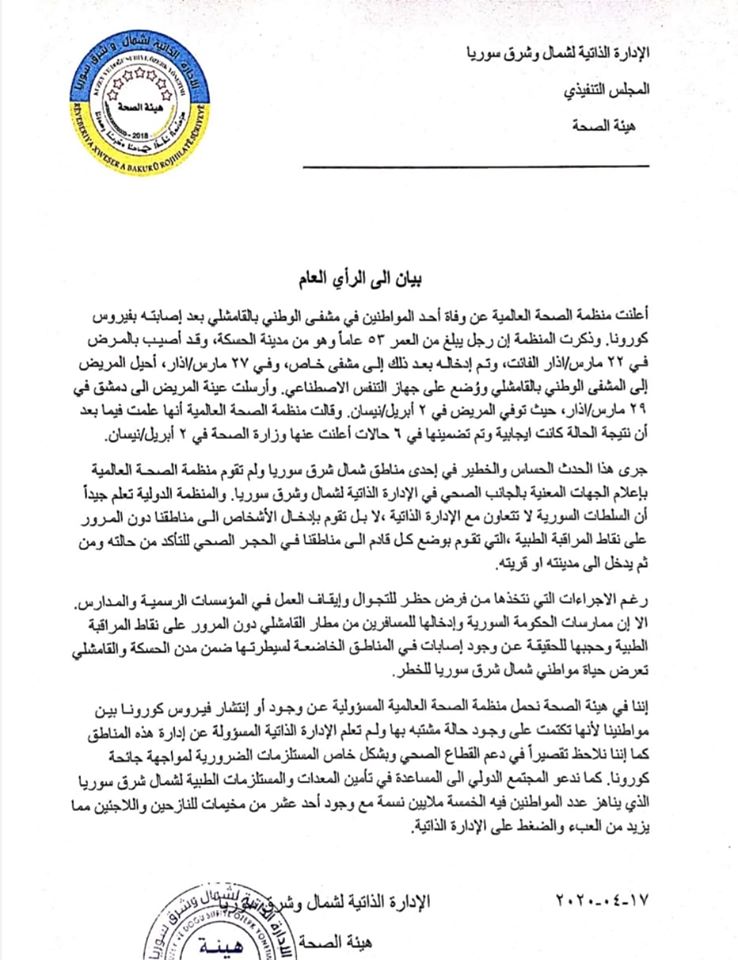
Syria Virus Death Traced to Kurdish-Run Northeast Region
Cooperation and advocacy among people of Raqqa to overcome labor stoppage during Coronavirus curfew
April 16:
The Autonomous Administration of North and East Syria announces a prisoner-release program to relieve the coronavirus threat in detention facilities
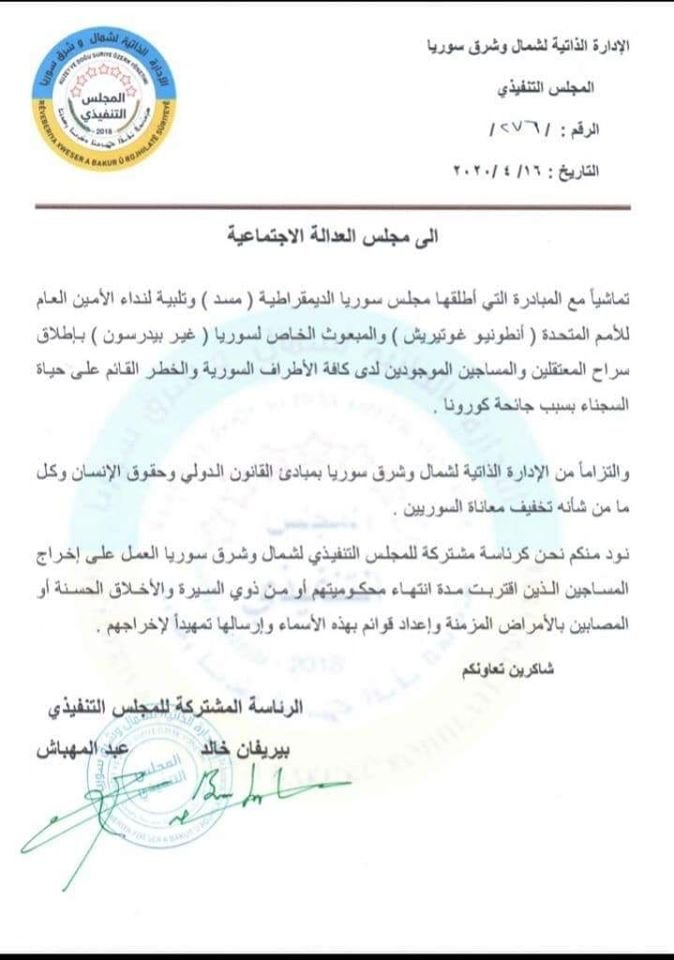
April 15:

Coronavirus Raises Tensions Between Syrian Government, Kurds
April 13:
Extended lockdown brings more burdens for Syrian Kurds
A decision to facilitate the movement of farmers and their workers to the agricultural lands during the curfew
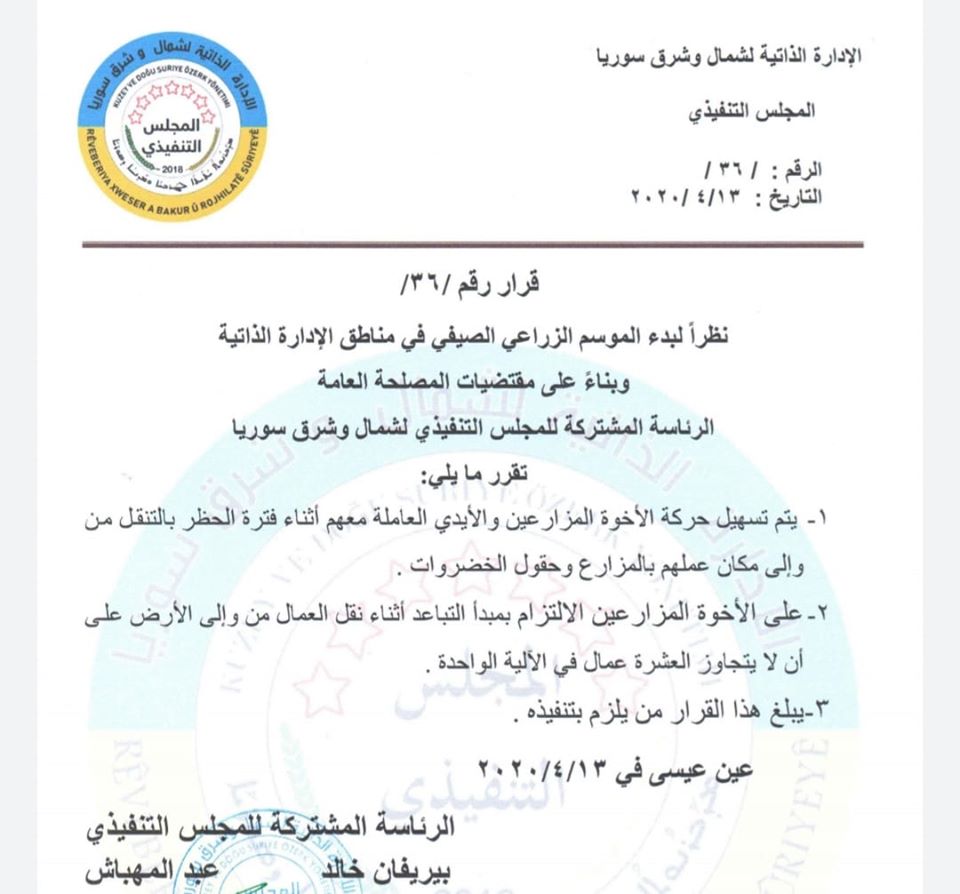
April 12:
Coronavirus test kits arrive in northeast Syria with help of Kurdistan Region
April 11:
Remain in your home
April 10:
Adherence to civilization laws
April 9:
Dr. Fares Hammam of Hasekah’s S. Sarya hospital: “We have established a control area, a triage point, and dedicated the whole hospital to corona cases. But we hope PCR machines will arrive in NE Syria, because we cannot currently test accurately for corona.”
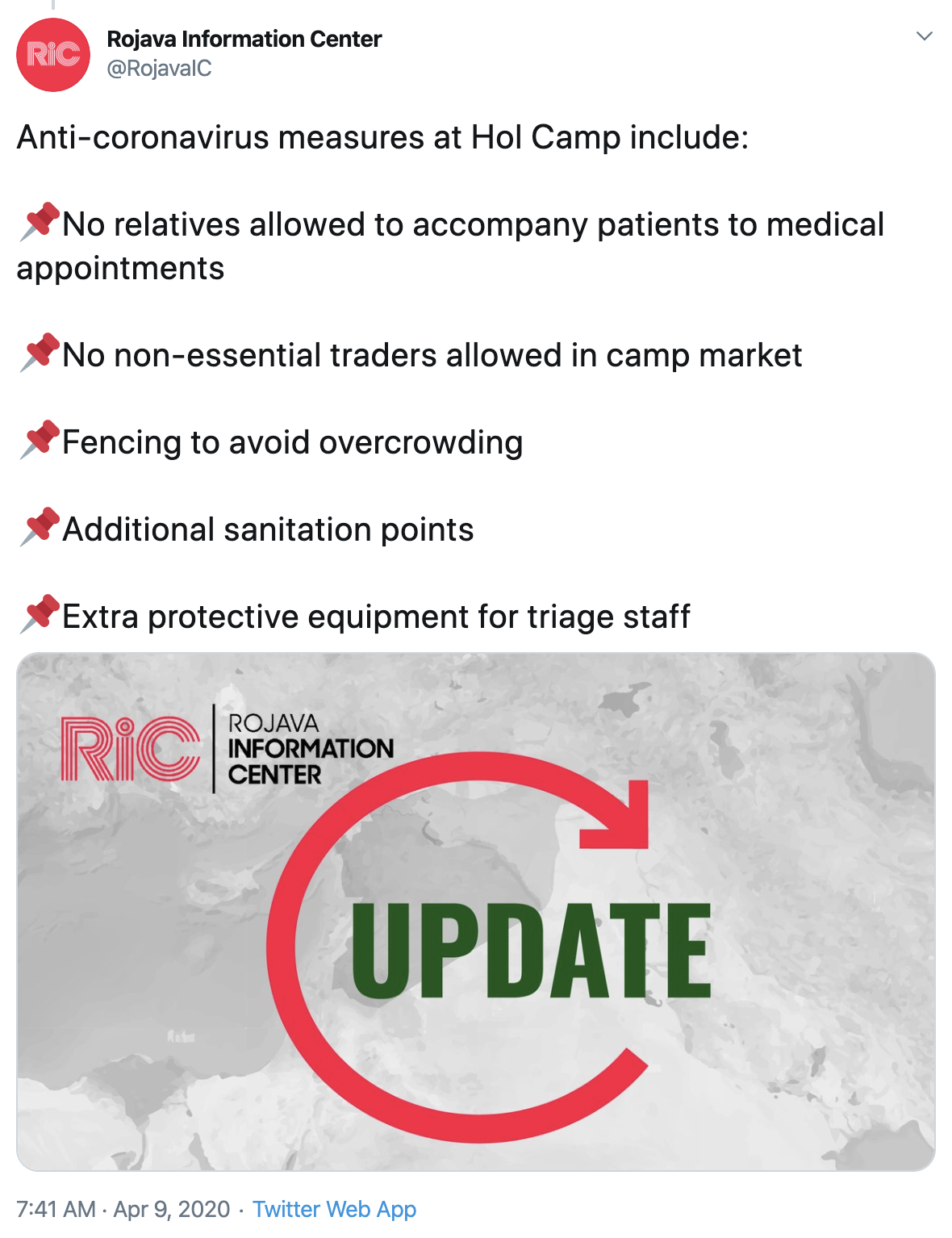
April 8:
US Trying ‘Urgently’ to Stave Off Coronavirus Outbreak in NE Syria
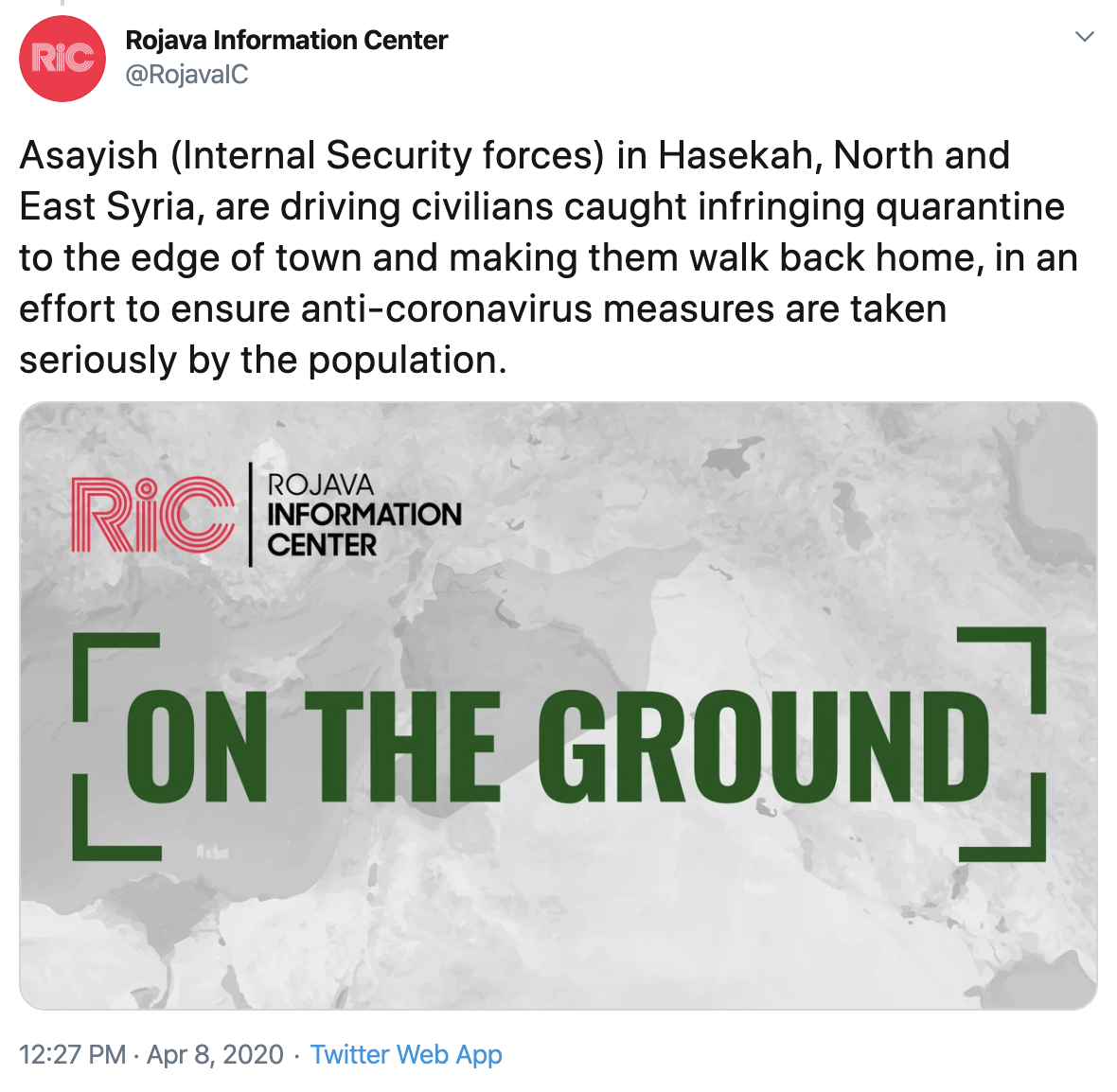
The Health Authority of the Self-Administration accuses the Syrian government of introducing travelers from Damascus to the regions of northern Syria without subjecting them to a medical examination
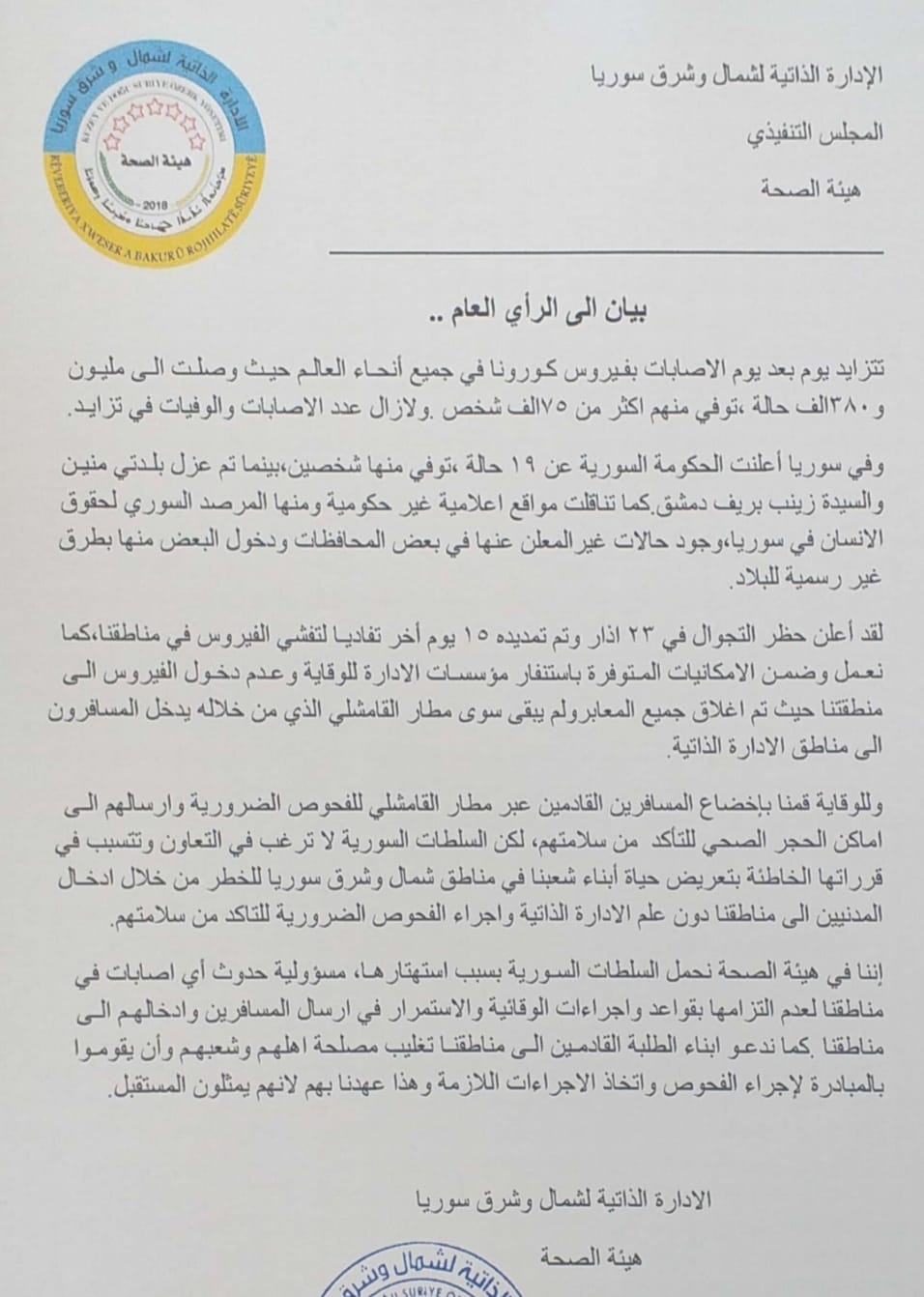
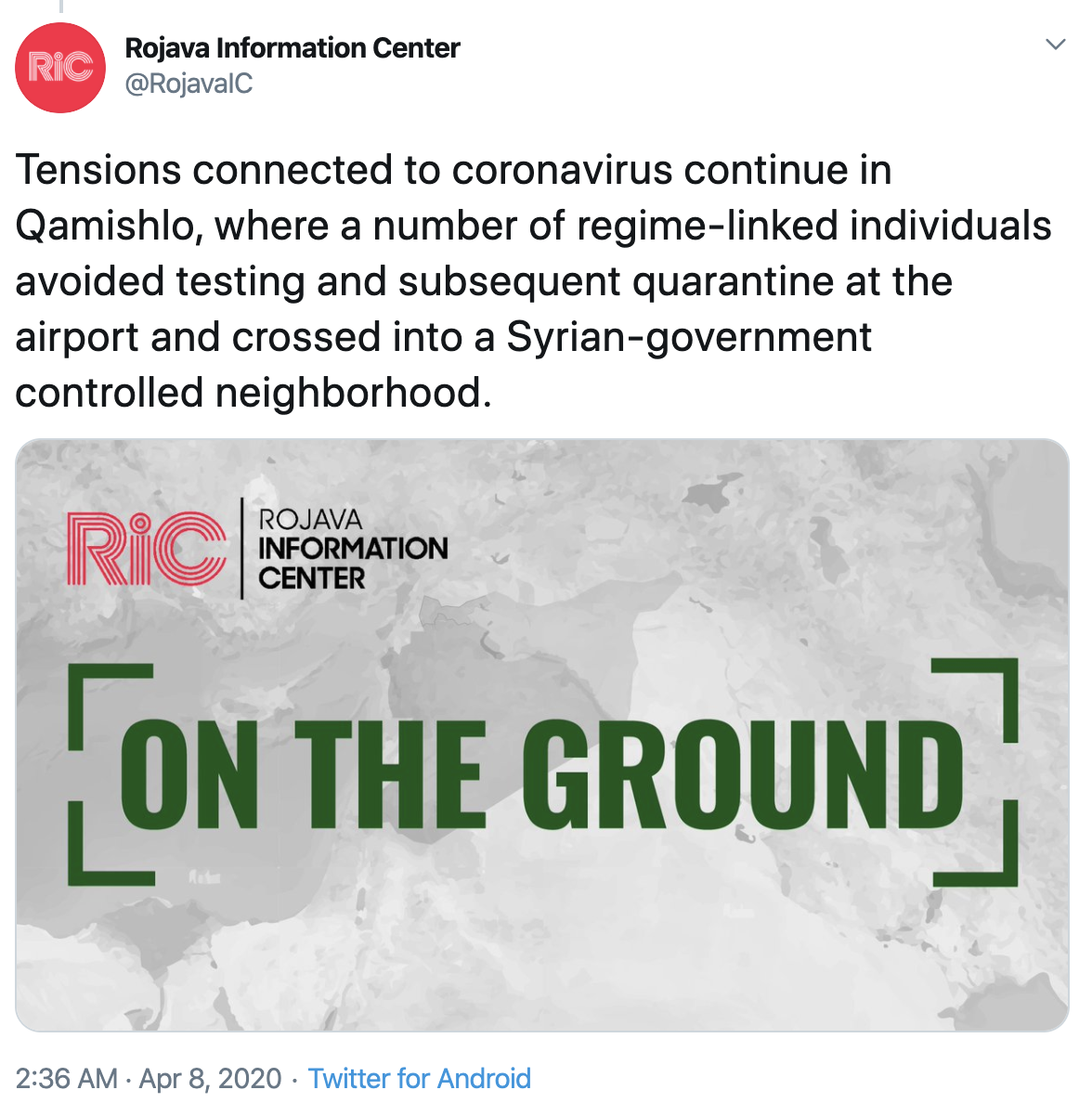
April 7:
Coronavirus Fear Grips Islamic State Families Detained in Syria
Virus Fears Spread at Camps for ISIS Families in Syria’s North East
April 6:
Rojava Information Center: Coronavirus crisis in North and East Syria: briefing
In view of the emergency conditions in the areas of the autonomous administration and the world from the outbreak of the coronavirus pandemic, the joint chairperson of the Executive Council decides the following
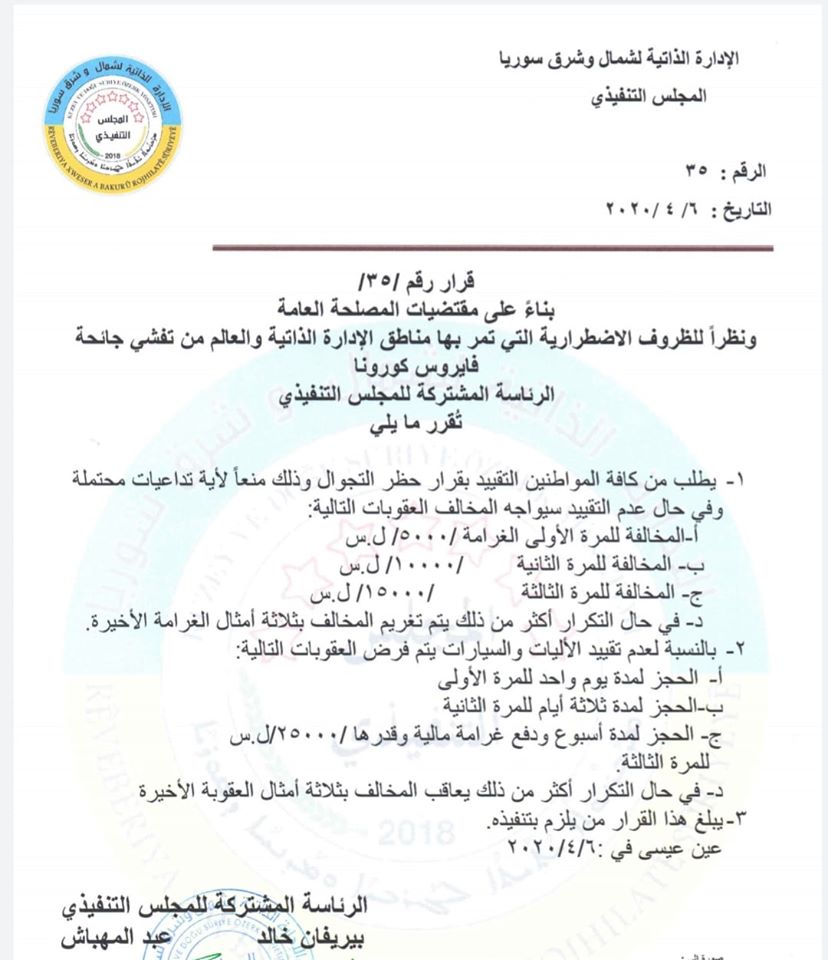
The Syrian Democratic Forces announce they will stop forced military recruitment campaigns in areas under their control for a period of 3 months due to their fight against the Coronavirus
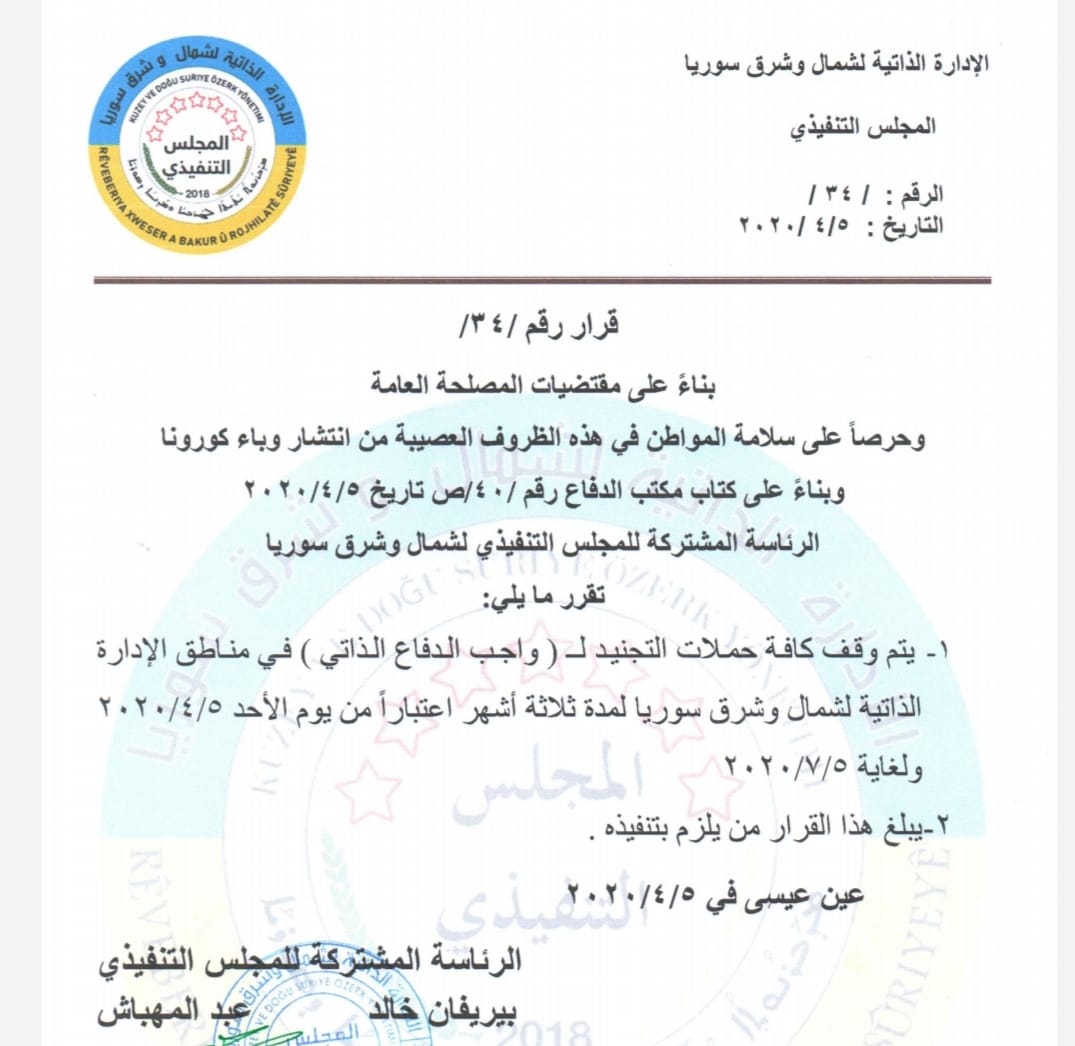
Photos show frontline checks on people returning from Damascus
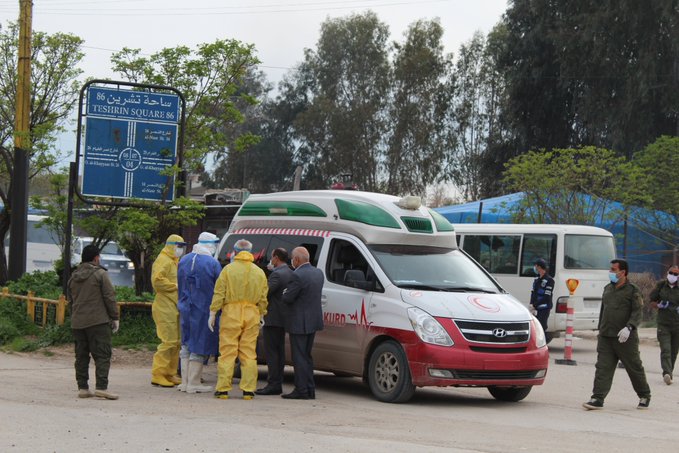
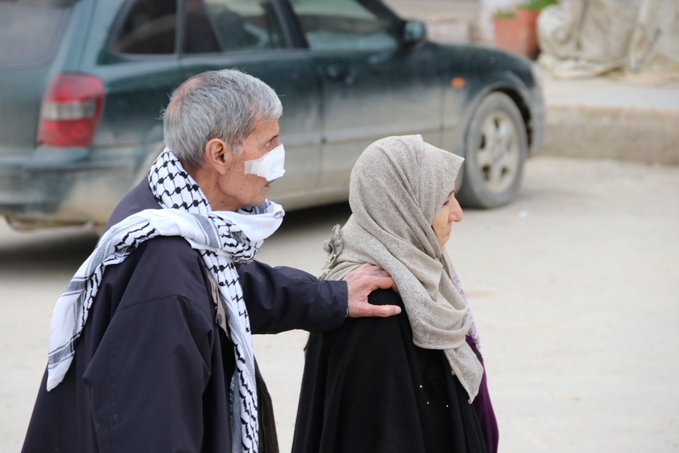
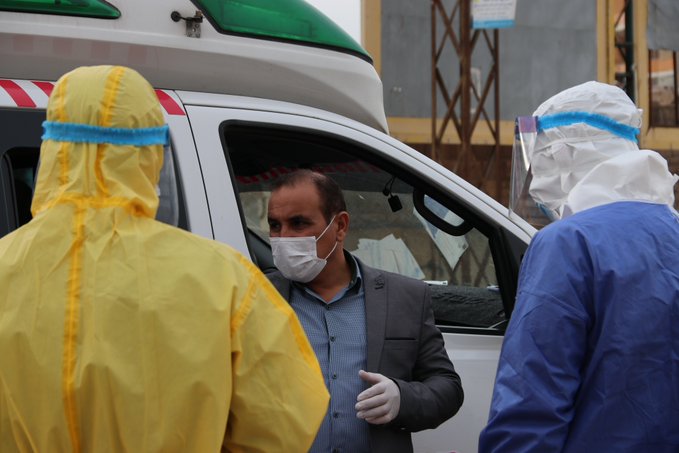
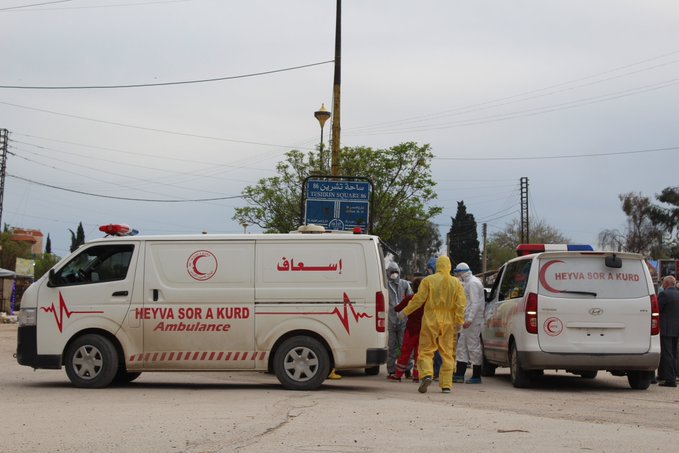
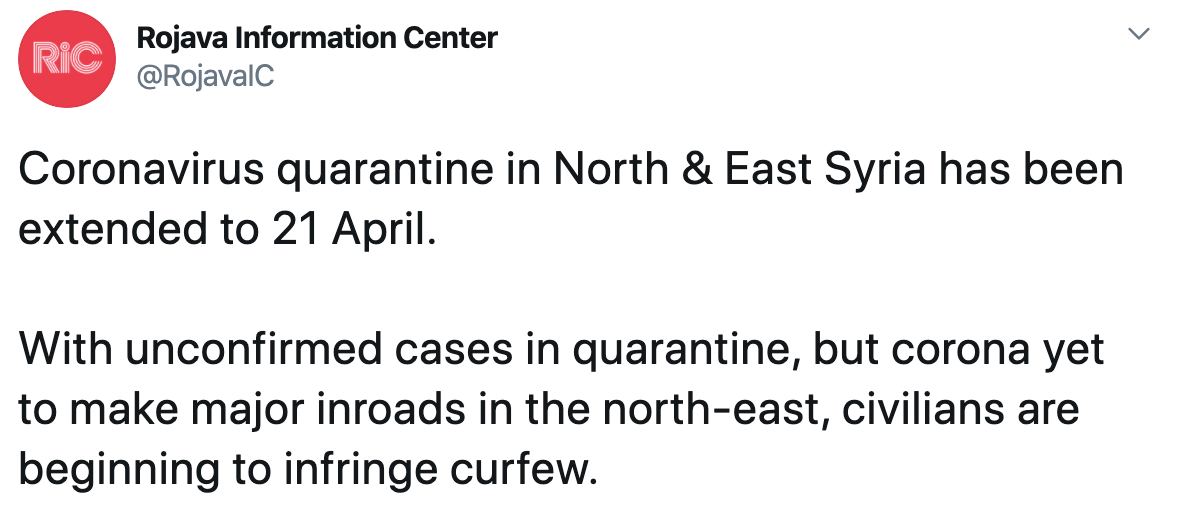
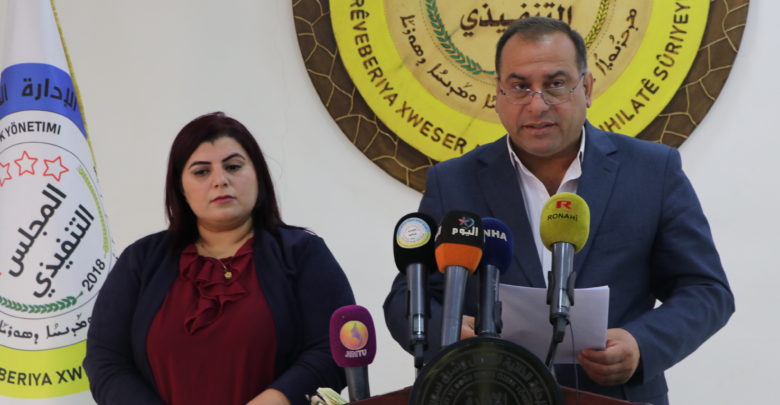
Syria’s isolated Kurds wait and worry as coronavirus threat grows
Amid coronavirus concerns, some US-funded aid work paused in northeast Syria
Exemptions related to paying bills (water, electricity and garbage/cleaning) for May – June for all participants in the autonomous administration as an aid to the citizens in the period of curfew imposed due to the coronavirus
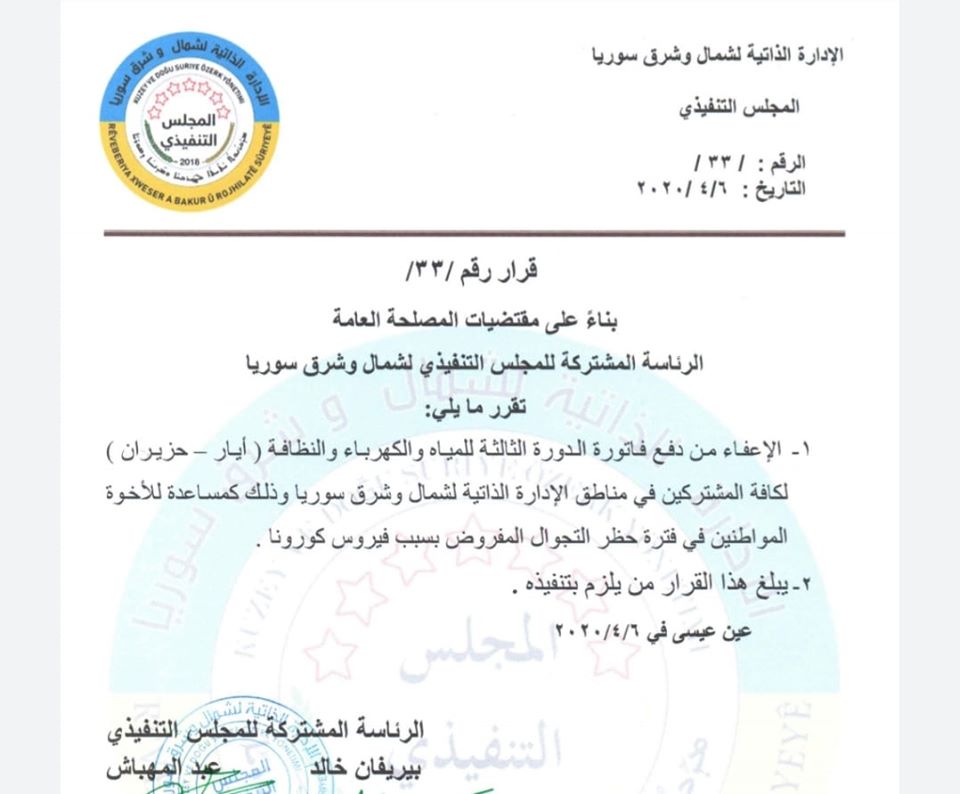
April 5:
Dr. Mohammed Abdulaziz of NE Syria Health Department tells Rojava Information Center that frontline testing has identified a number of potential corona cases on civilian flights arriving today from Damascus. The subjects will be quarantined.
Coronavirus fears expose tenuous security in Kurd-controlled northeast Syria
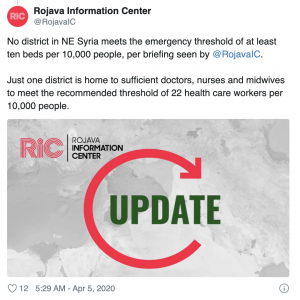
April 4:
The Social Justice Council of the autonomous administration of north and east Syria decides the following
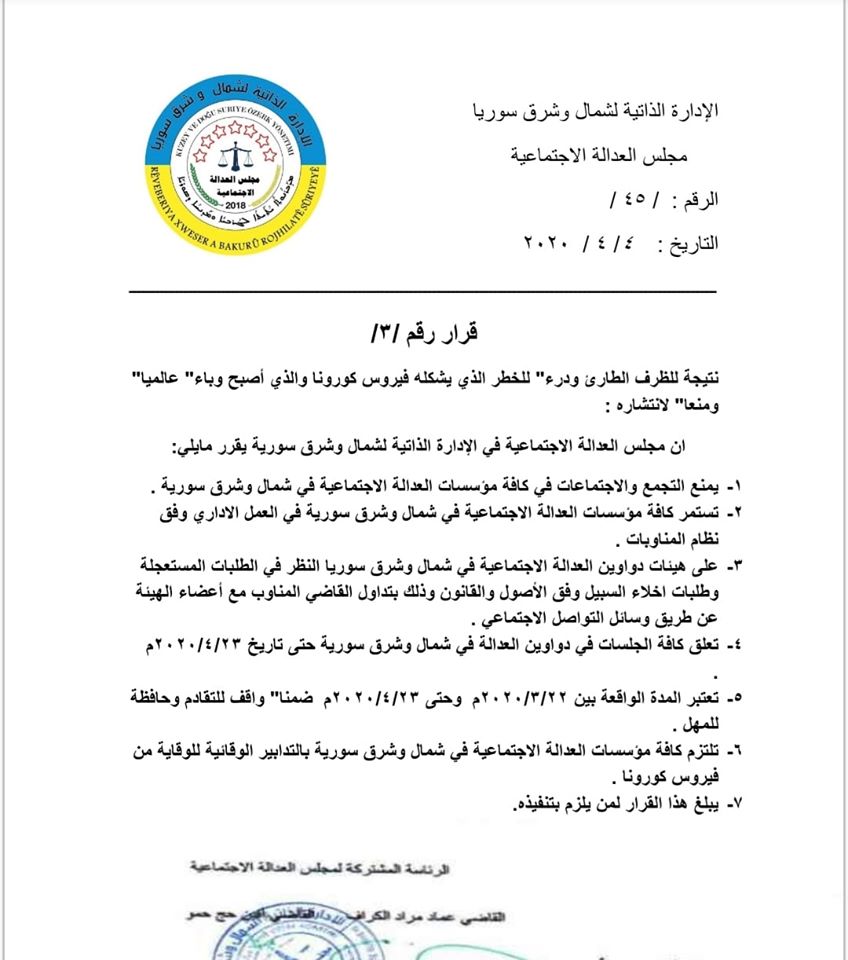
The Autonomous Administration of North and East Syria is launching a new ‘Home School’ program, to be broadcast on the AANES’ Roj TV channel
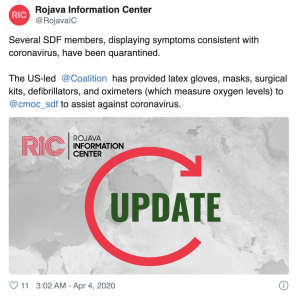
April 3:
Coalition provides $1.2 million in coronavirus equipment to anti-ISIS forces in northeast Syria
Syria: Al Hol field hospital introduces COVID-19 preventative measures
April 1:
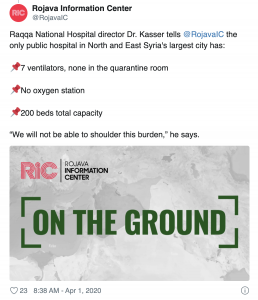
Syrian Kurds hunker down amid fears of COVID-19
March 31:
In Qamishlo, local communes are collecting the names and numbers of families who will need food relief during the ongoing coronavirus quarantine – particularly day laborers and IDPs. In coordination with the Autonomous Administration, they will then distribute the aid.
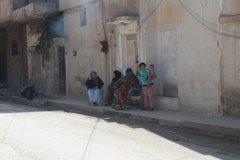
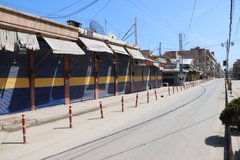
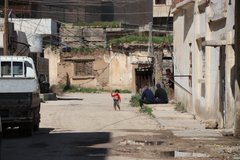
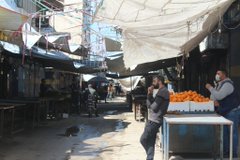

Kurdish Officials, Rights Groups Concerned Coronavirus Will Spread Among IS Prisoners in Syria
For Your Safety
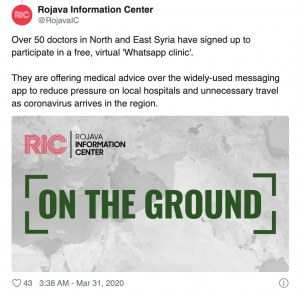
March 30:
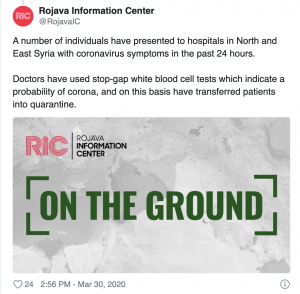
March 29:
Regarding special cemeteries for those that are deceased as a result of the coronavirus to ward off its transmission
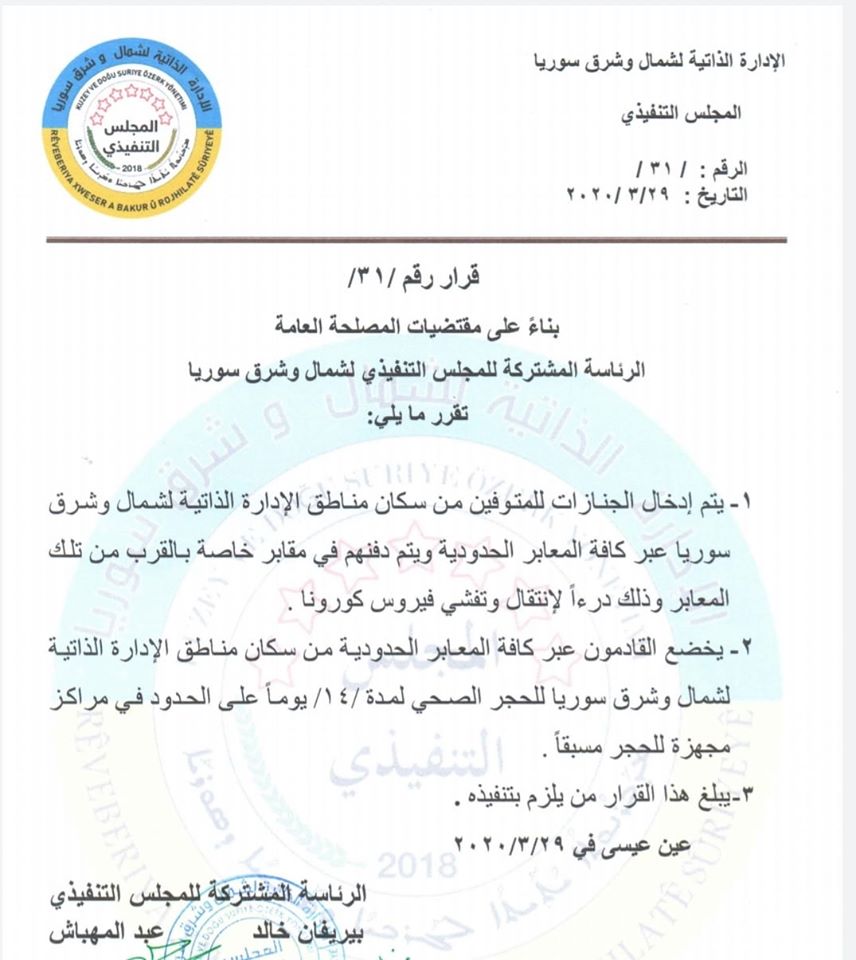
The Autonomous Administration is set to give aid to the poor during this lockdown, as their income has been halted as a result of not being allowed to work
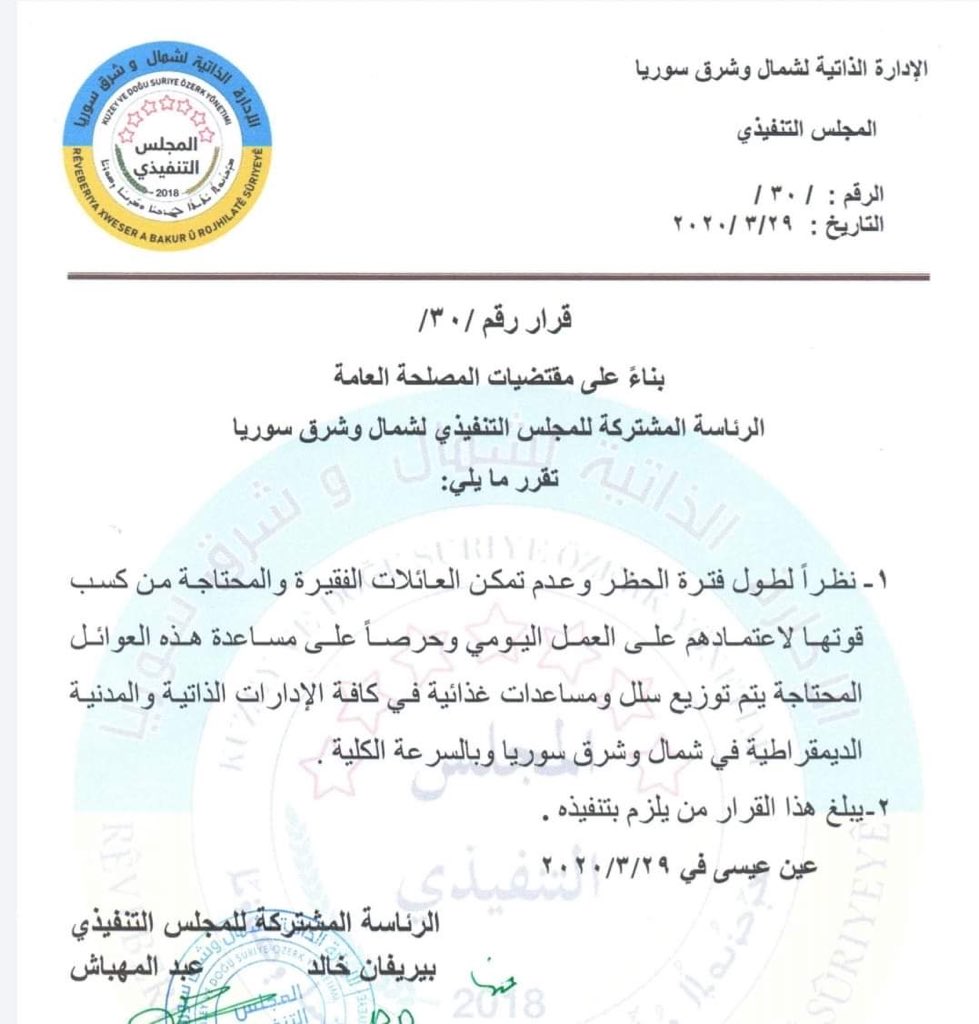
March 28:
Remain in Your Homes #2
Let us cooperate to prevent the virus from entering our areas
March 27:
Coalition Civil Affairs Divests Equipment To Further Stabilize NE Syria
March 26:
Remain in Your Homes
March 25:
Interview: World Health Organization Syria rep. on coronavirus in North and East Syria
The Autonomous Administration of North & East Syria fixes prices for staples to prevent price-gouging during coronavirus pandemic
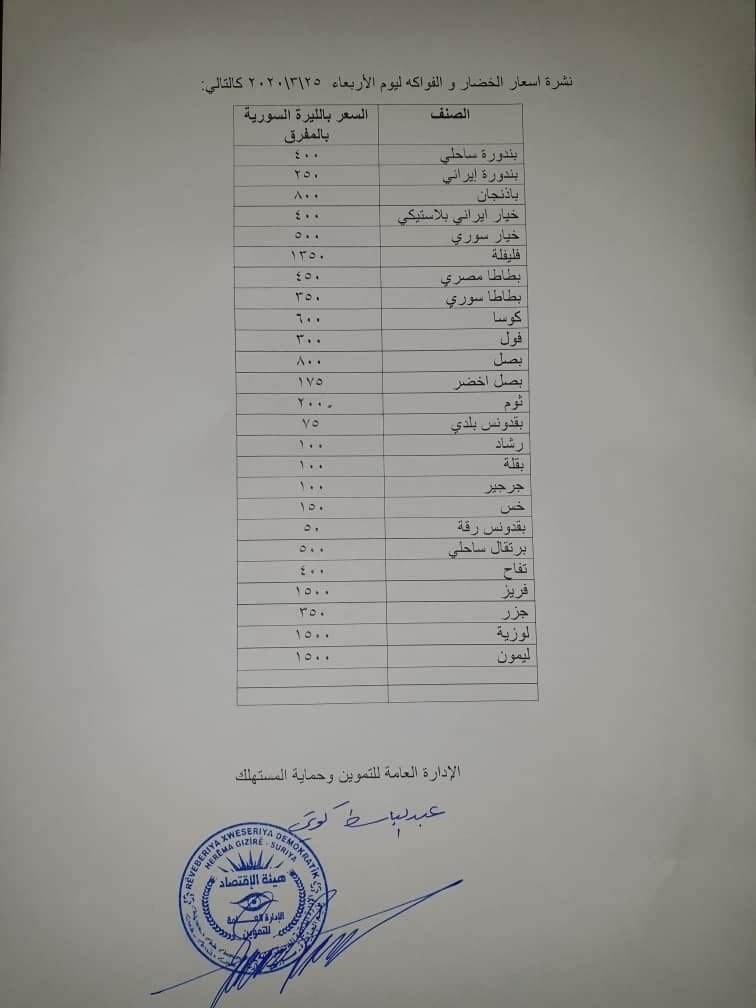
To the people of northern and eastern Syria regarding coronavirus
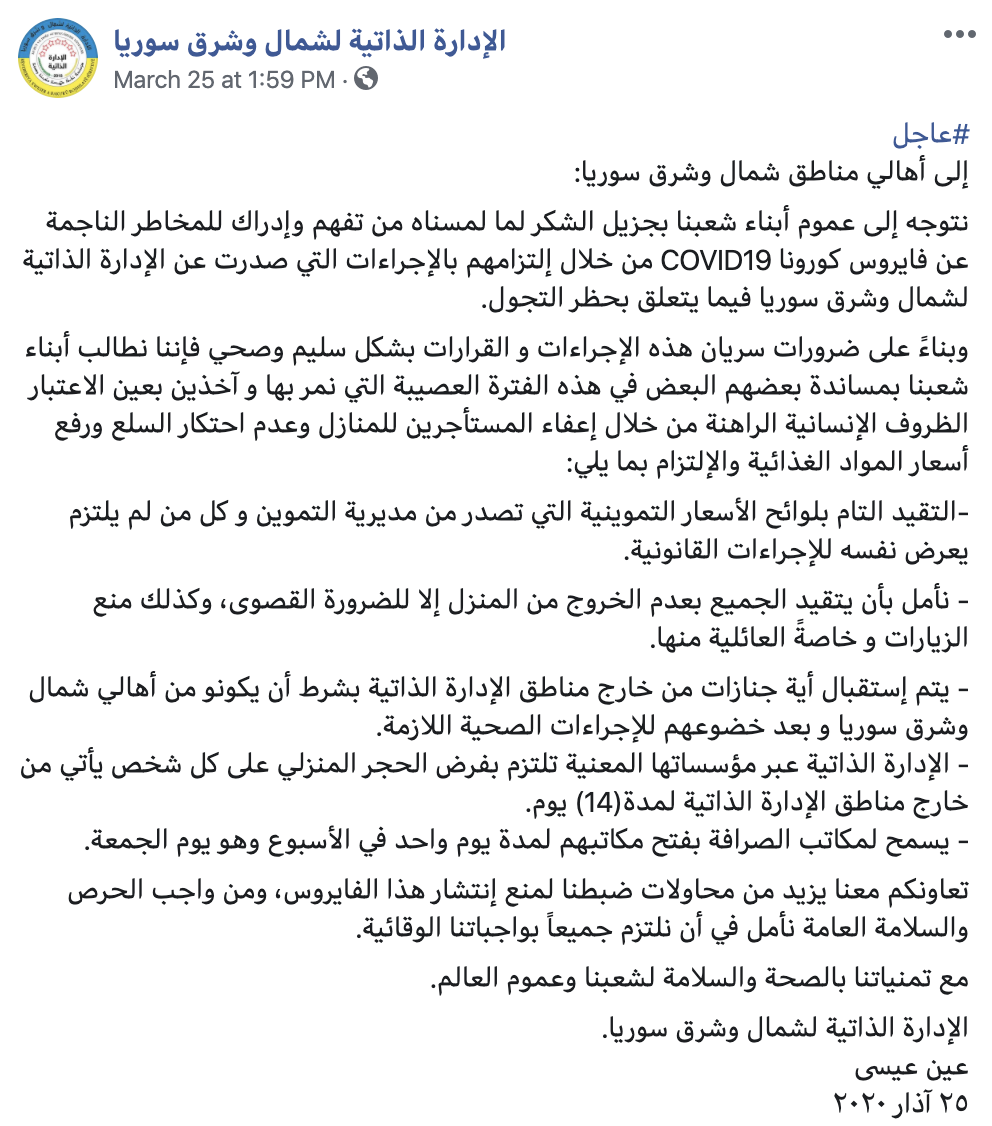
March 24:
March 23:
Kurdish-led northeast under lockdown as Syria announces first coronavirus case
Together, we take care to protect ourselves from the spread of the Corona epidemic
General Mazloum Abdi: We highly value the measures taken by the autonomous administration to confront the Coronavirus and we ask the people to abide by the declared curfew
Curfew began in Kobani today at 6 am
March 22:
Coronavirus awareness billboards have been put up all across al-Raqqah
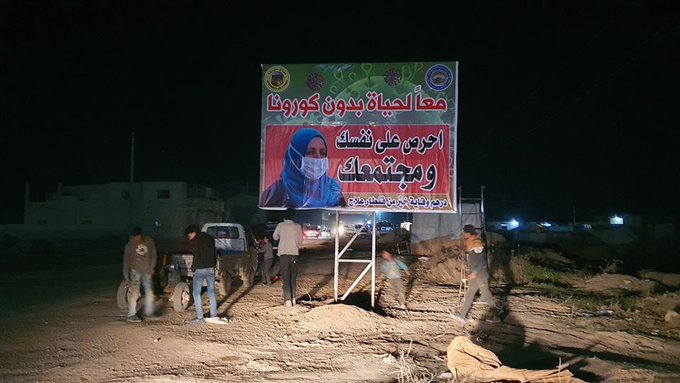
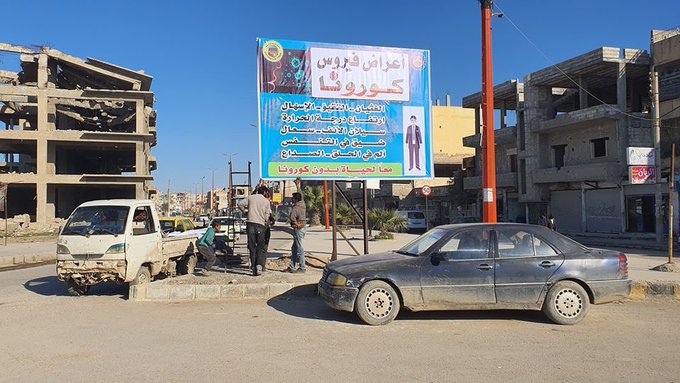
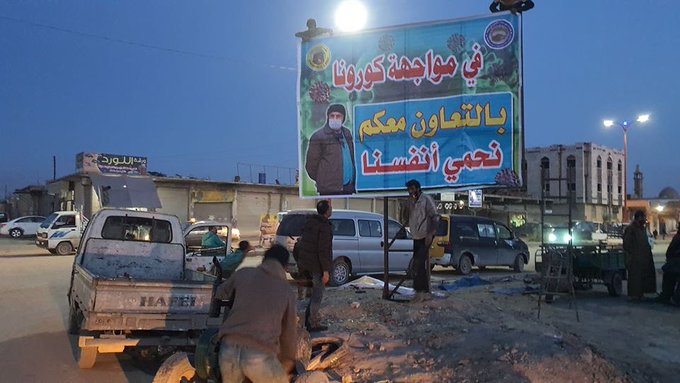
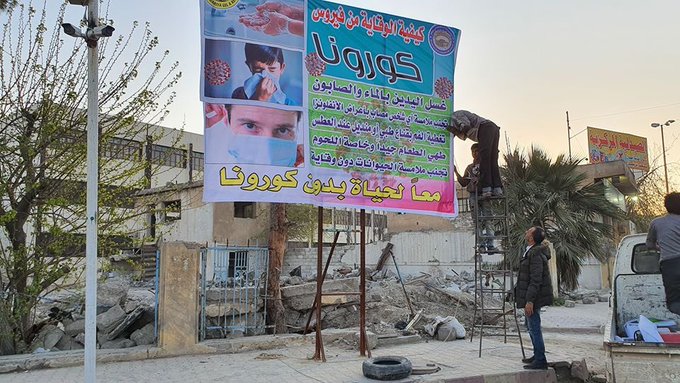
Raqqa Civil Council issues circular that beginning tomorrow morning it will take measures to prevent residents from moving about the war-torn eastern Syrian city amid coronavirus concerns
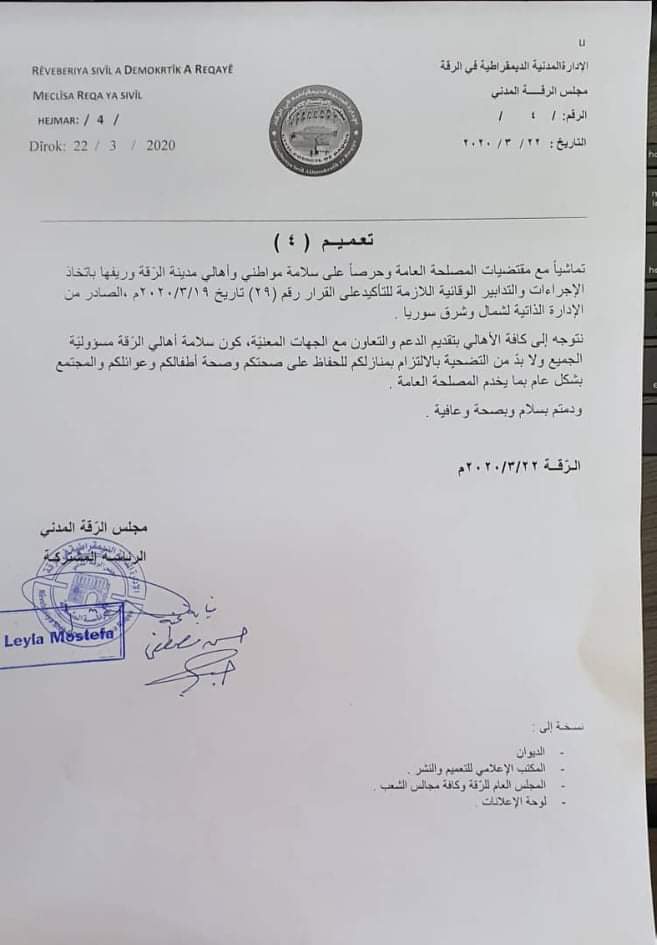
March 20:
The Health authority is making a test kit to detect coronavirus in 30 seconds
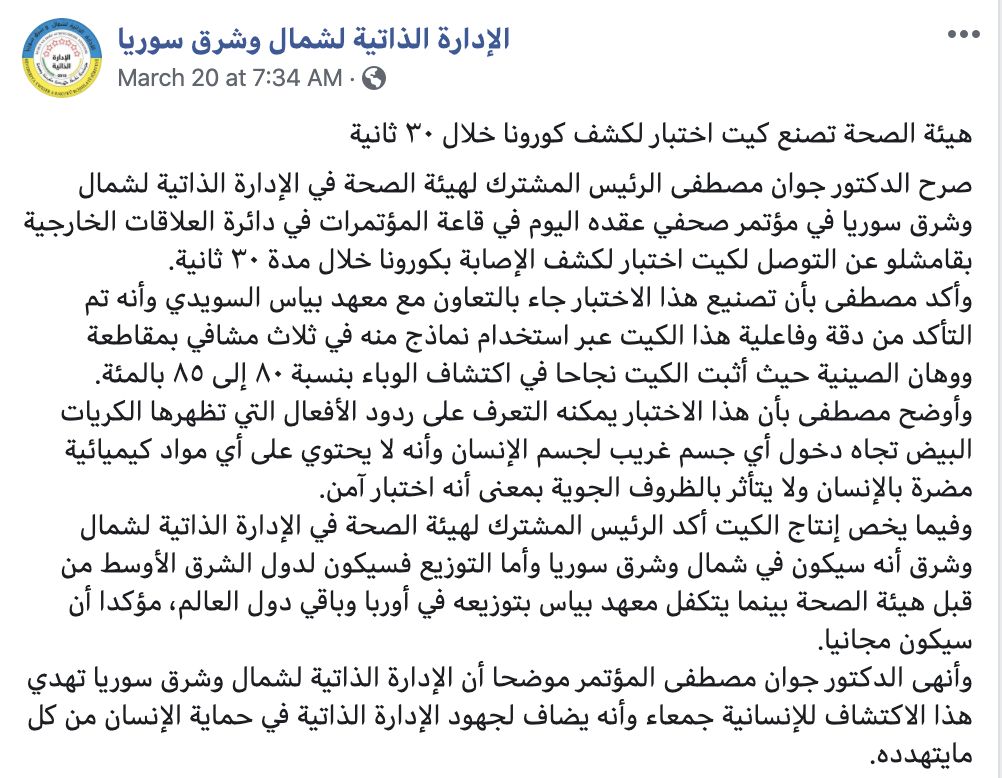
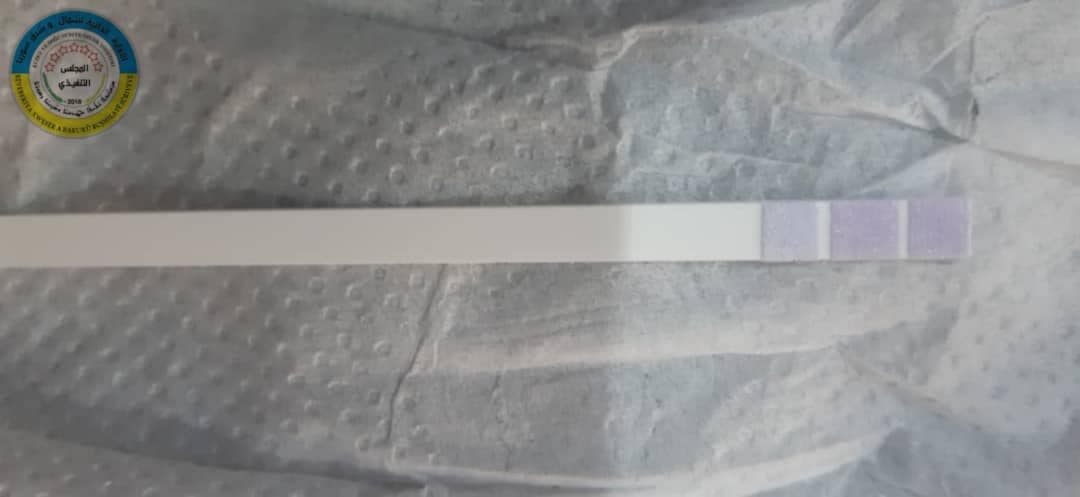
March 19:
Call to citizens in the areas of autonomous administration in the north and east of Syria to adhere to the following procedures
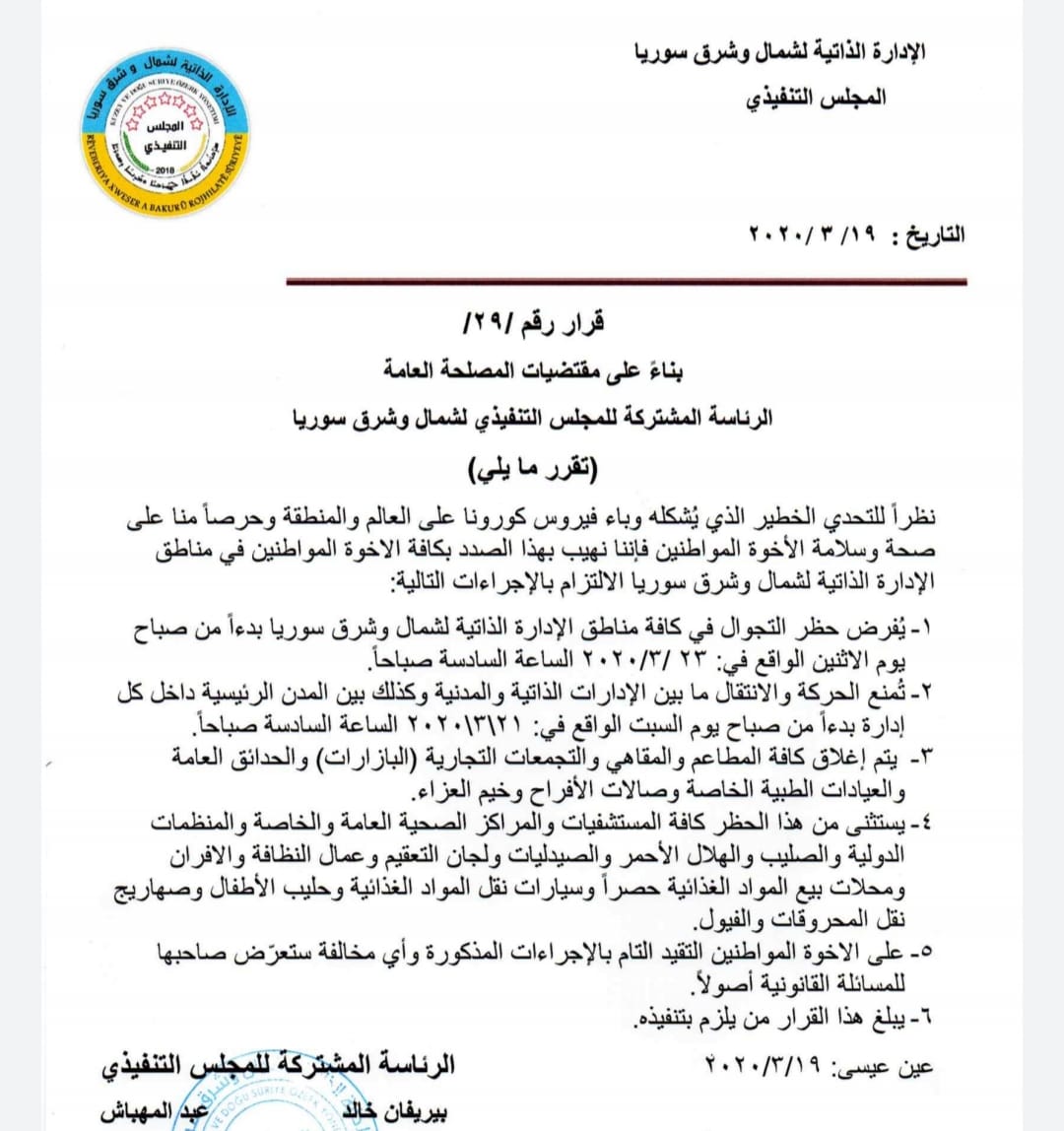
March 18:
Beginning the sterilization of all the centers of the Internal Security Forces in al-Raqqah, in order to ward off the danger of coronavirus to the regions of north and east Syria
March 17:
Ongoing sterilization campaign by the Autonomous Administration and civil departments in north and eastern Syria of their institutions
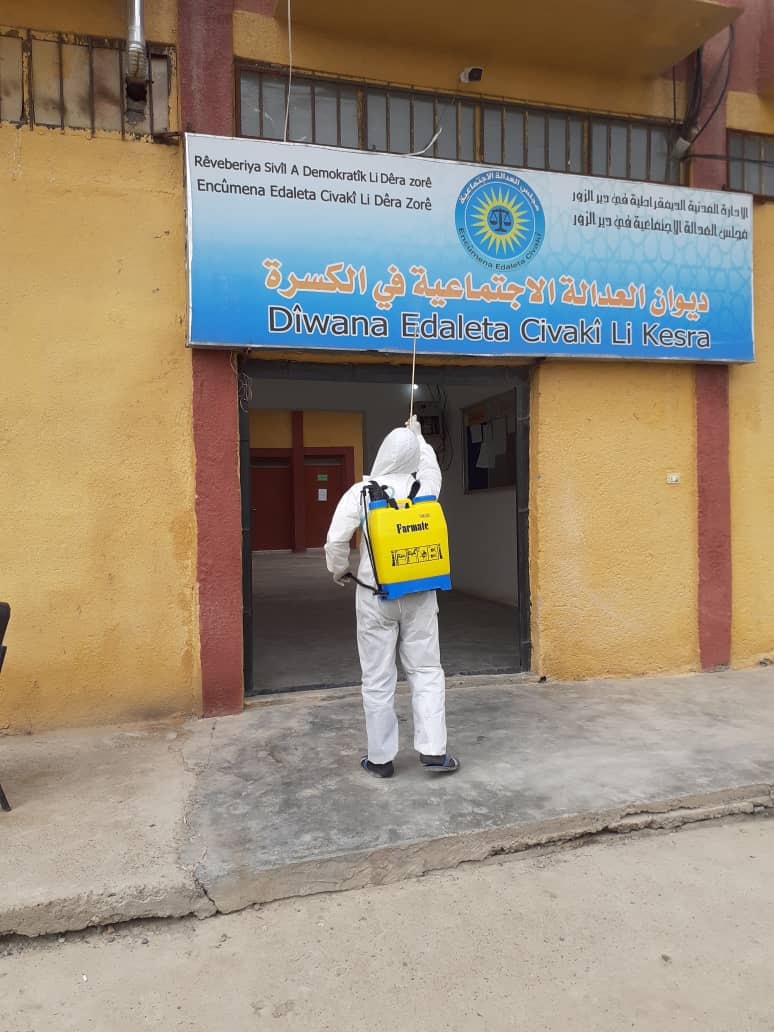
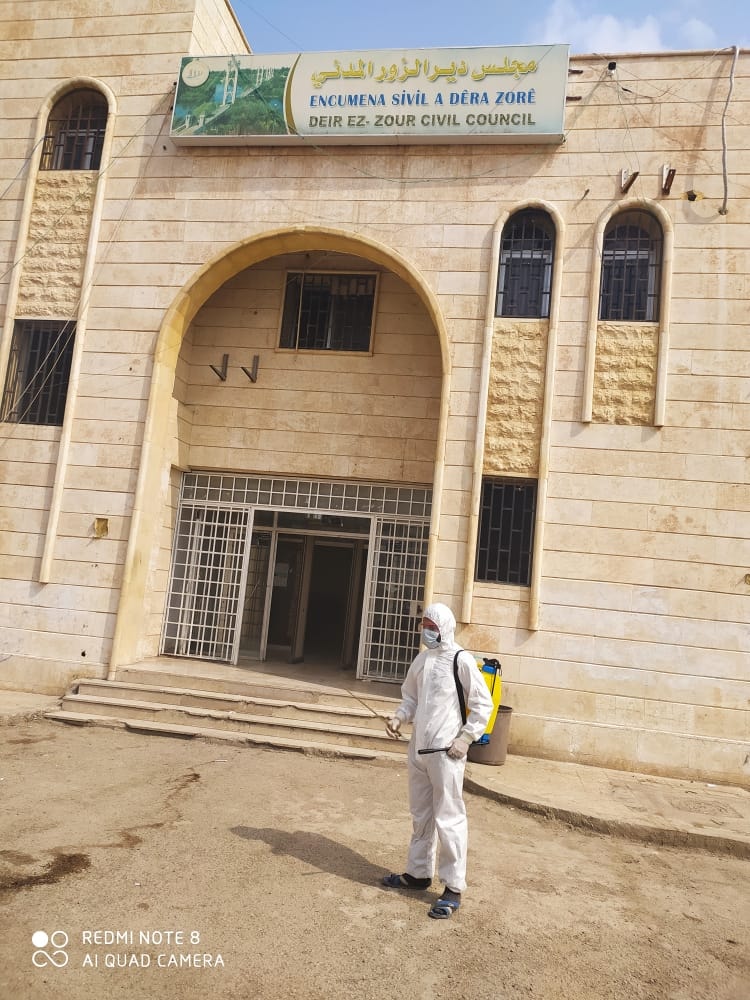
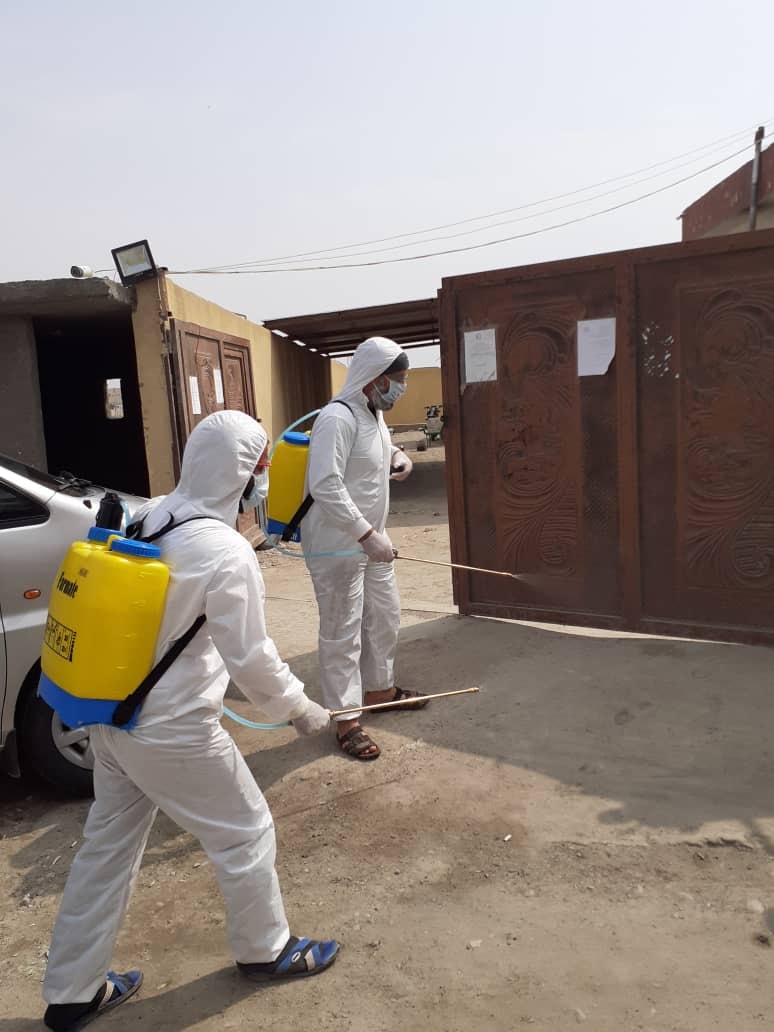
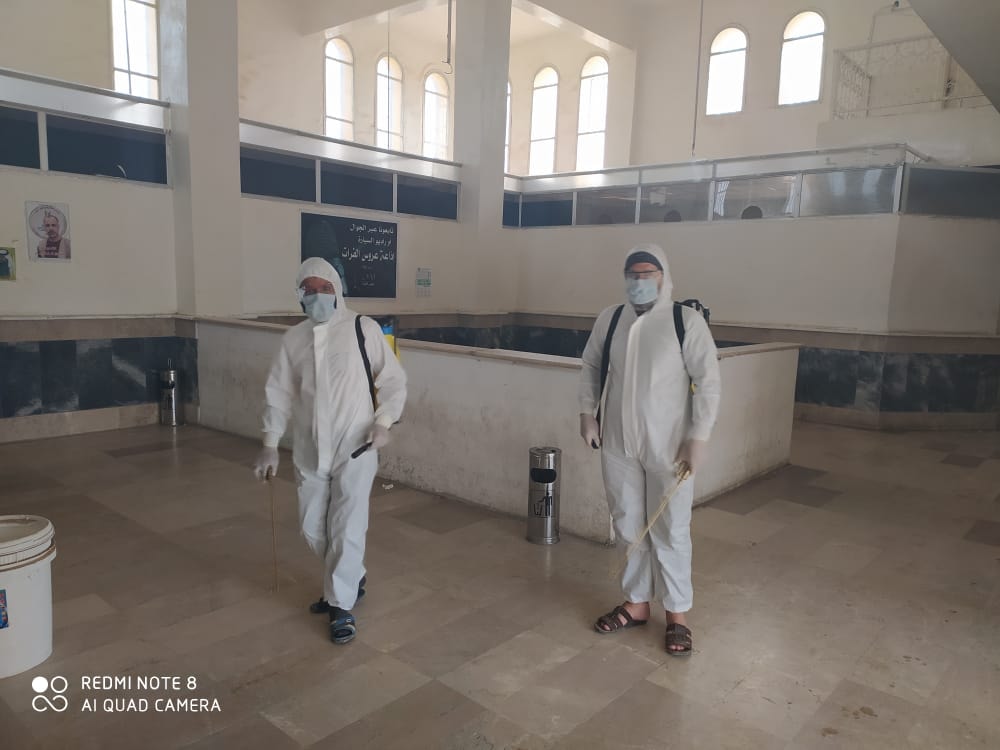
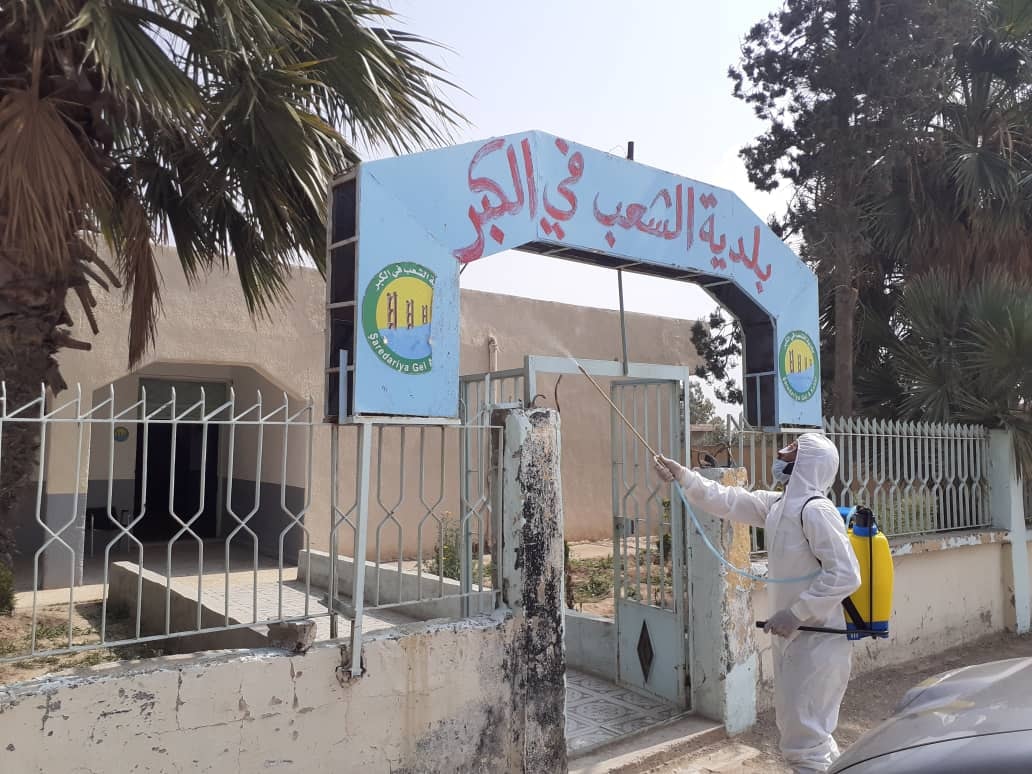
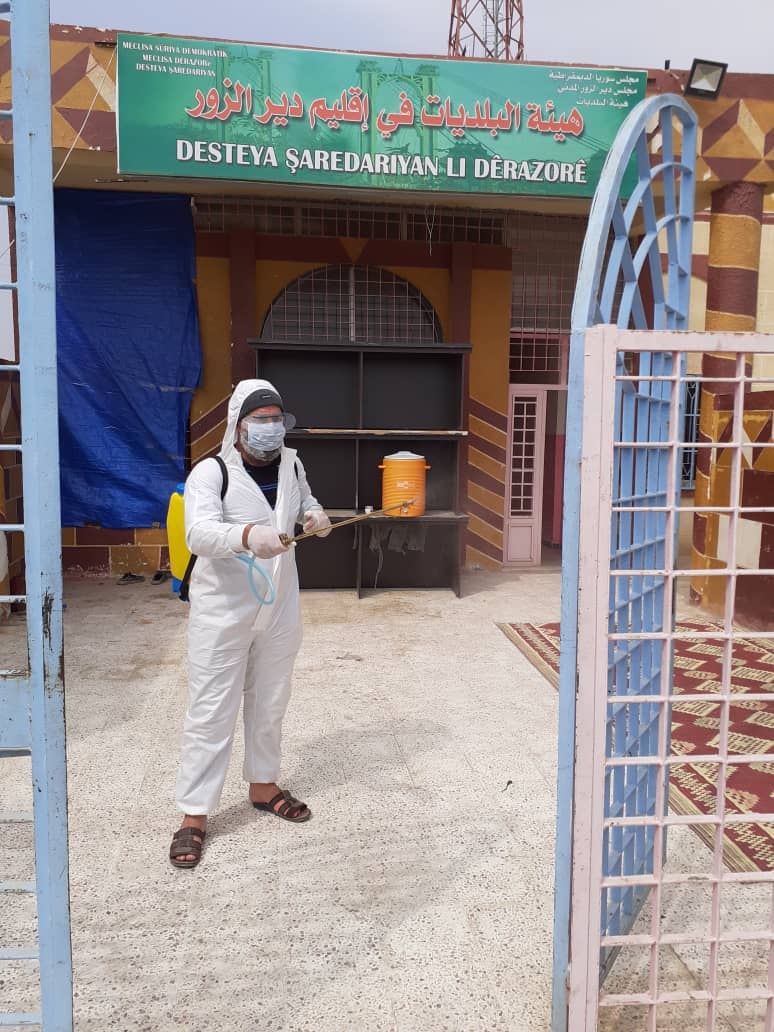
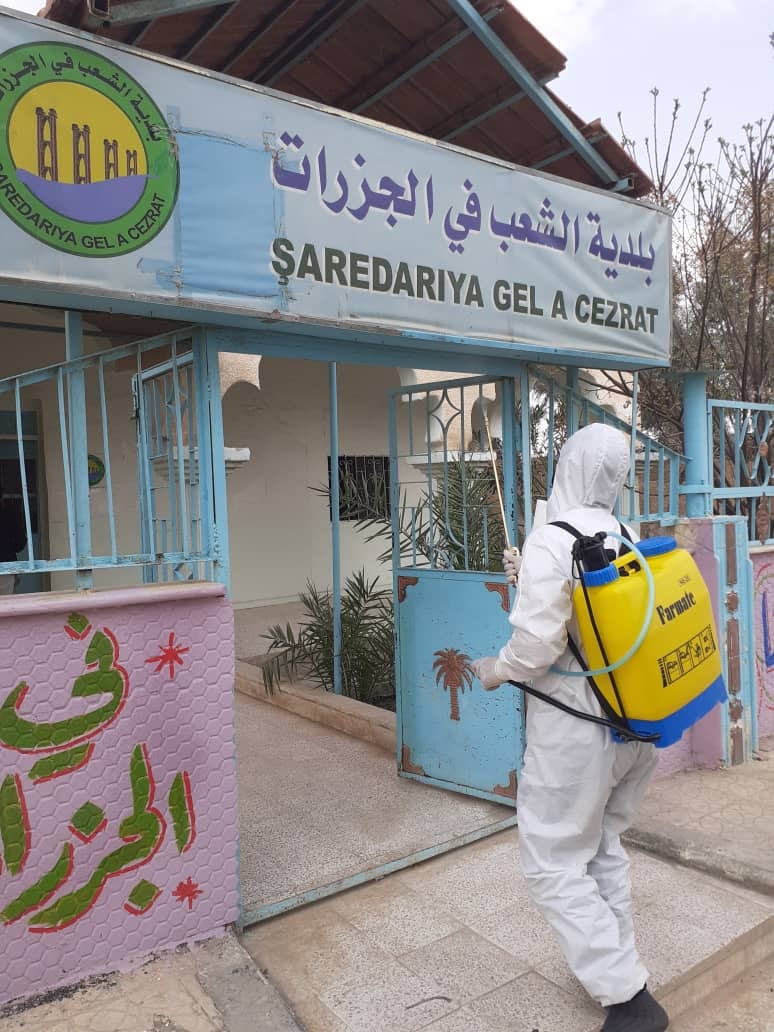
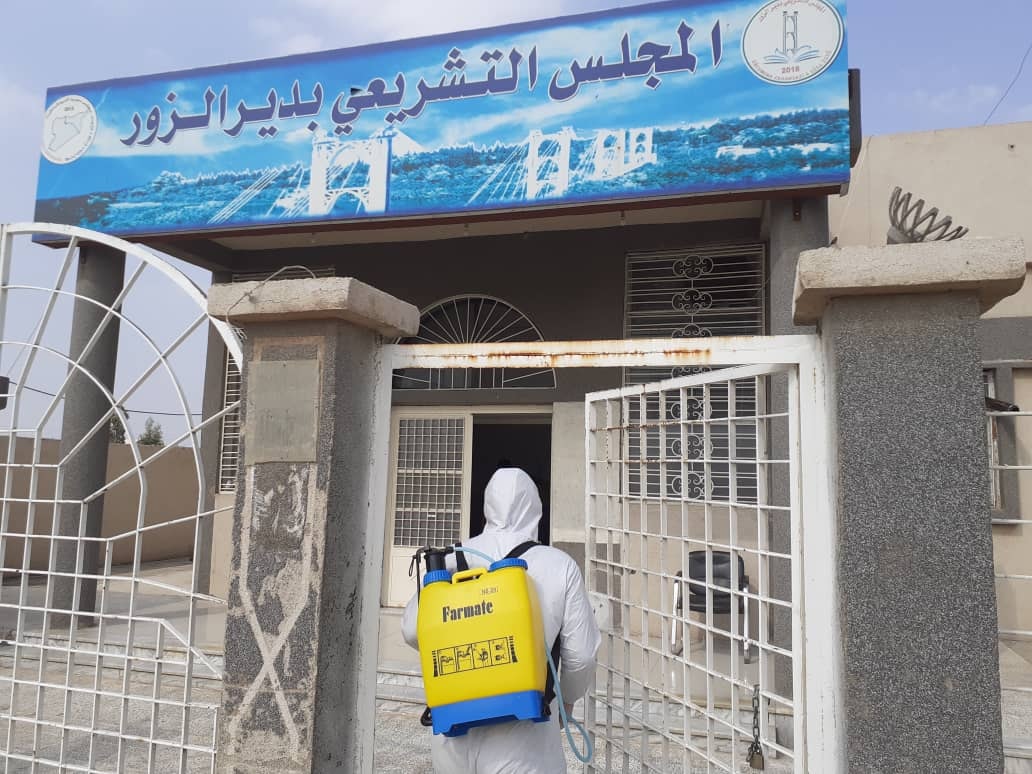
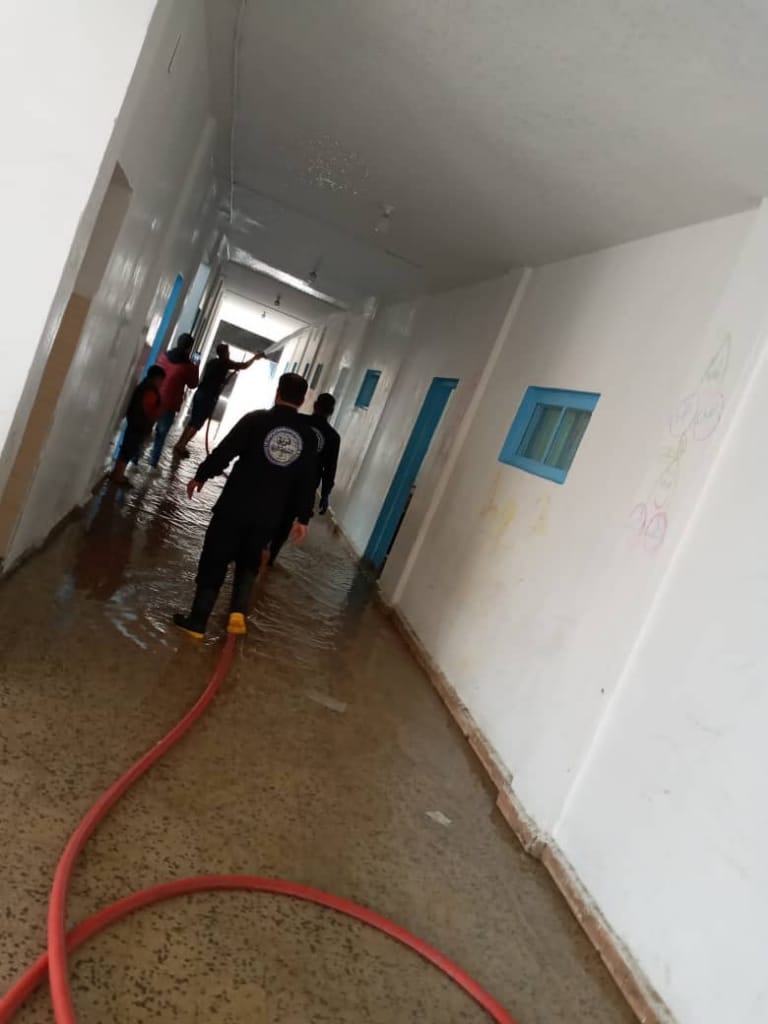
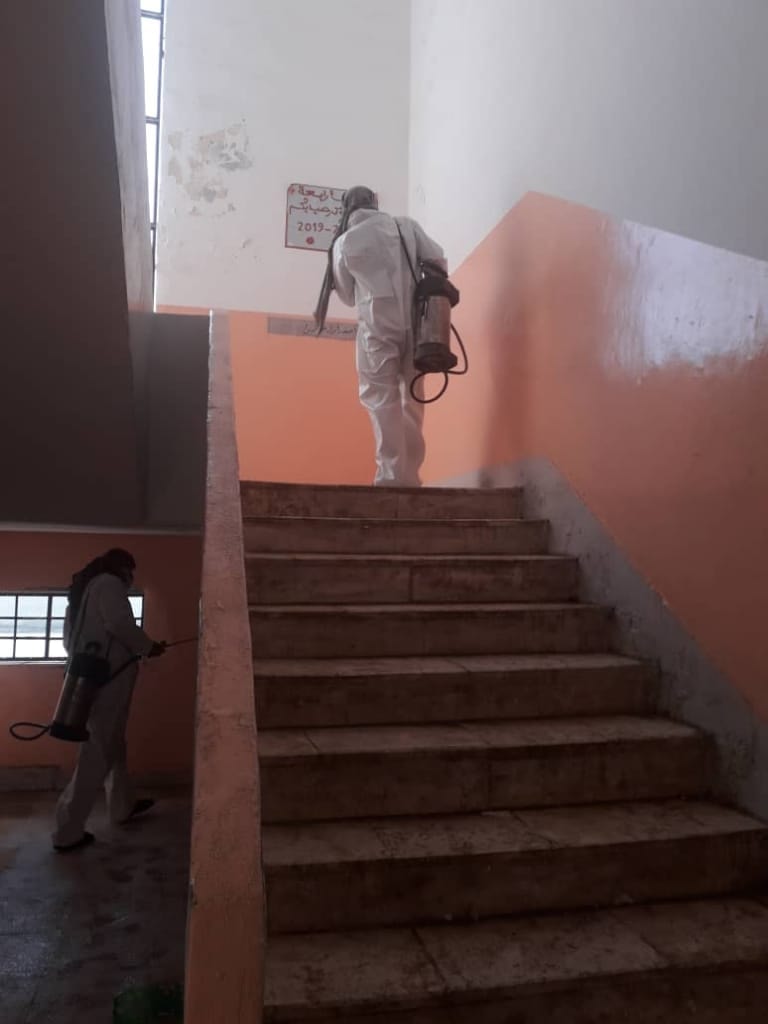
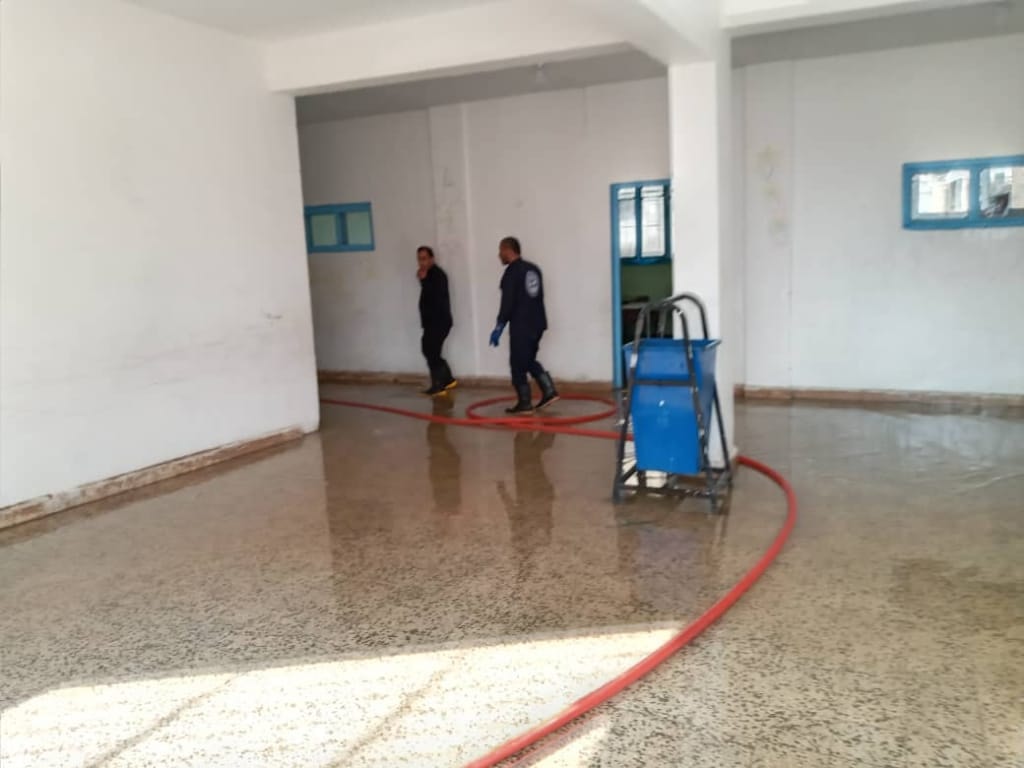
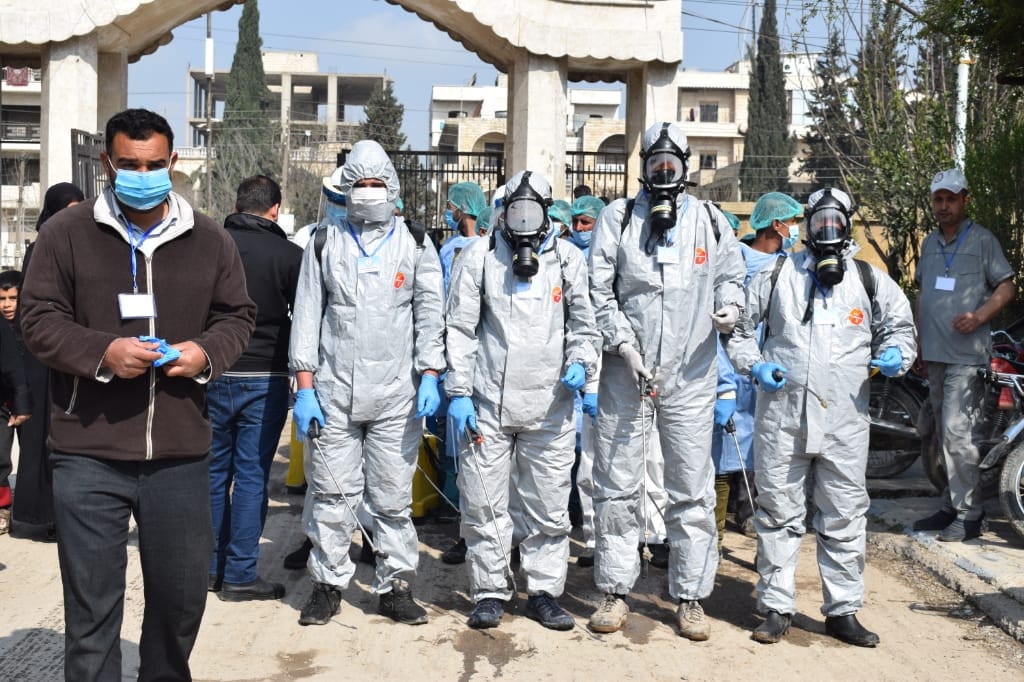
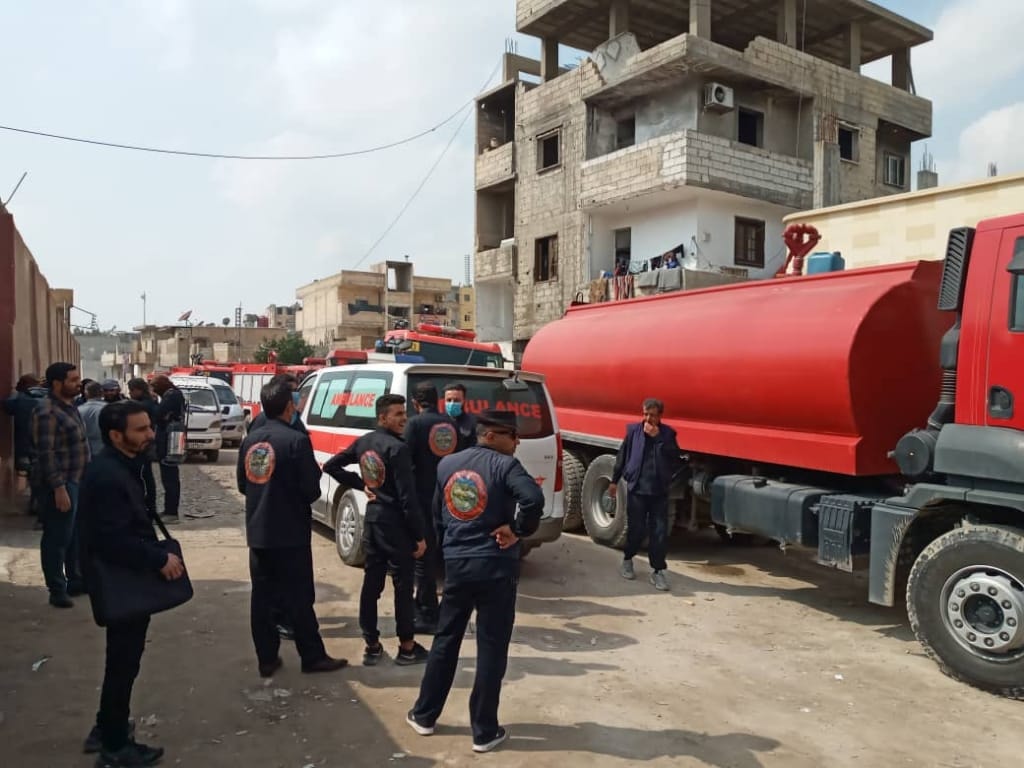
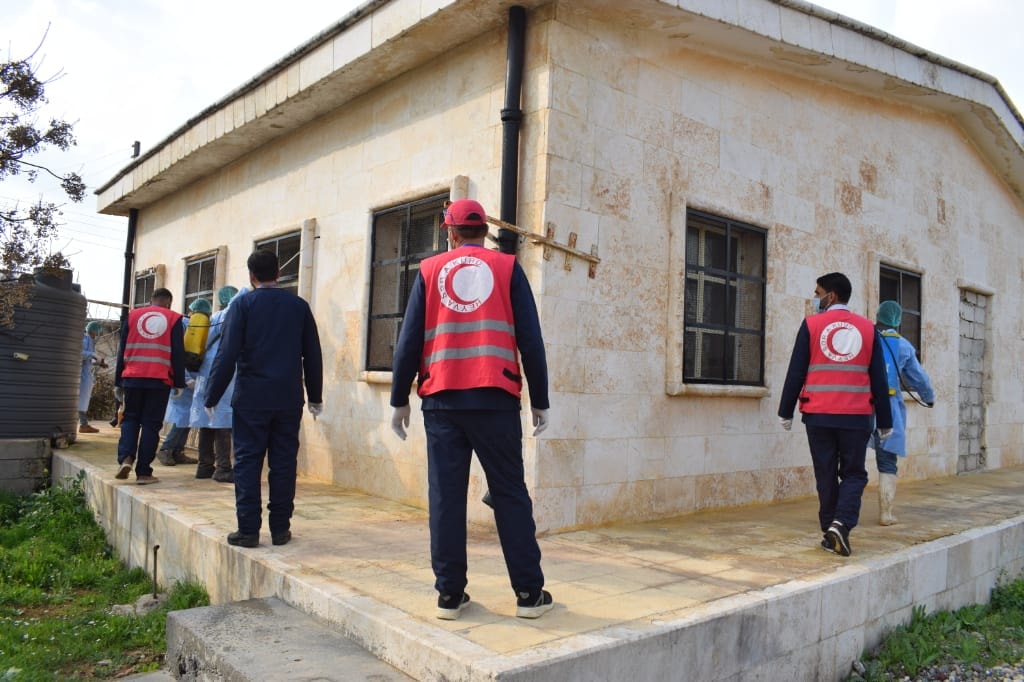
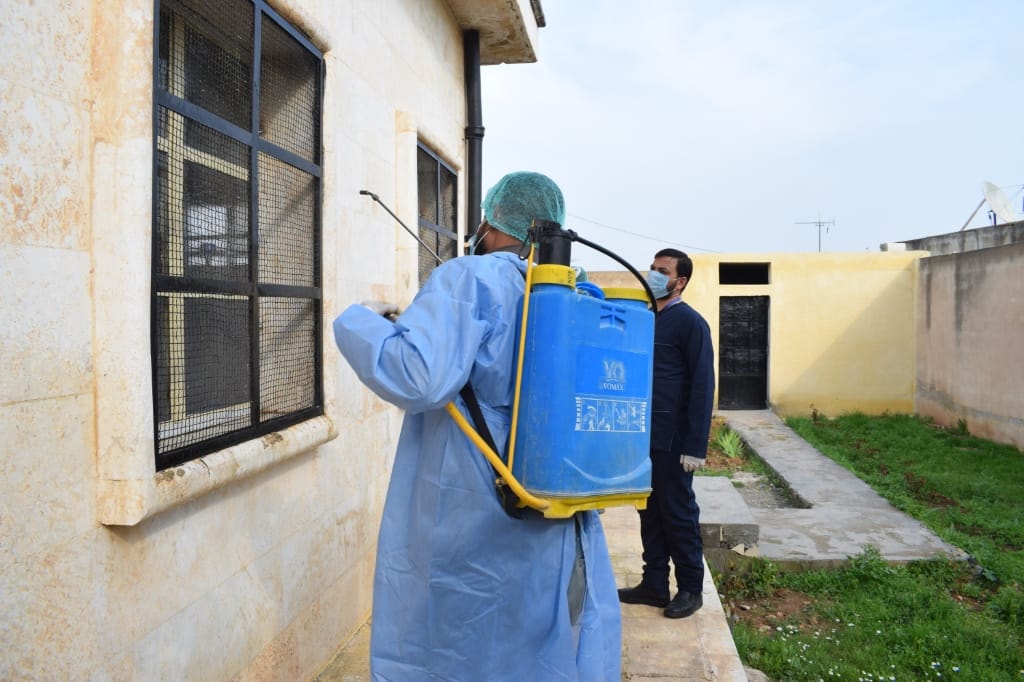
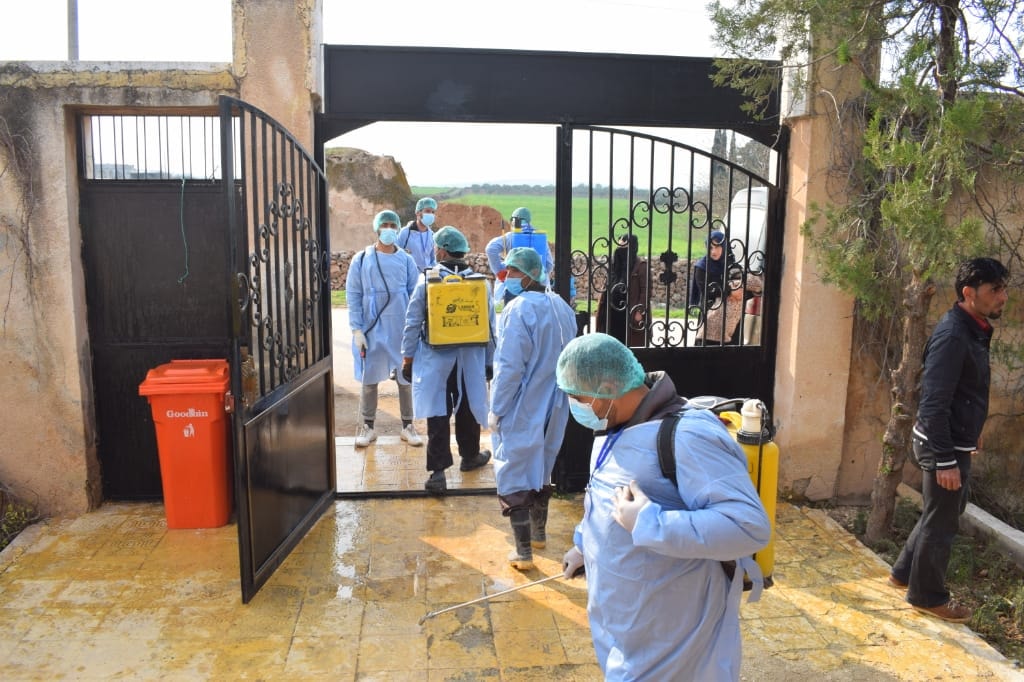
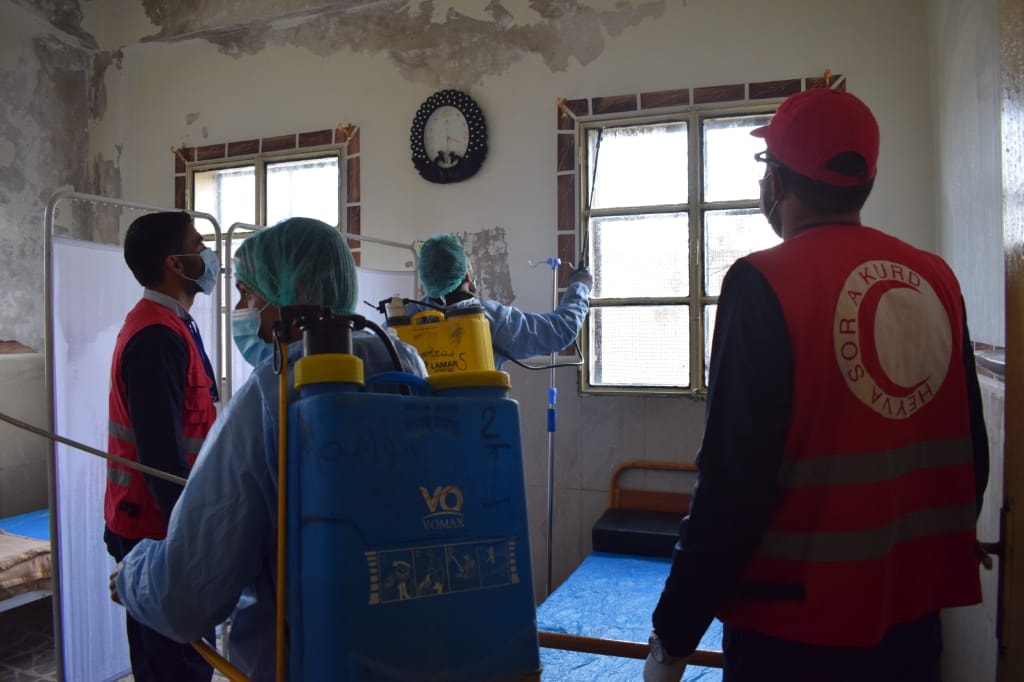
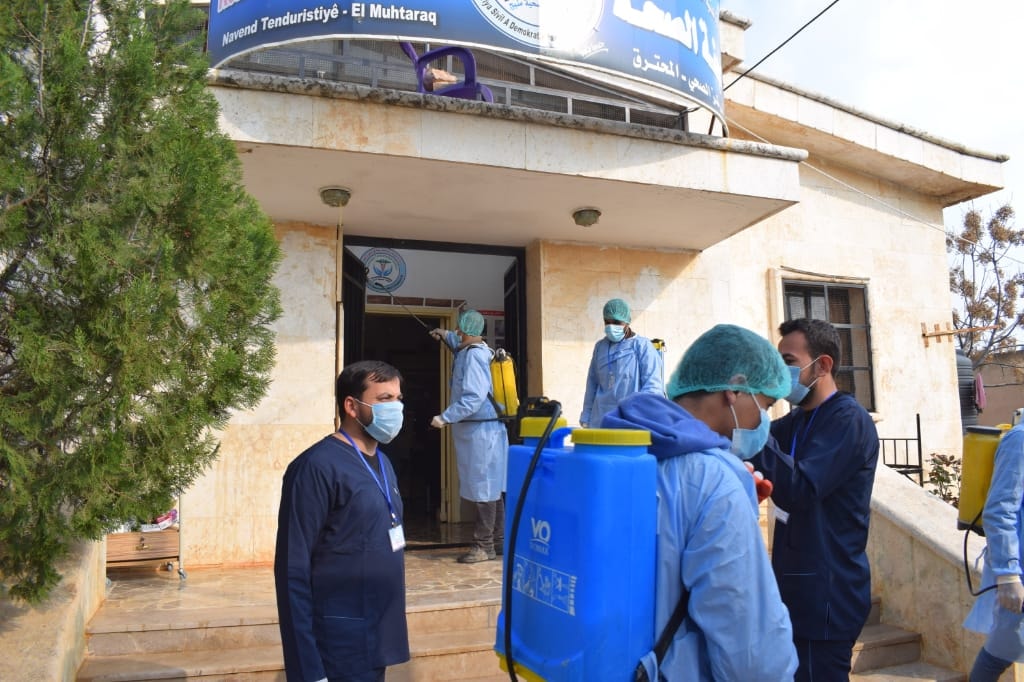
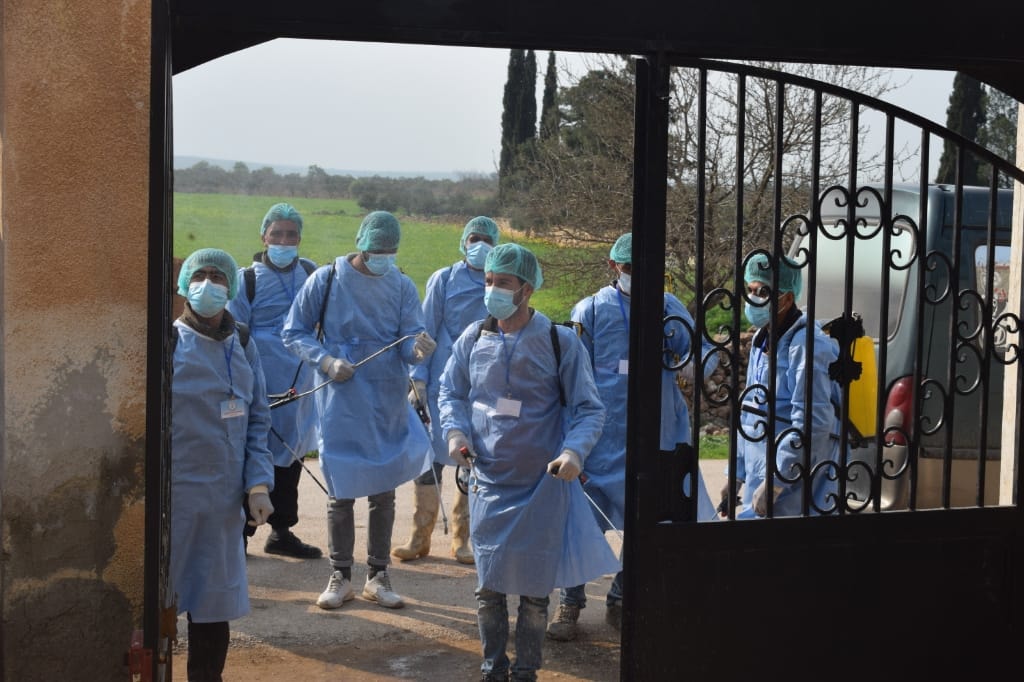
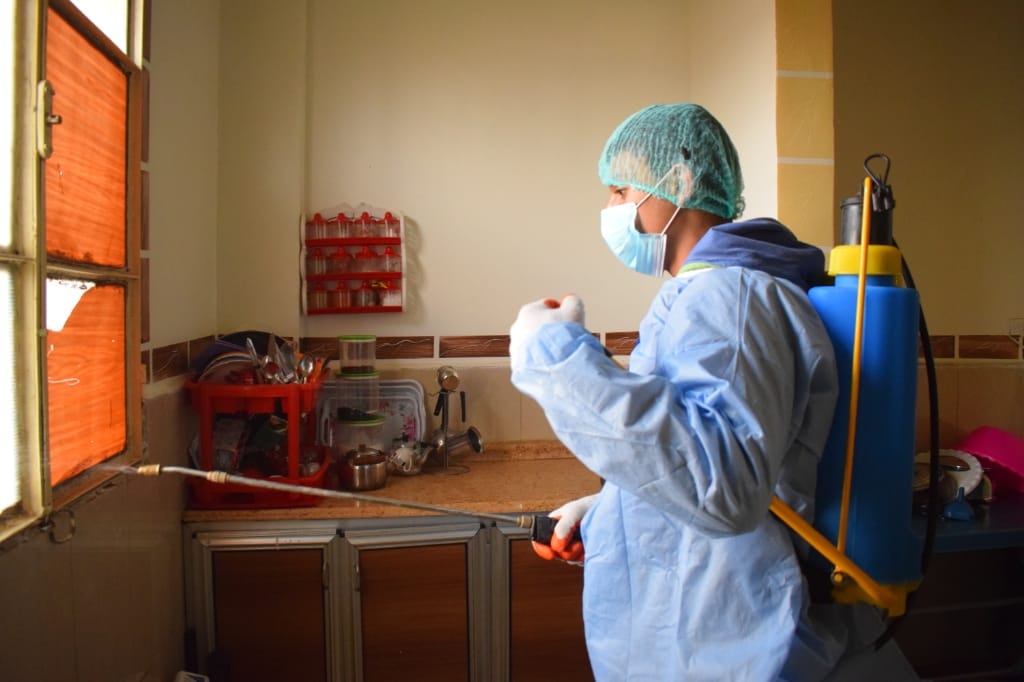
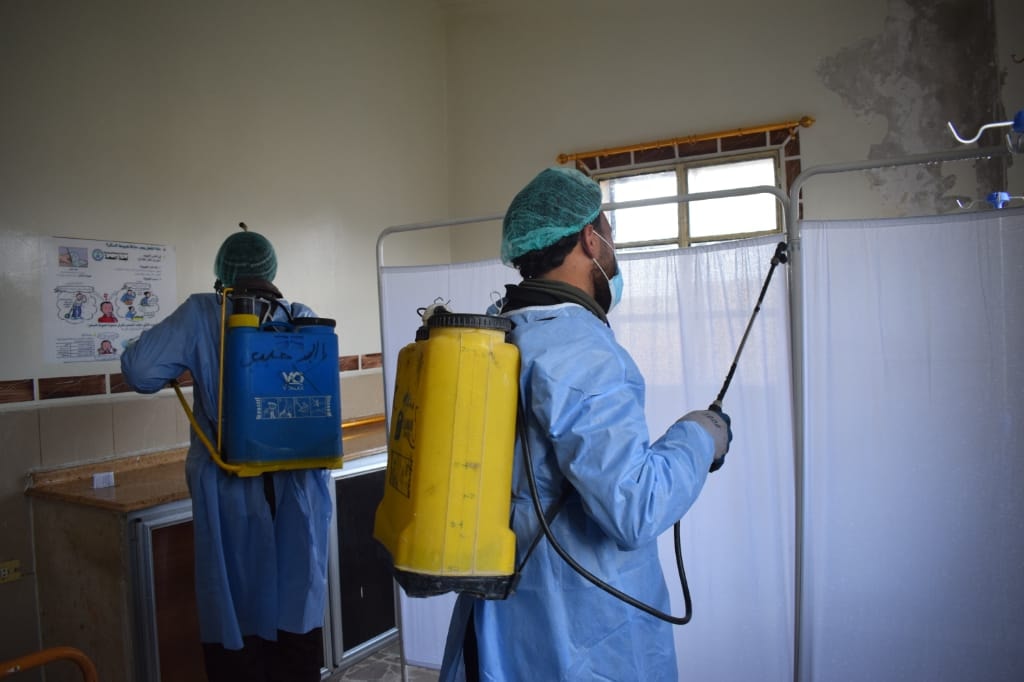
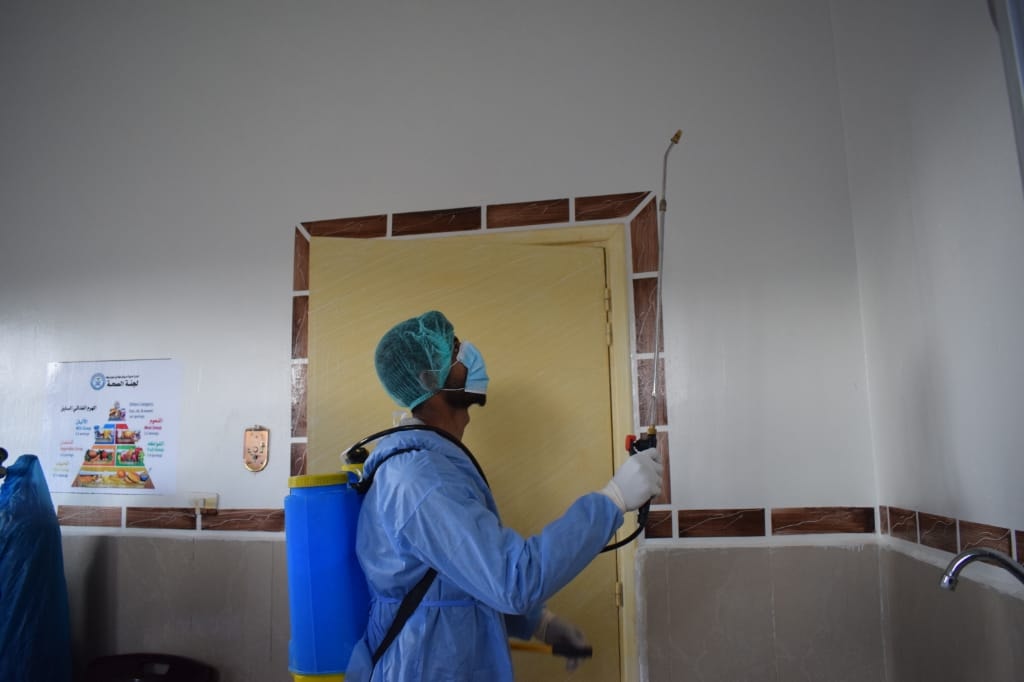
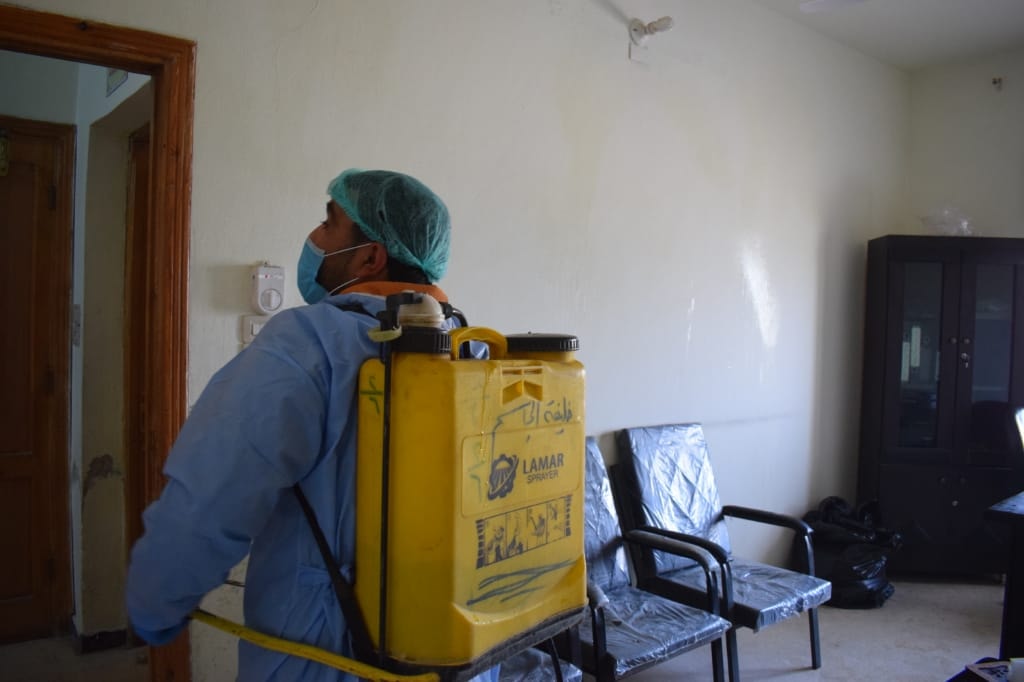
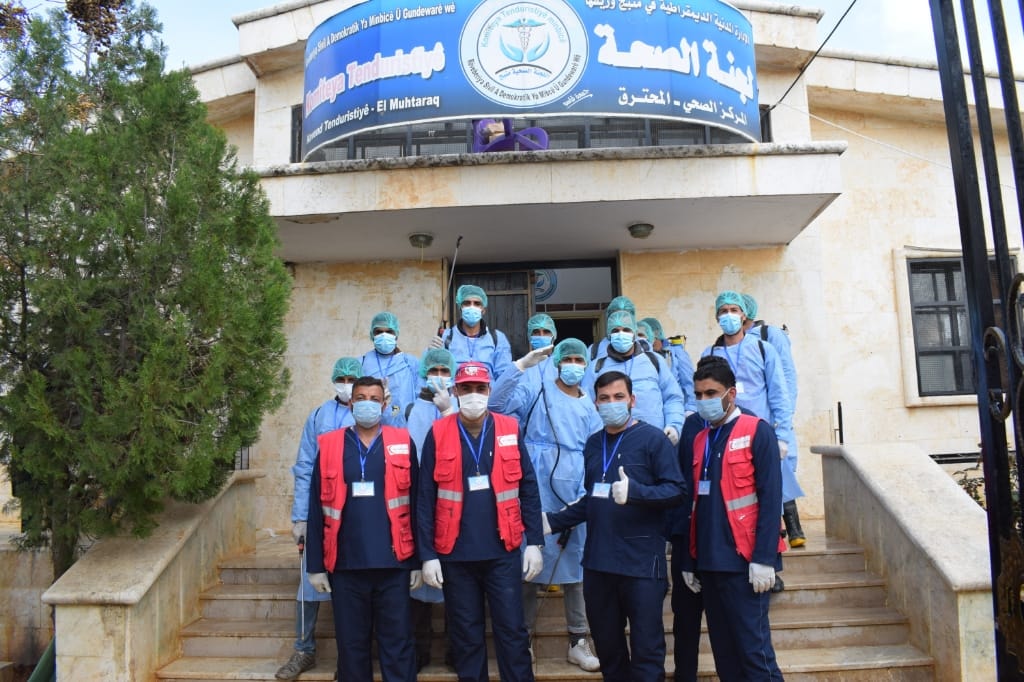
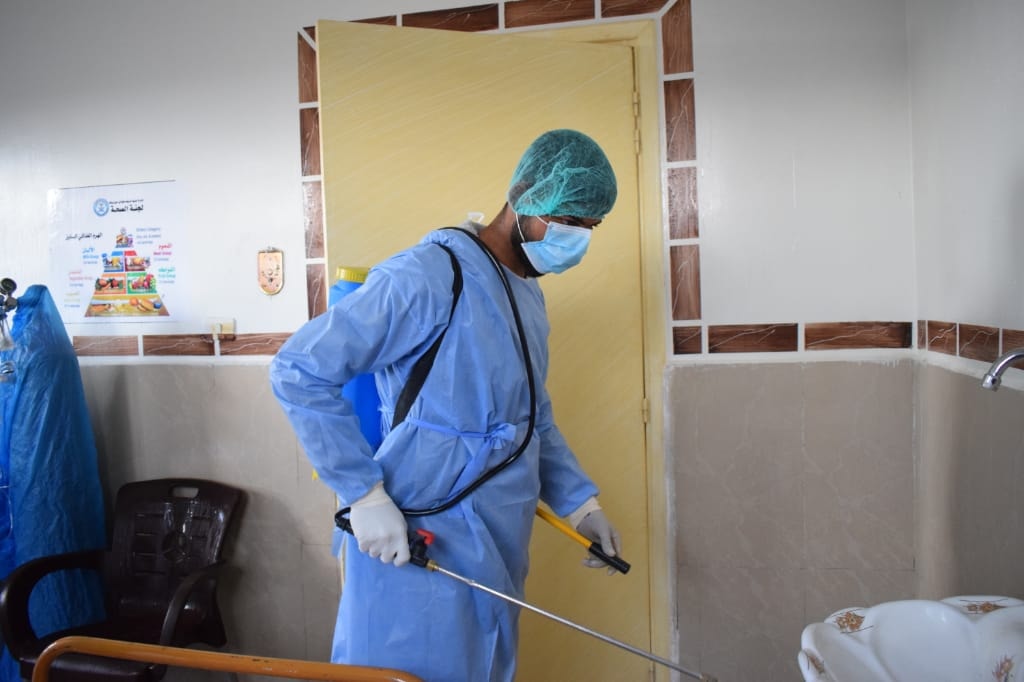
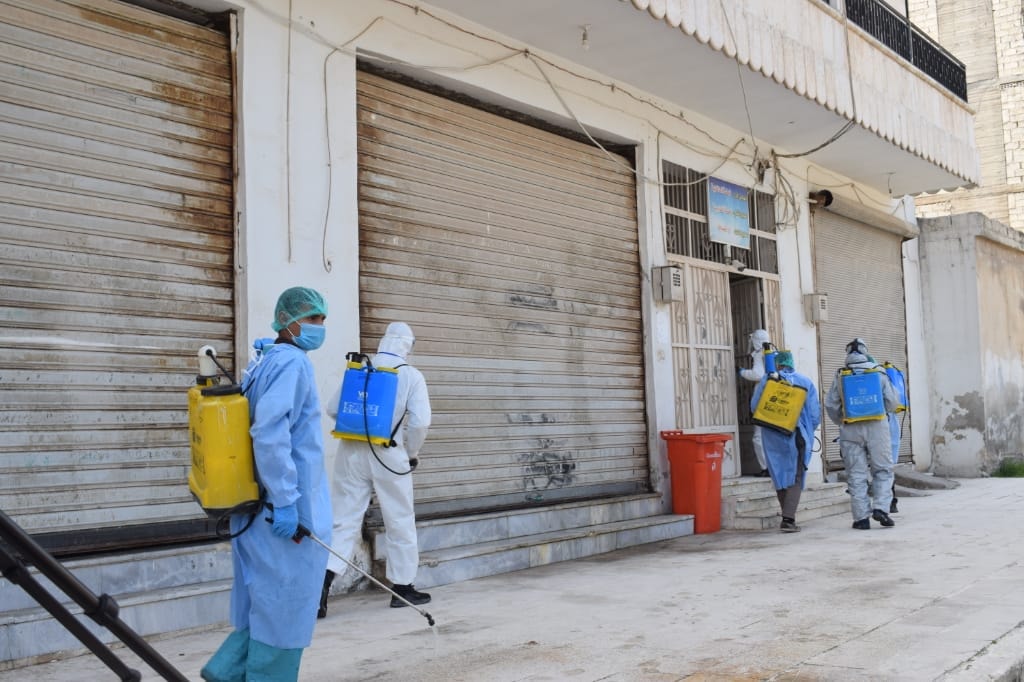
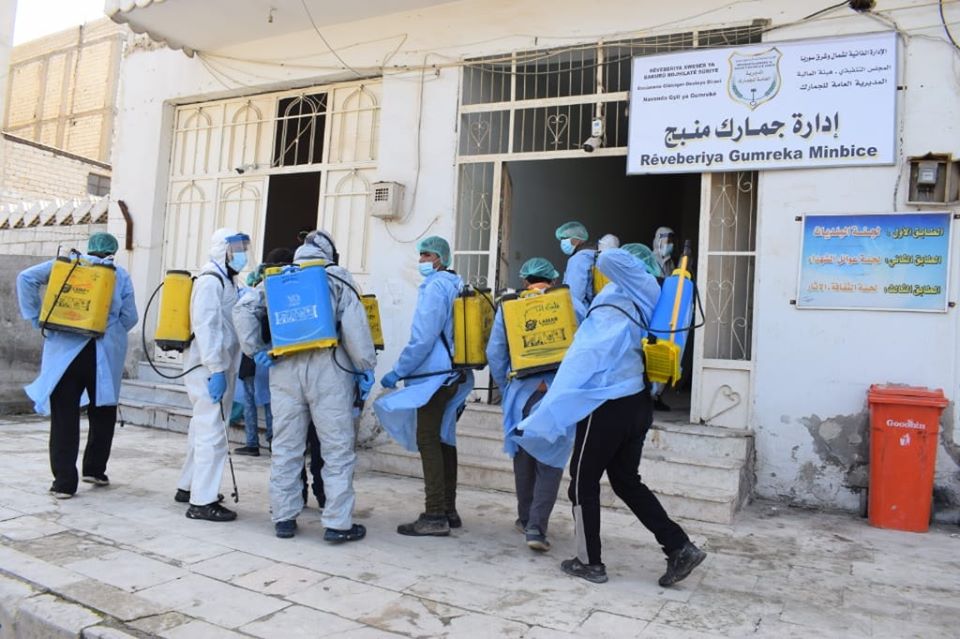
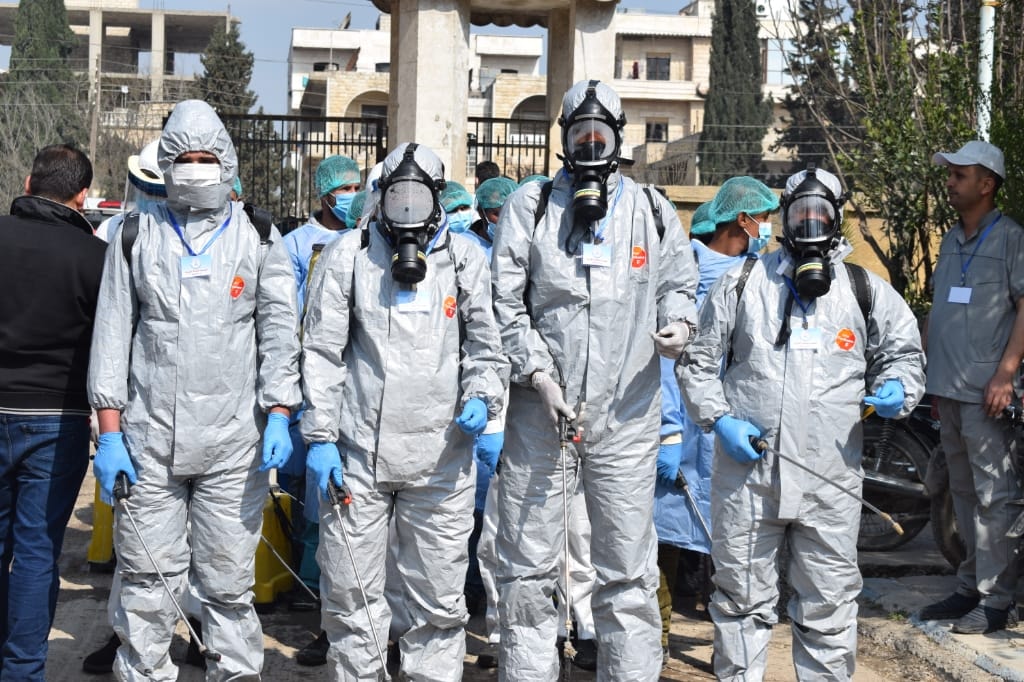
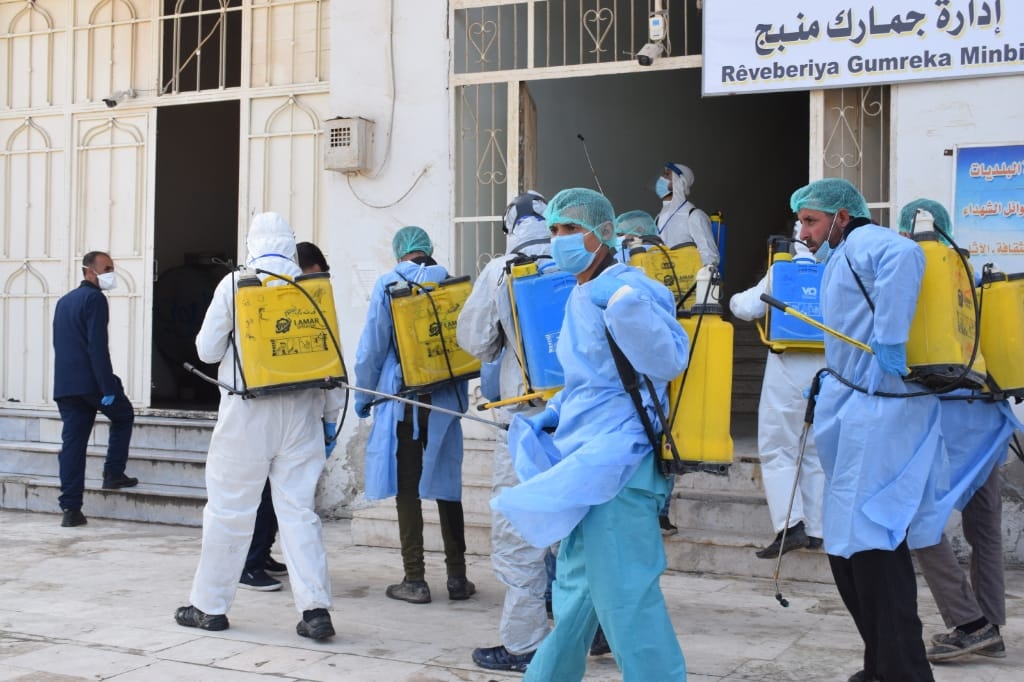
March 15:
Kurdish-led administration in northern Syria ill-prepared for coronavirus outbreak
Preventative measures to be taken for coronavirus now that it is a global pandemic
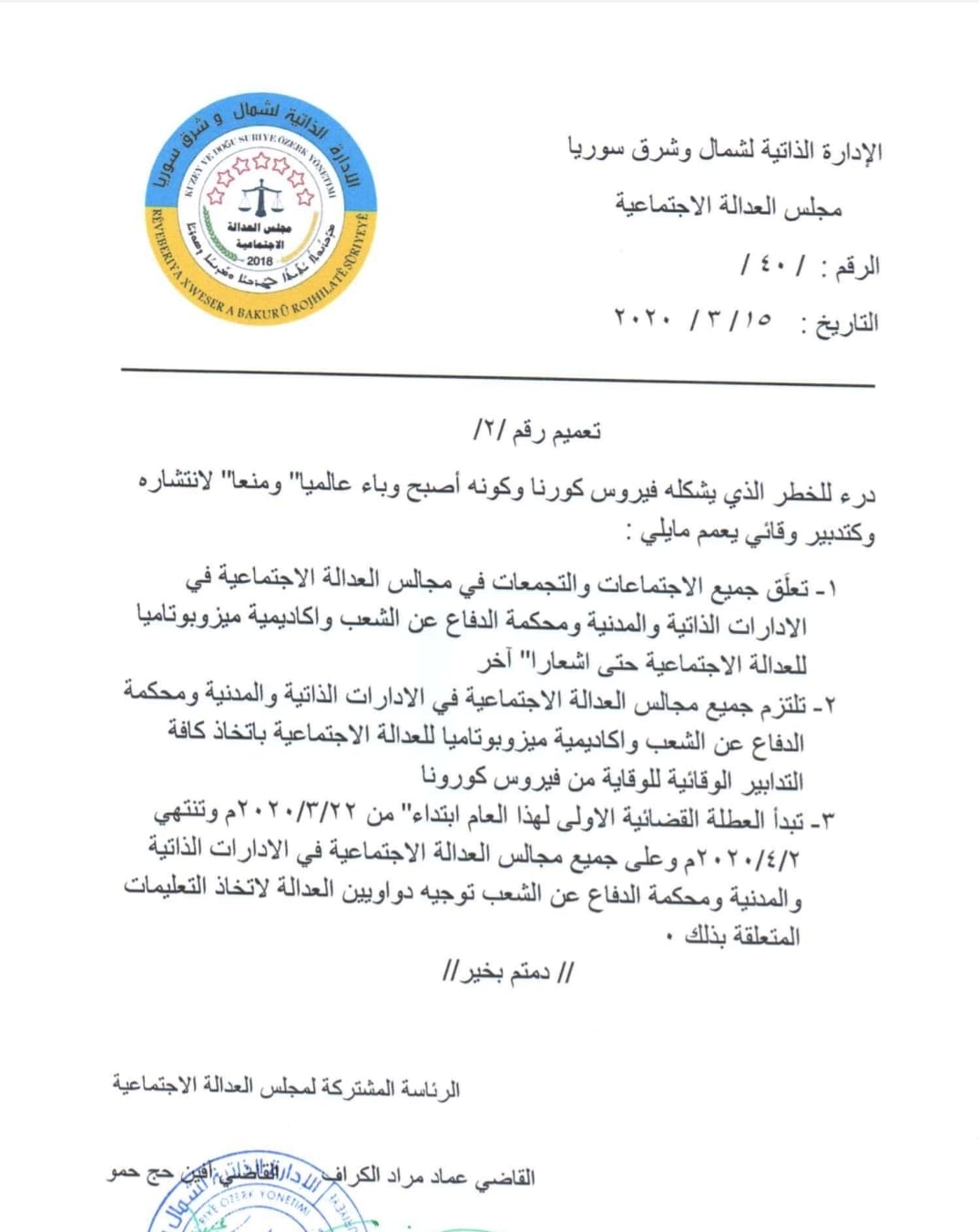
The Autonomous Administration of North and East Syria has announced the formation of mobile teams working to spread information about and contain the spread of the virus
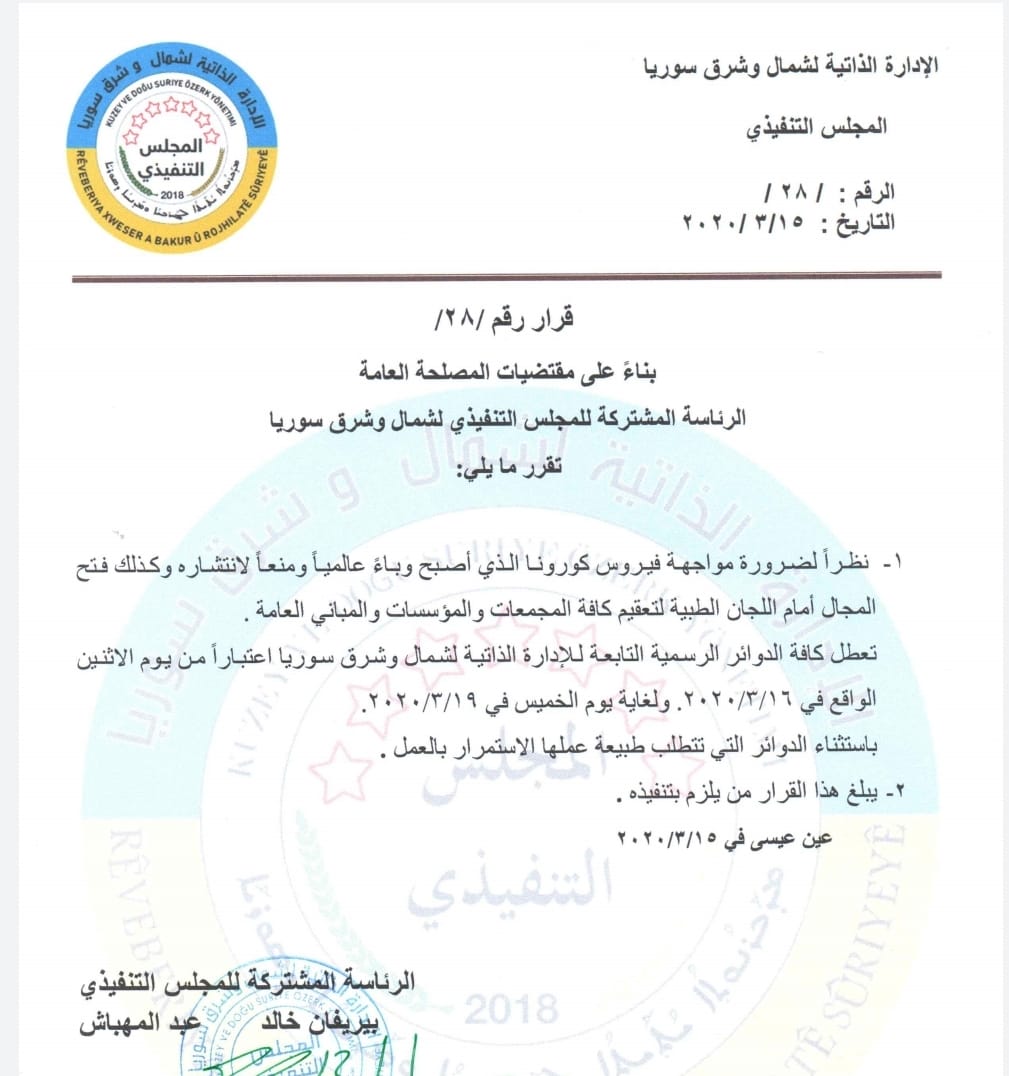
March 14:
The Autonomous Administration of North and East Syria announces the closure of schools, border crossings, and cancellation of public events due to Coronavirus
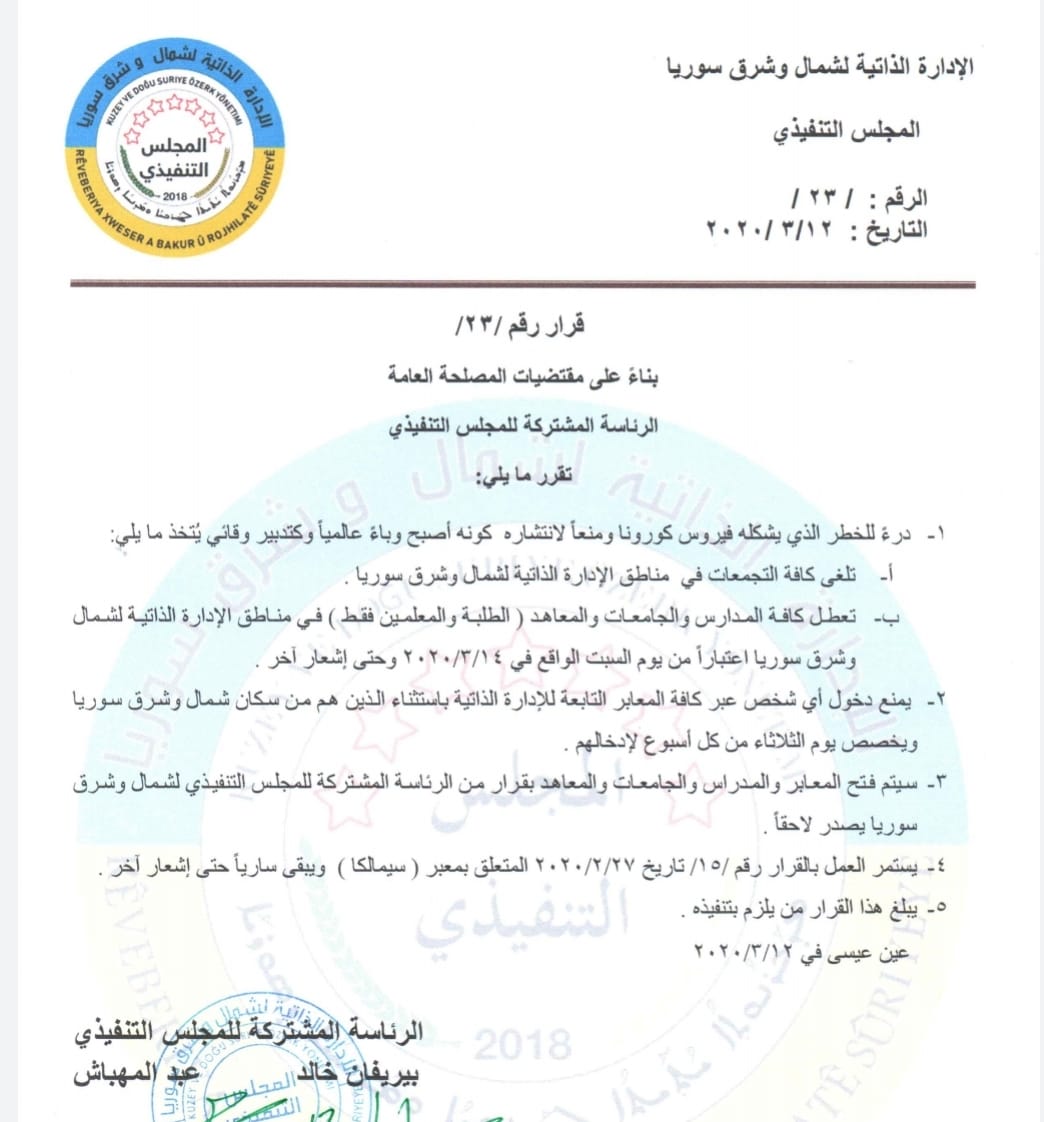
March 11:
Statement by Dr. Jowan Mustafa (Joint Chairman of the health authority in the Autonomous Administration of northern and eastern Syria) on measures taken at the border crossing points to prevent the spread of the coronavirus in northern and eastern Syria
The Executive Council of northern and eastern Syria holds its periodic meeting: strengthen preventive measures with the arrival of the coronavirus in northern and eastern Syria
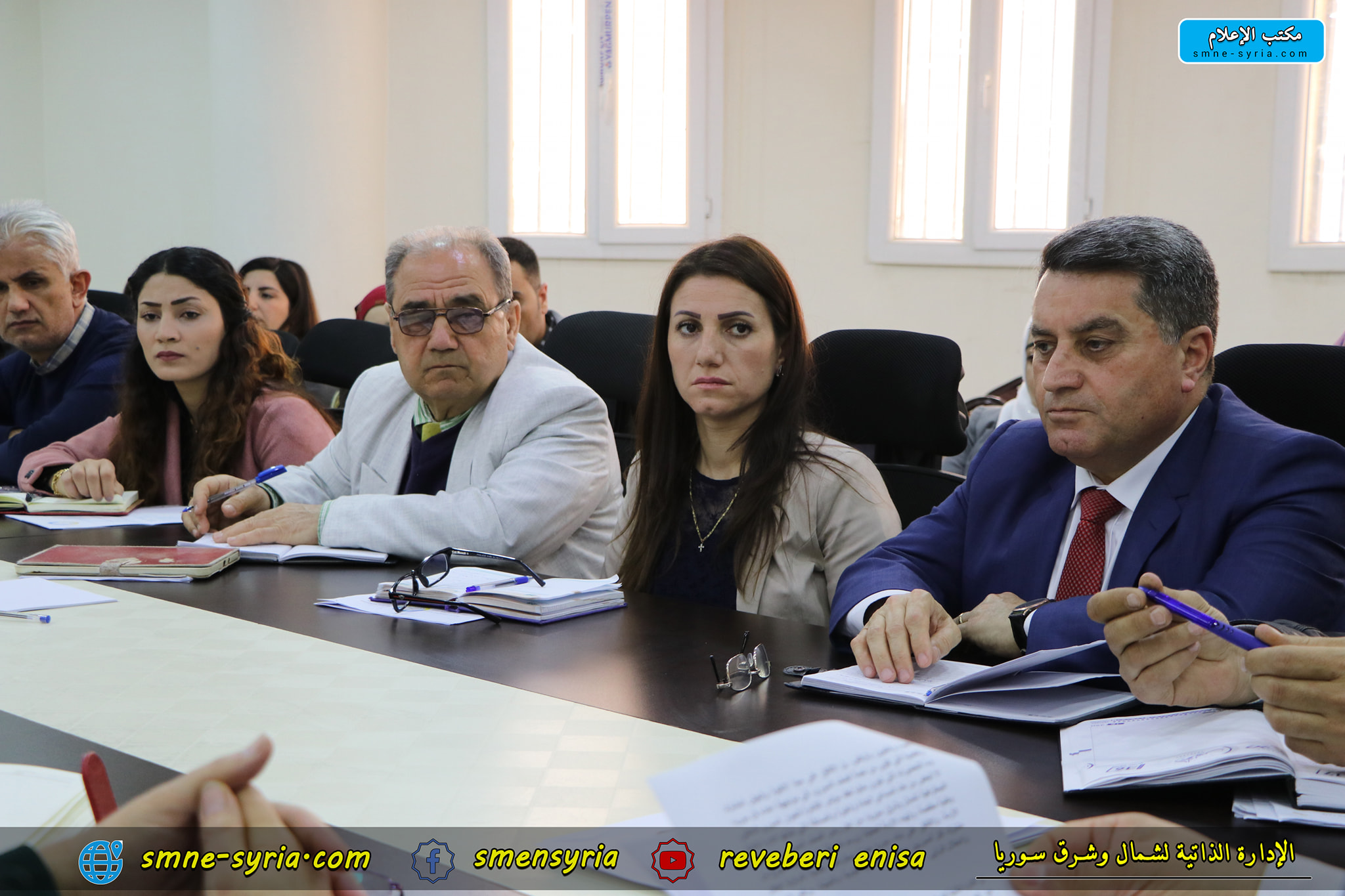
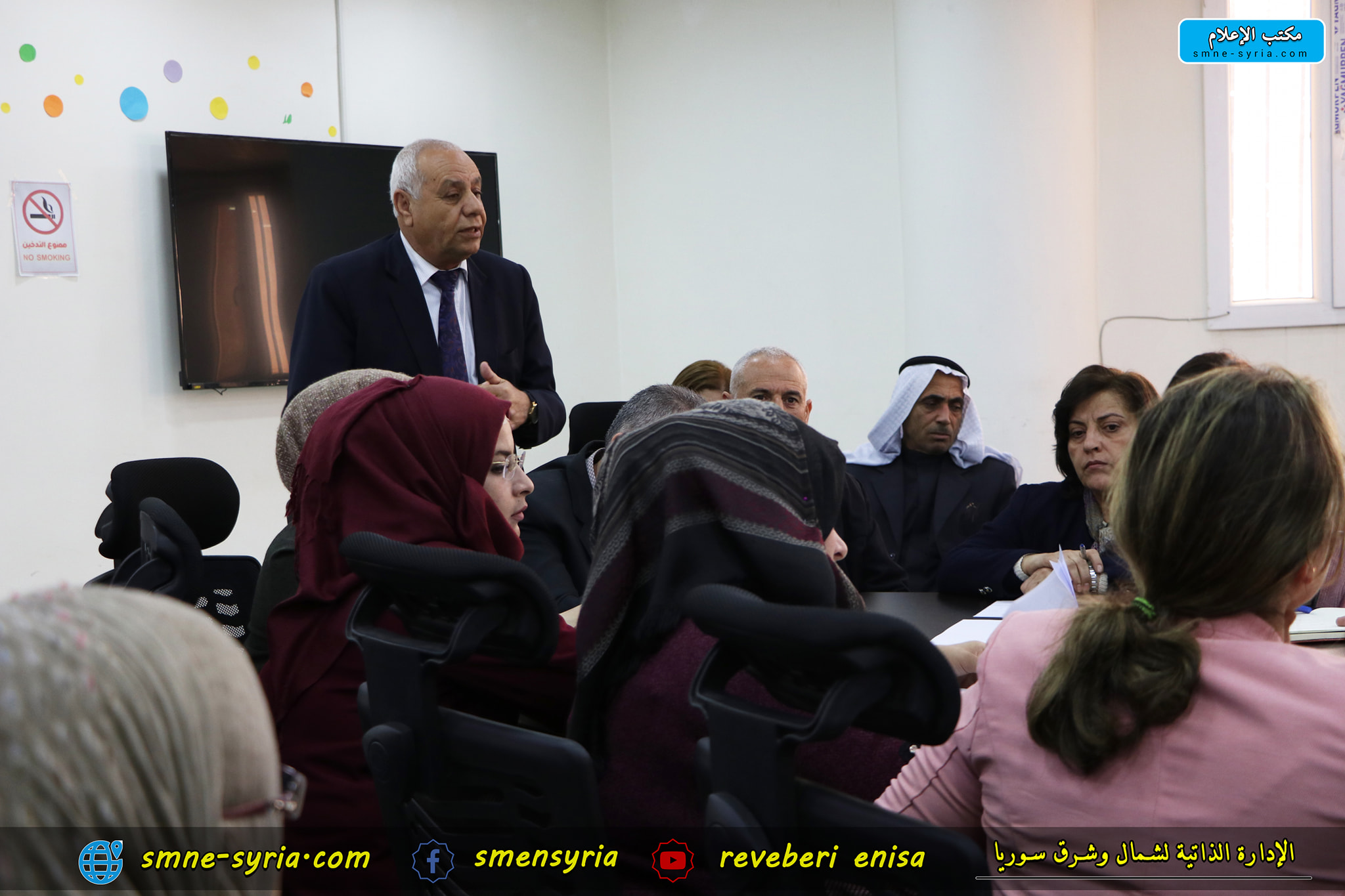
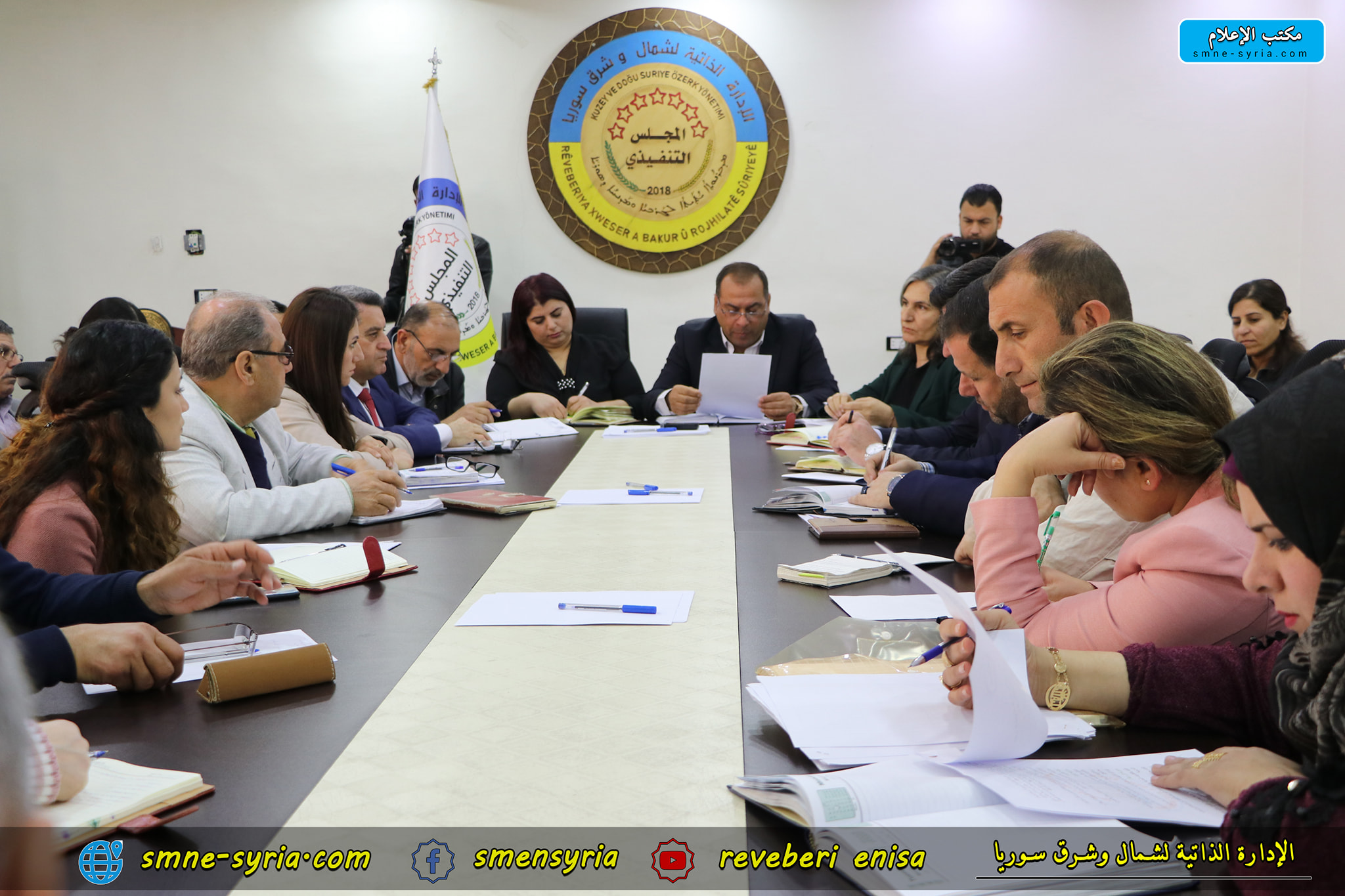
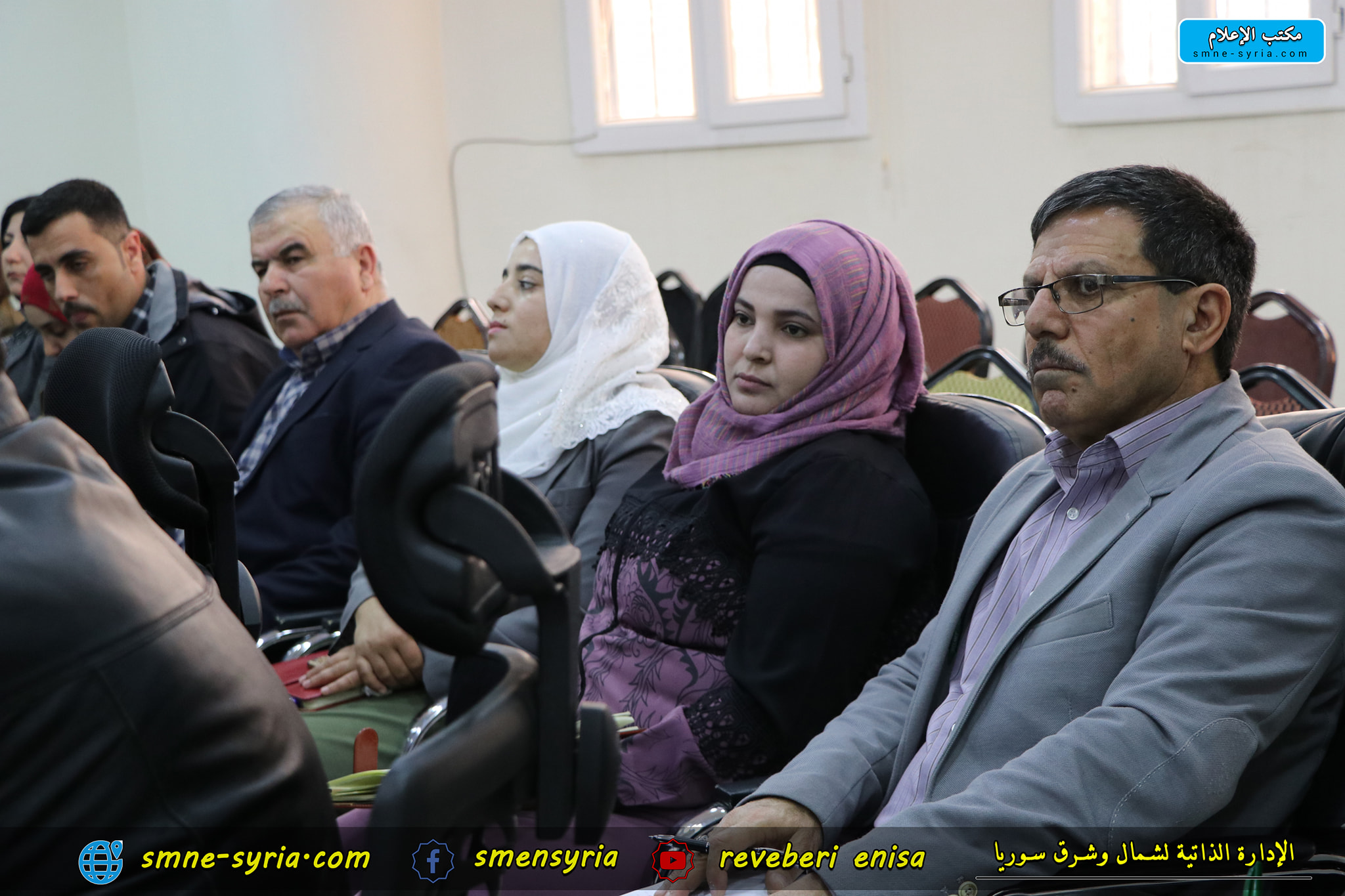
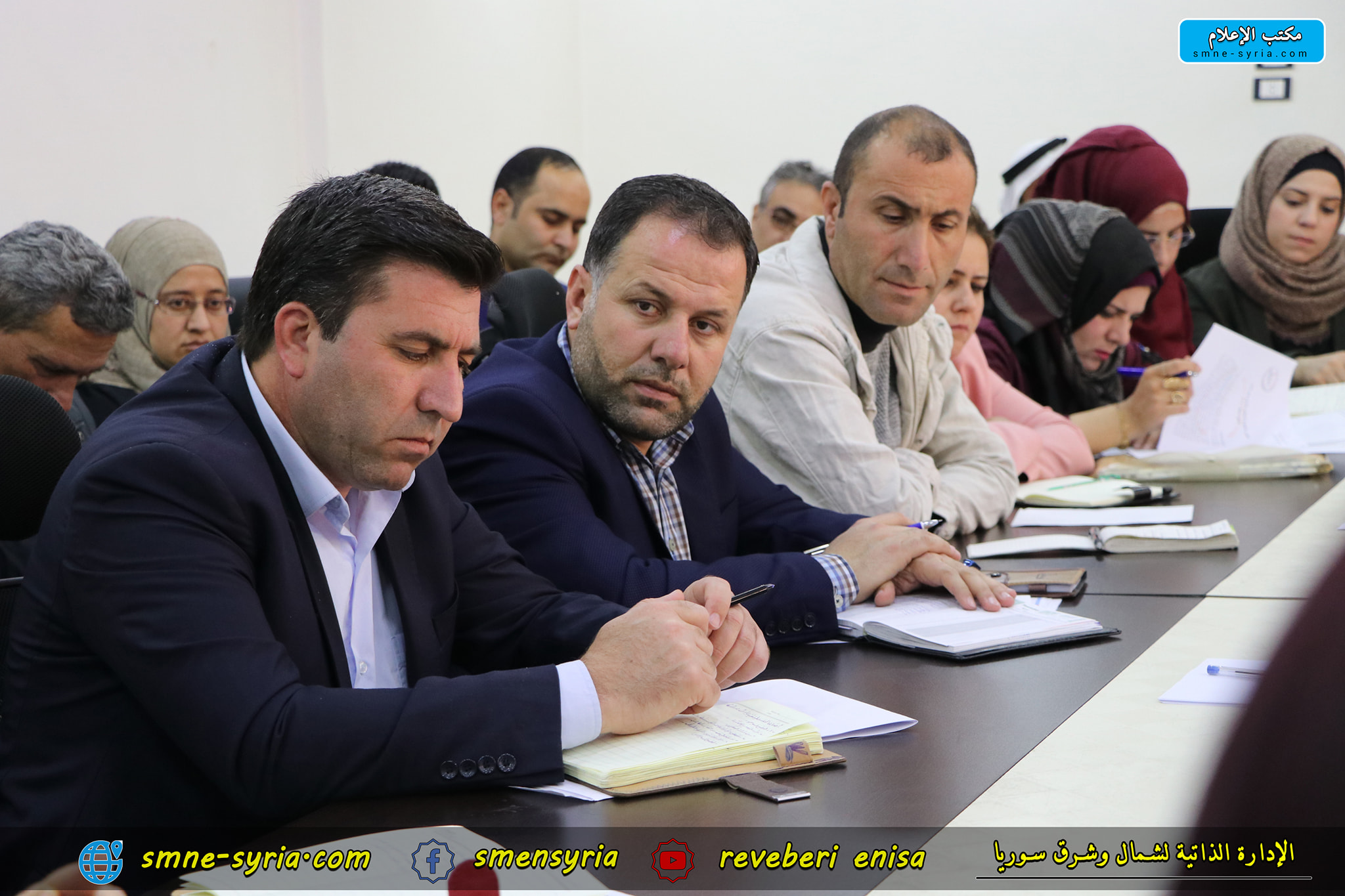
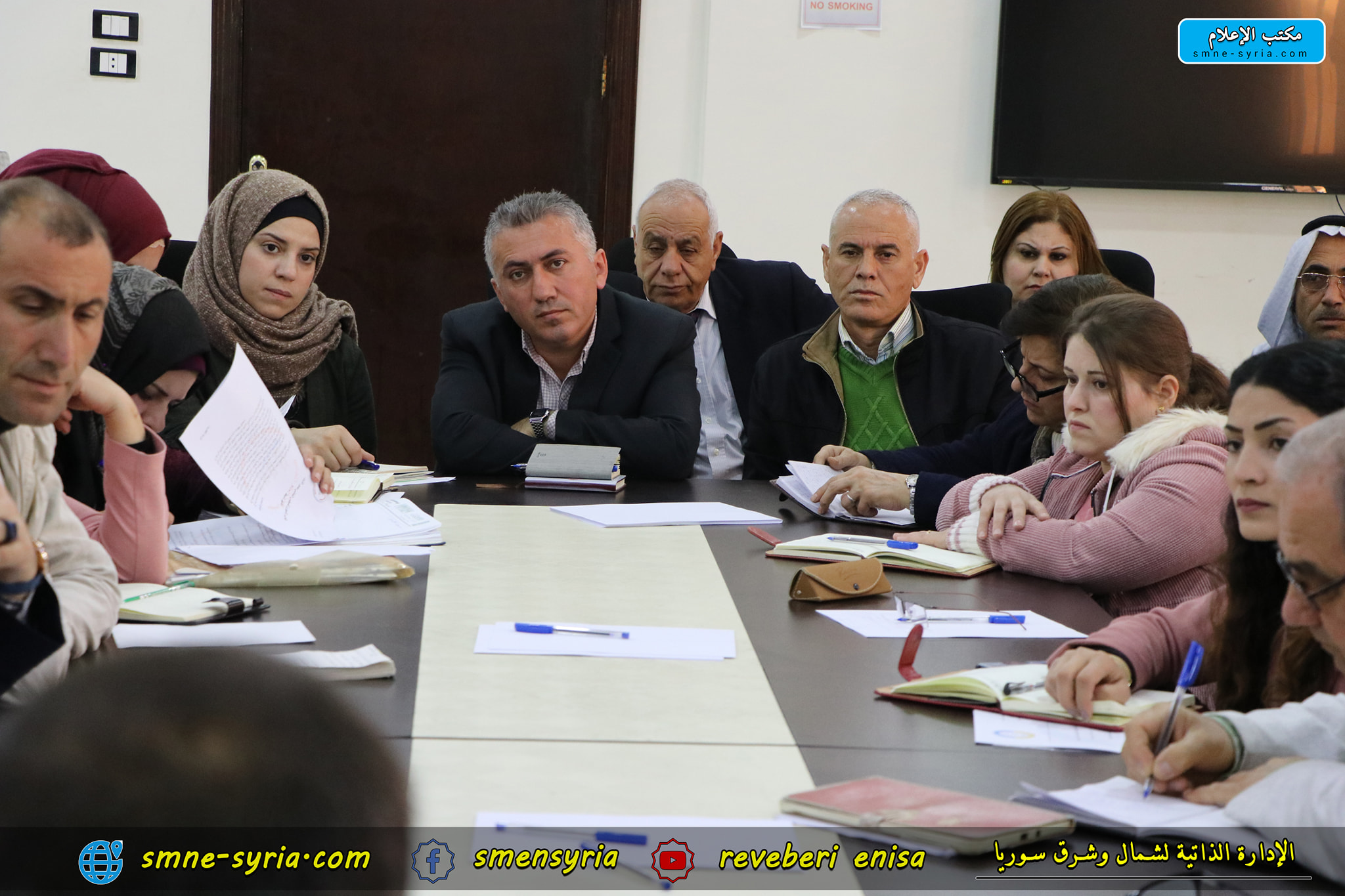
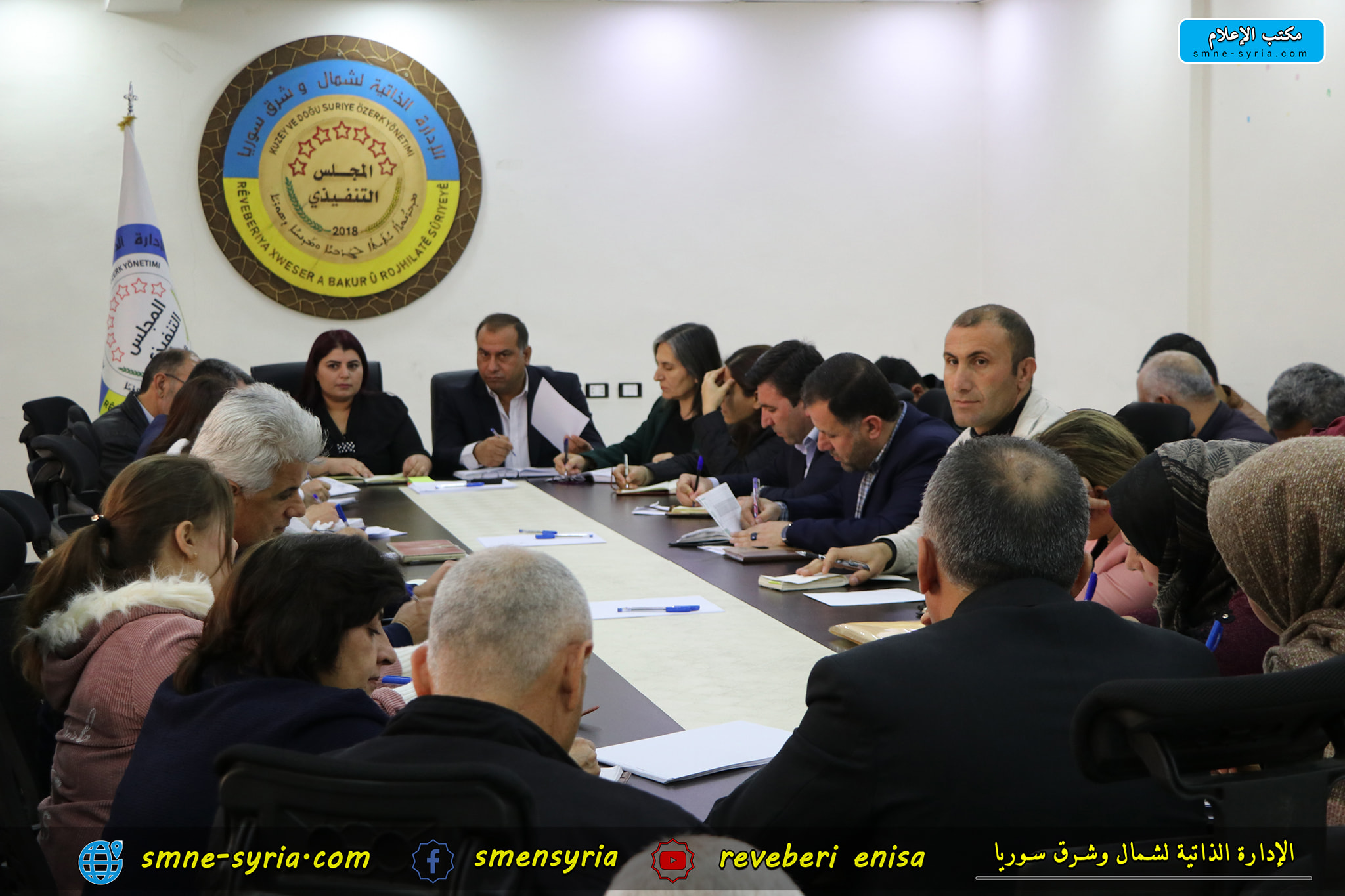
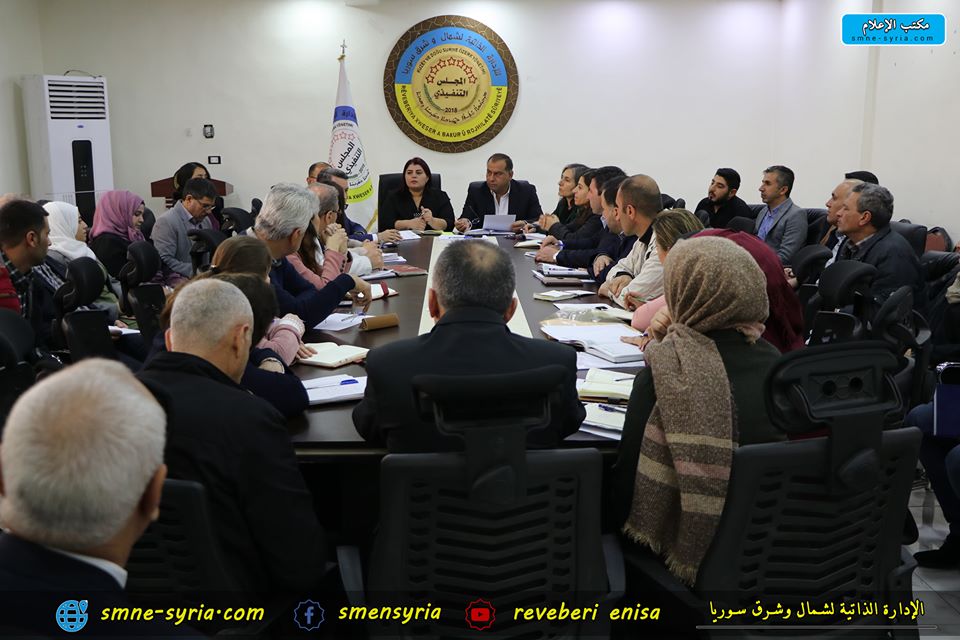
March 2:
The Health Authority finishes preparing medical quarantine centers in preparation for facing the Coronavirus
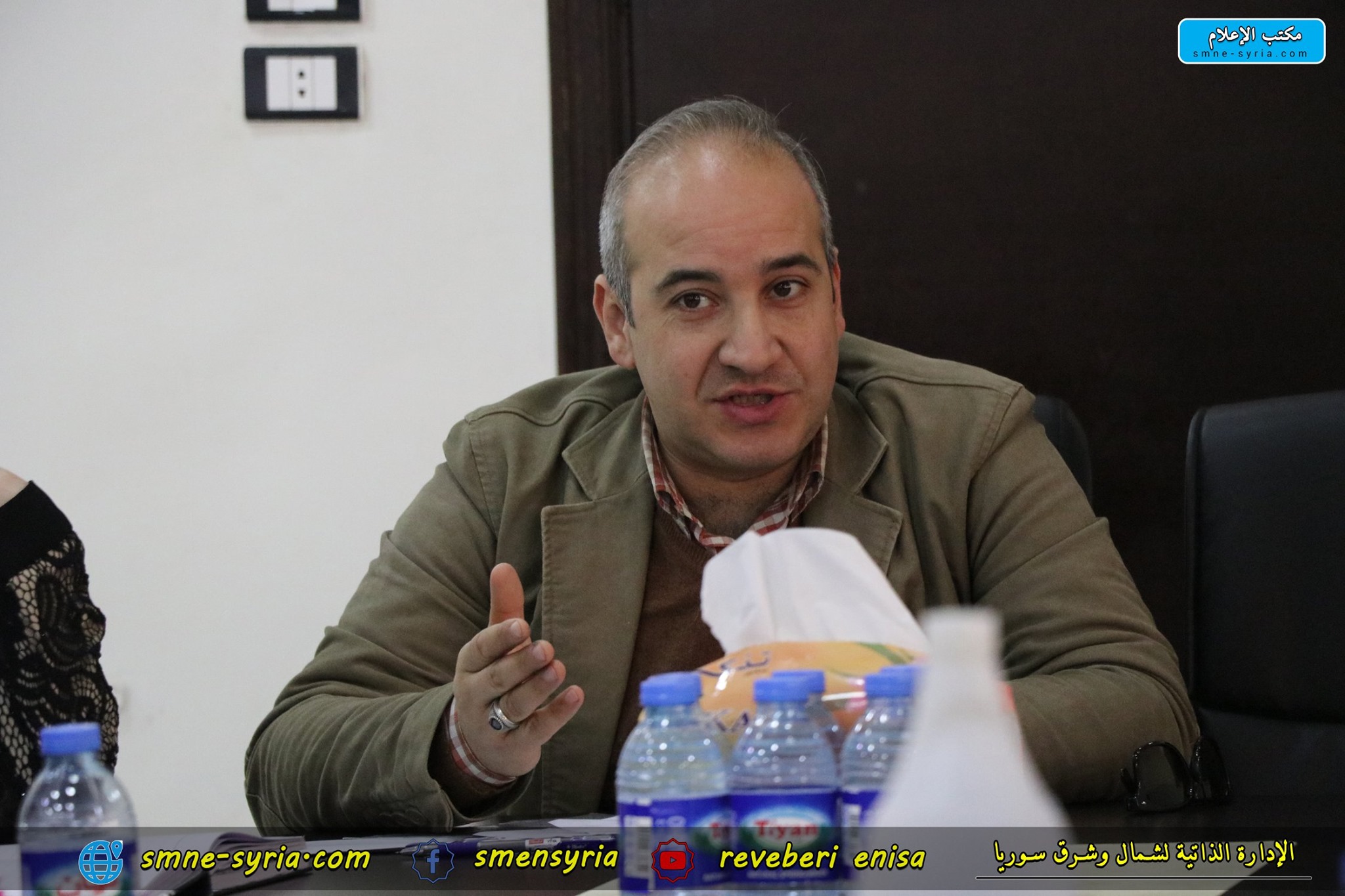
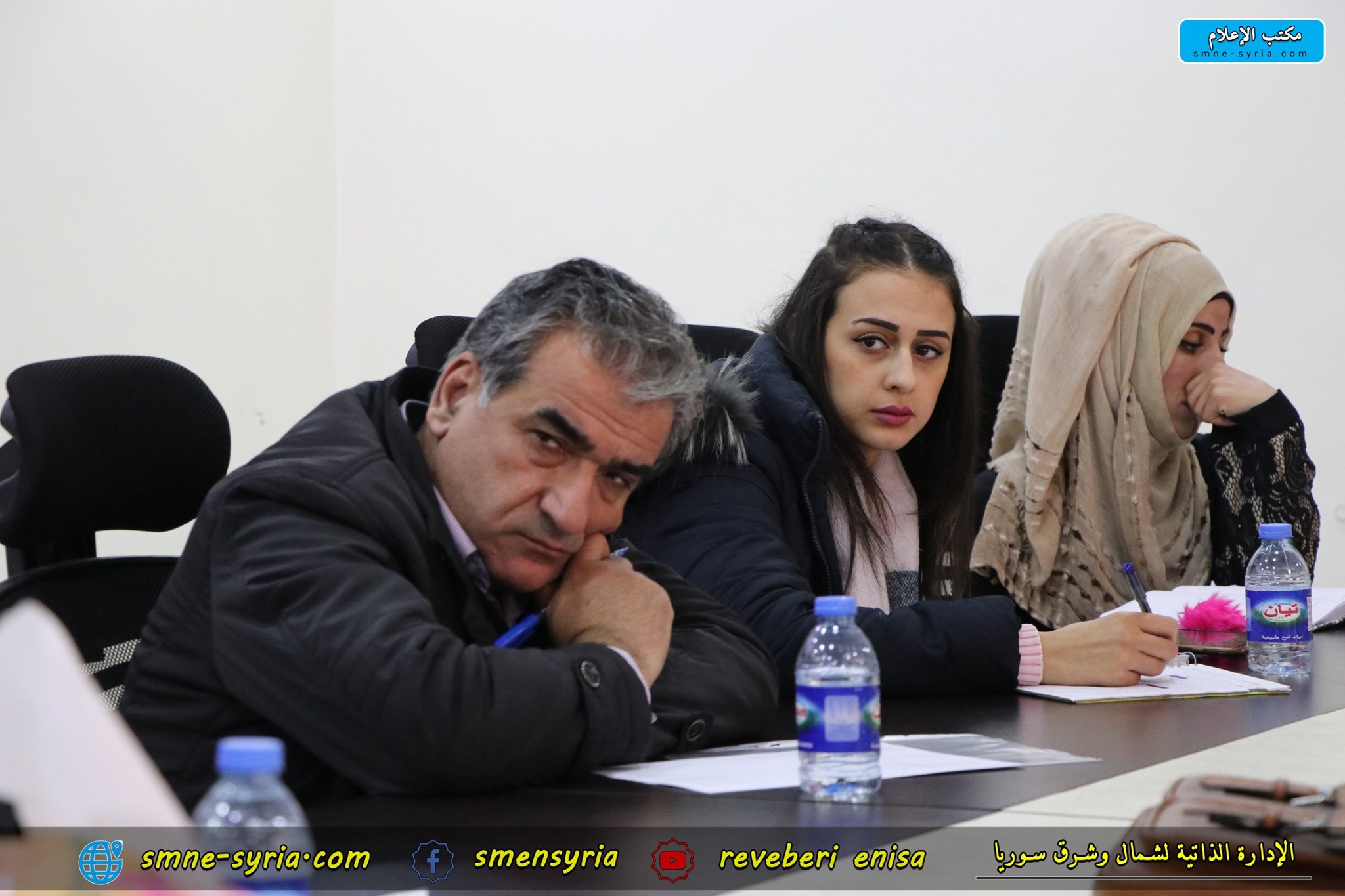
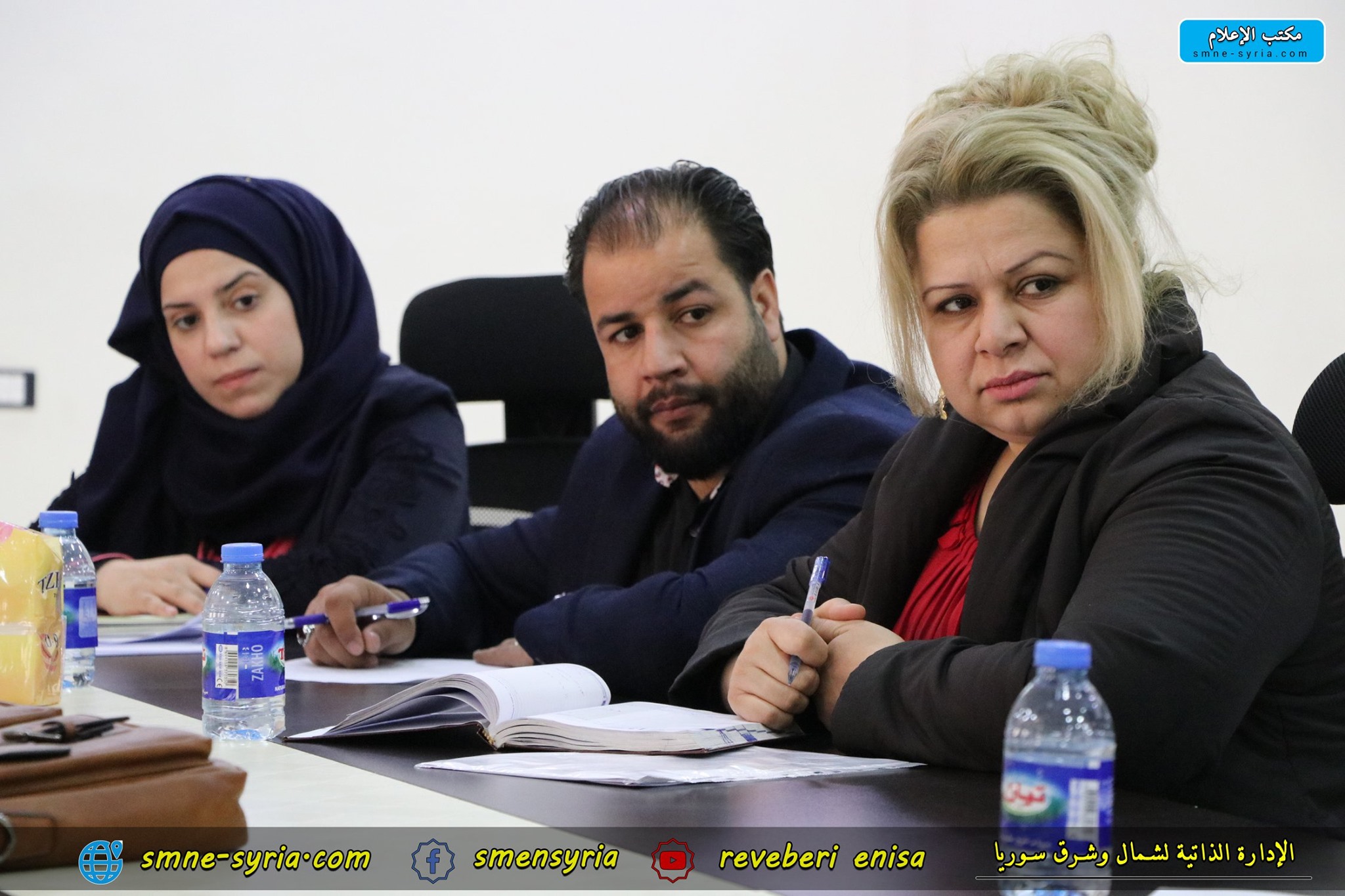
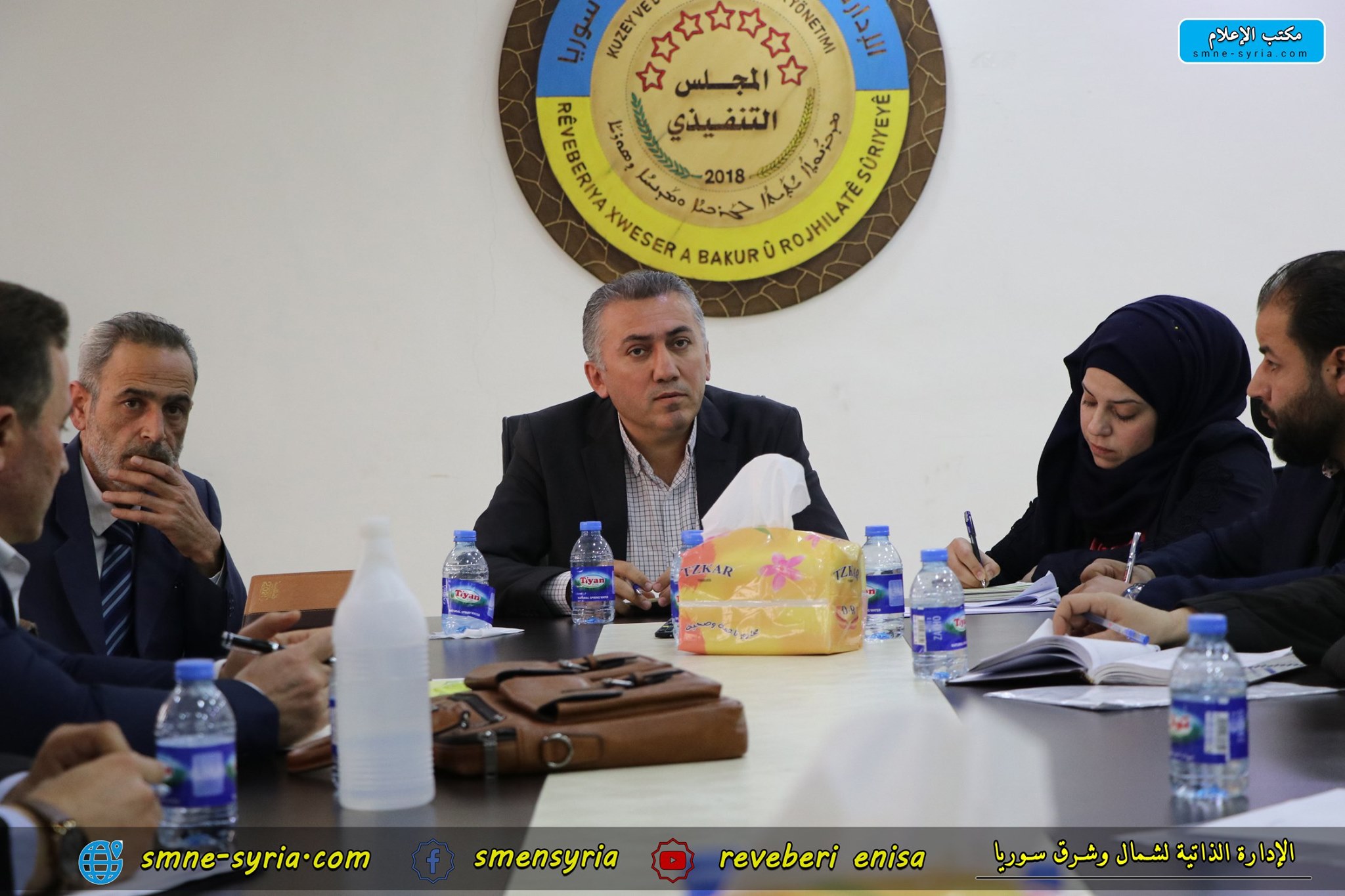
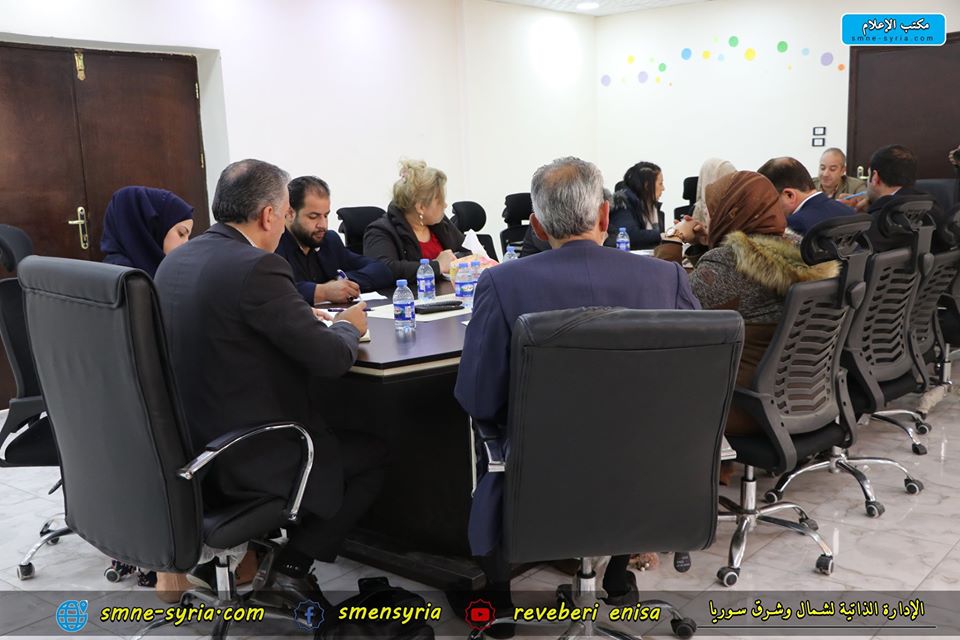
February 27:
Closing the Semalka border crossing until further notice

February 25:
The Autonomous Administration takes preventive measures against the Coronavirus
